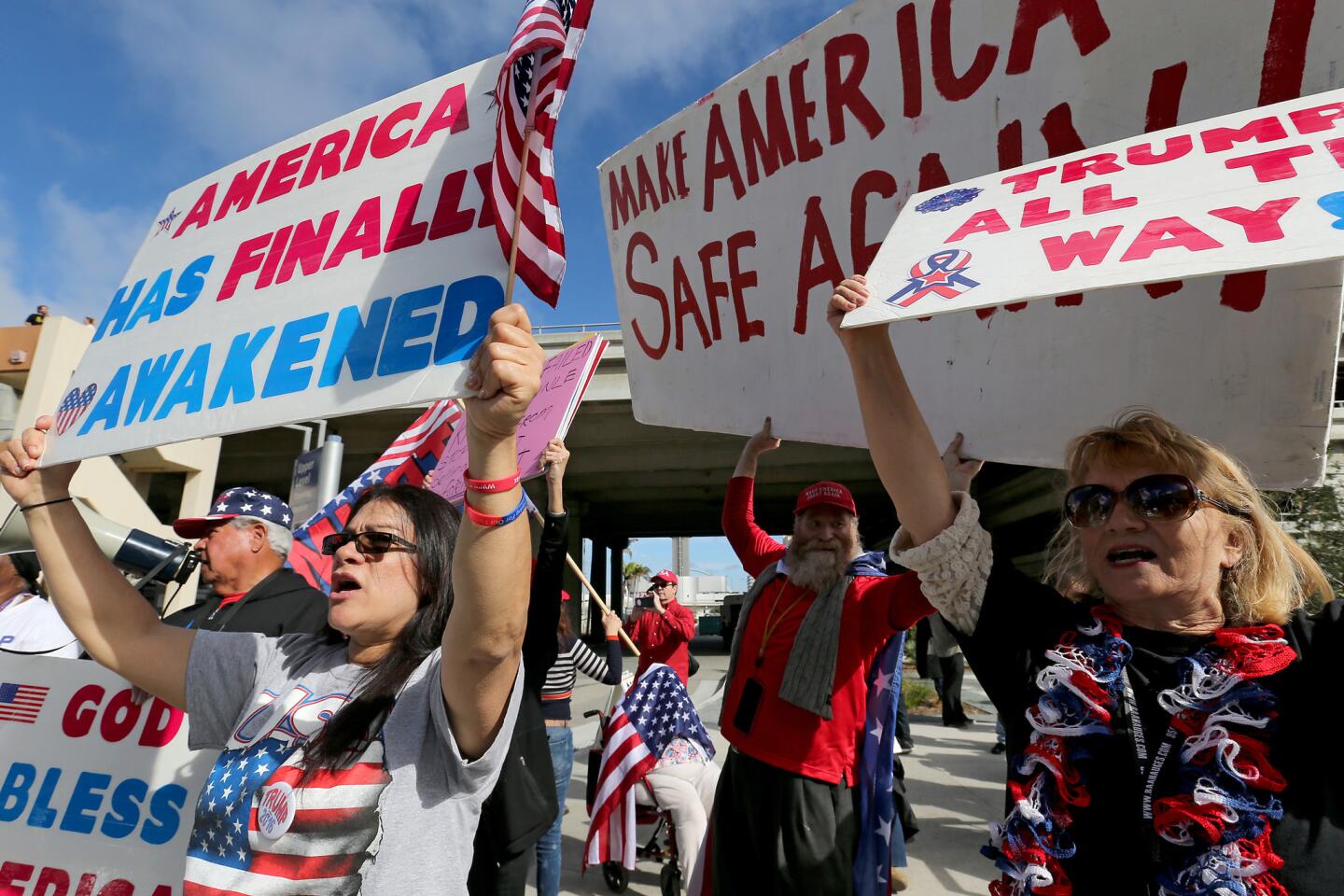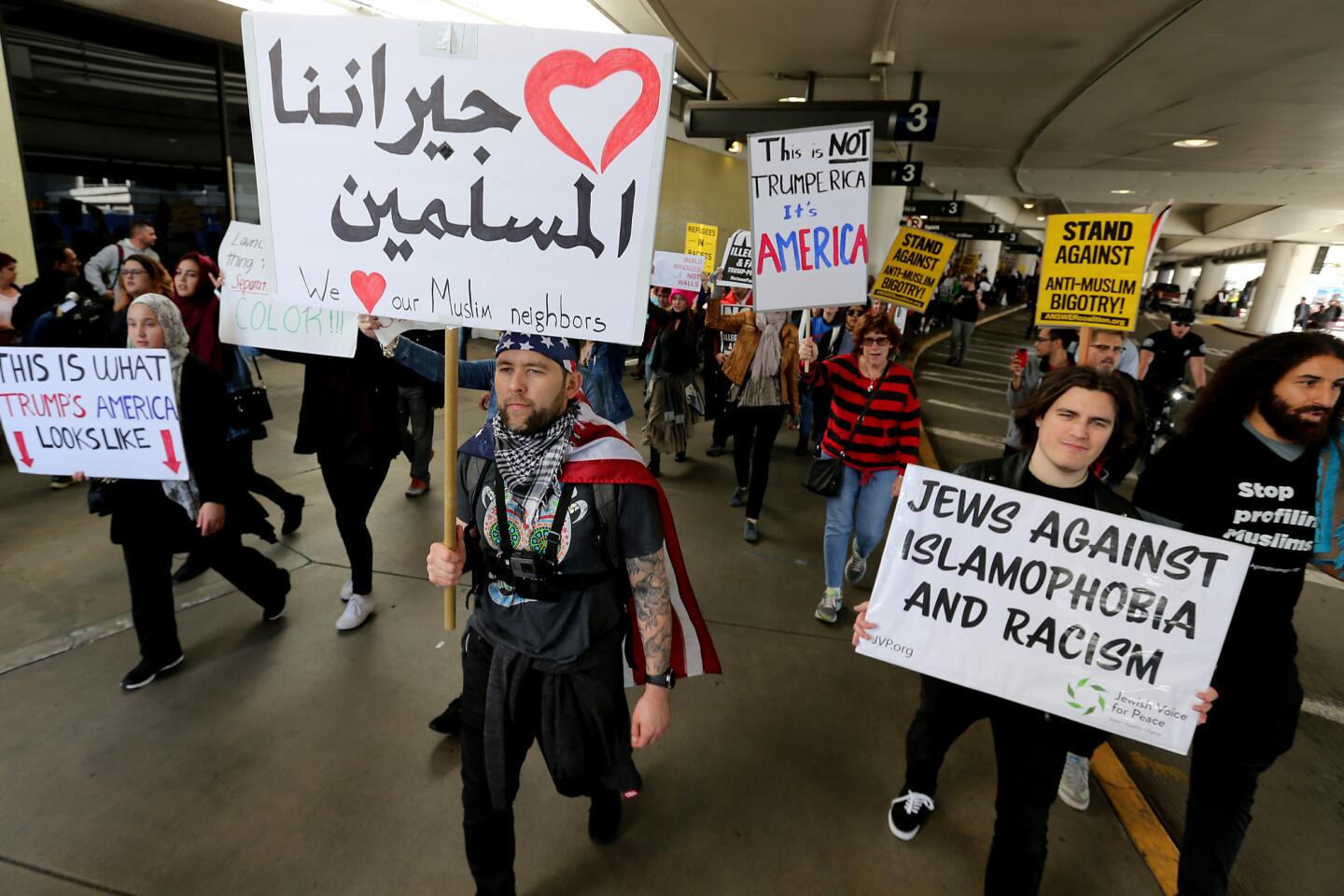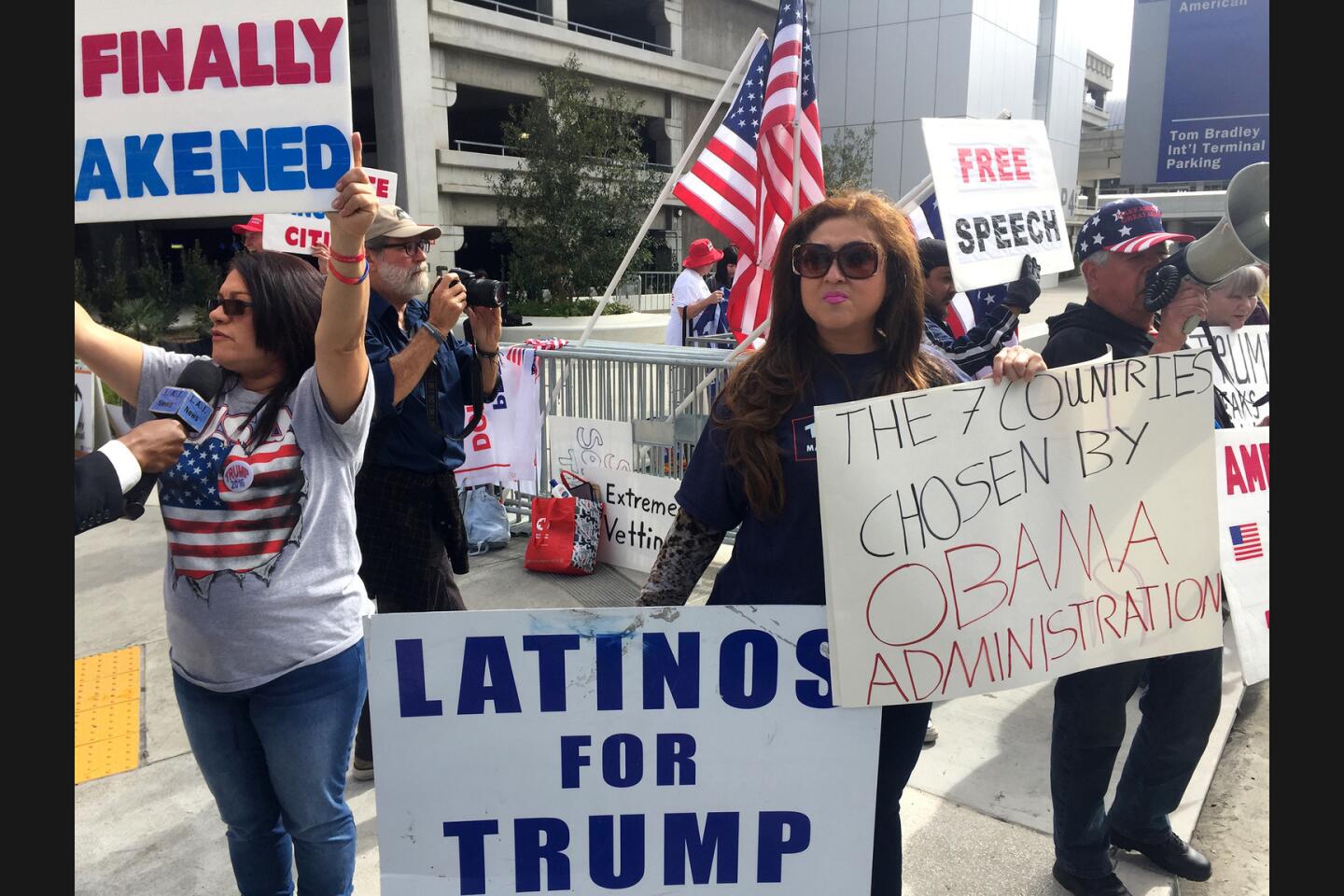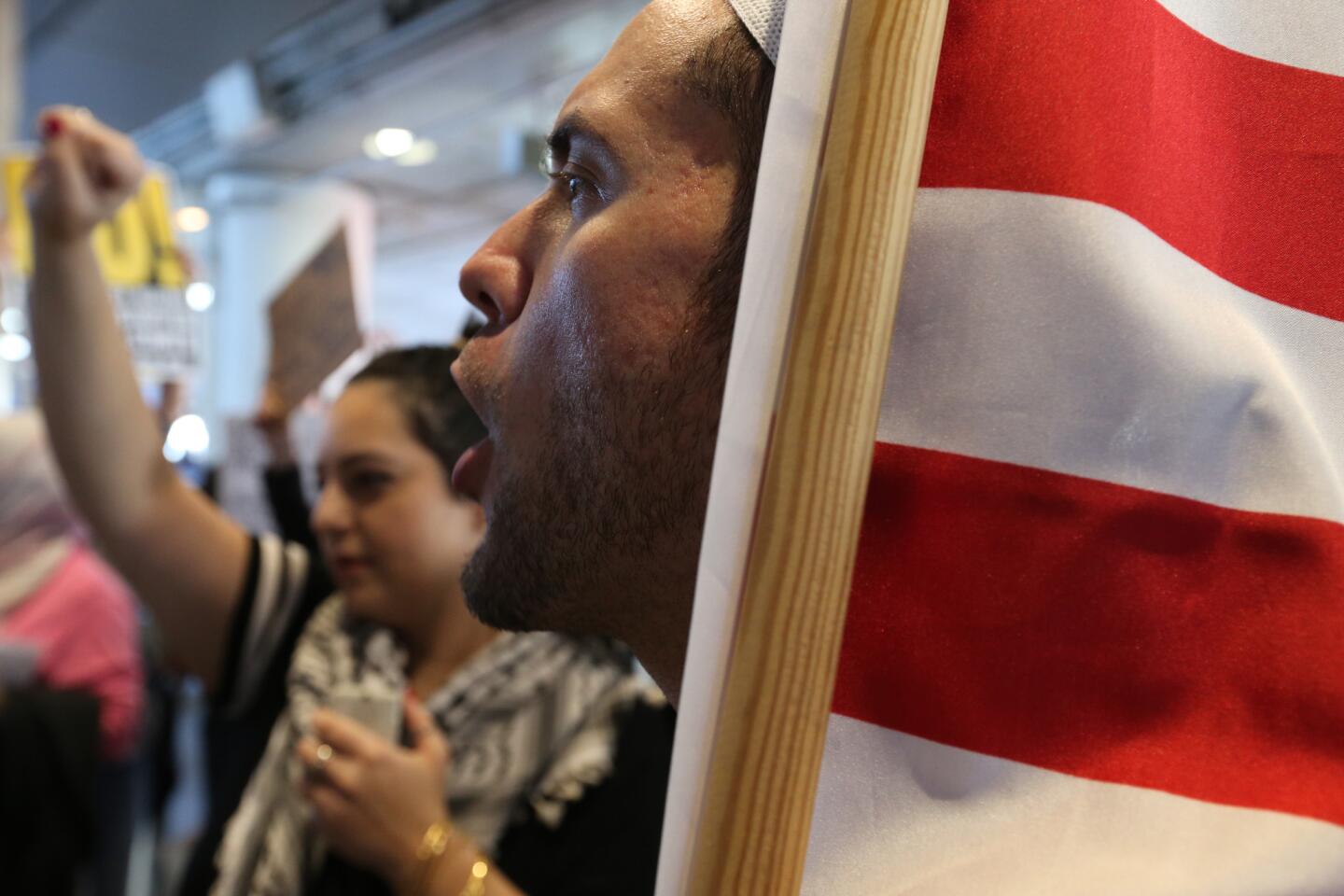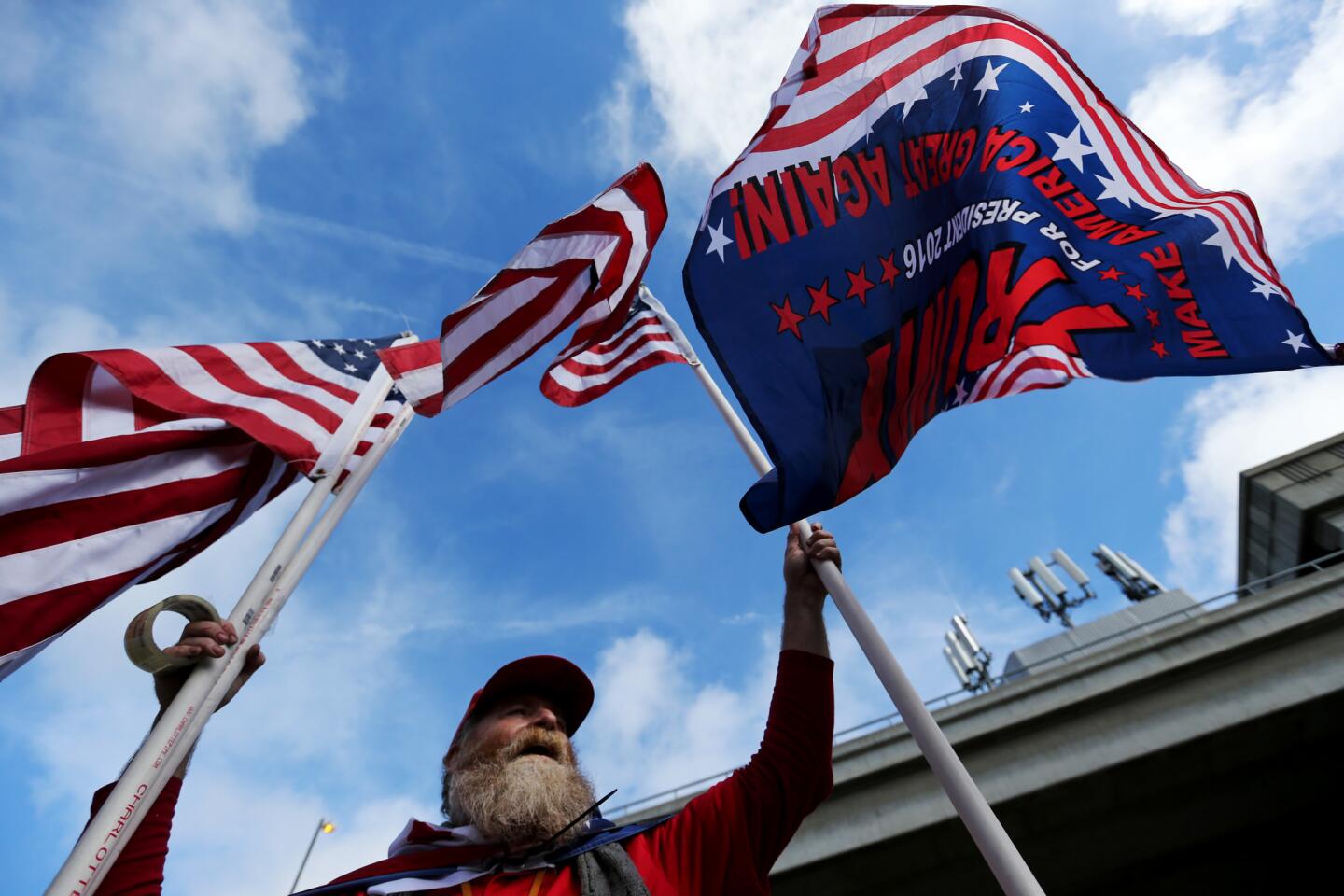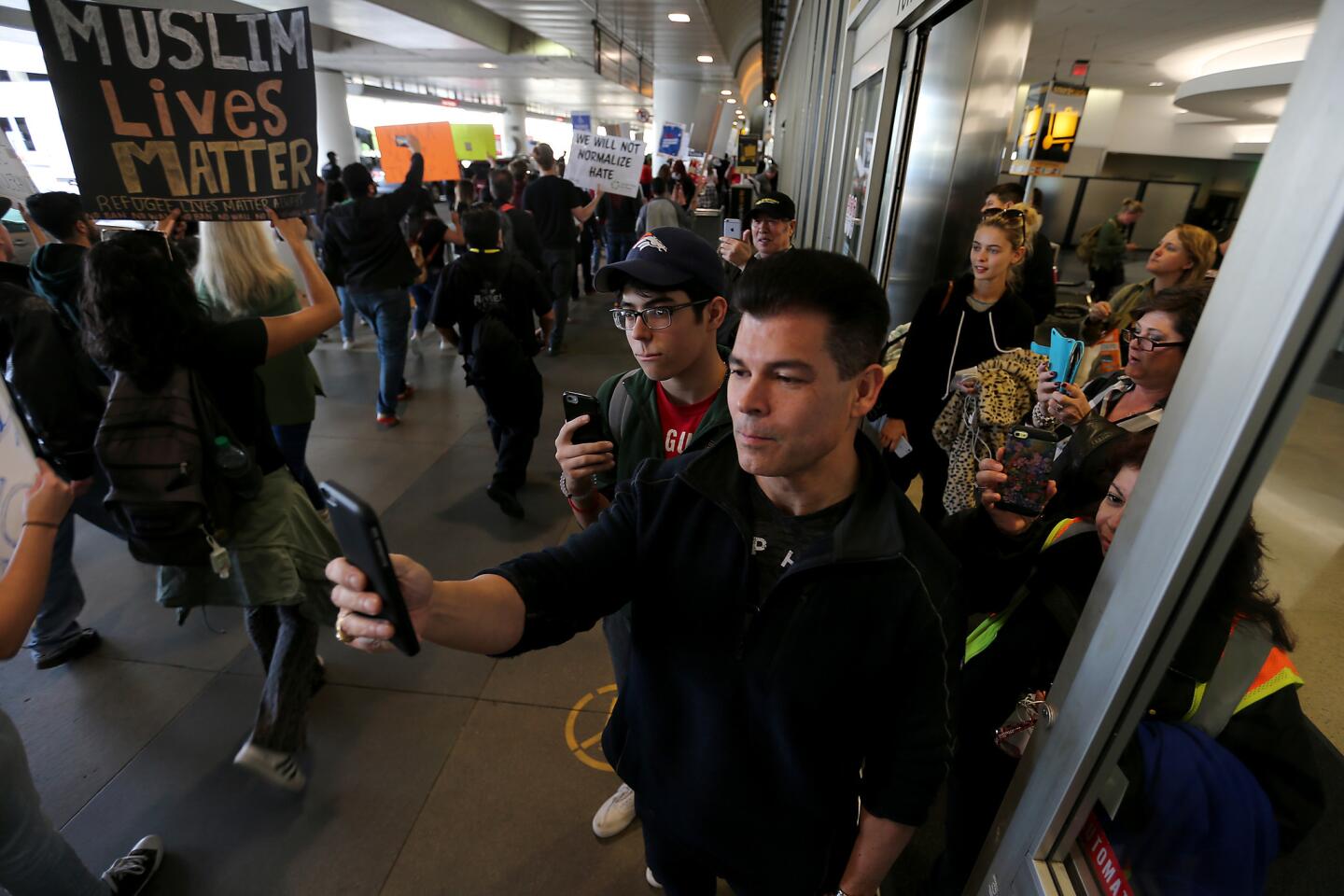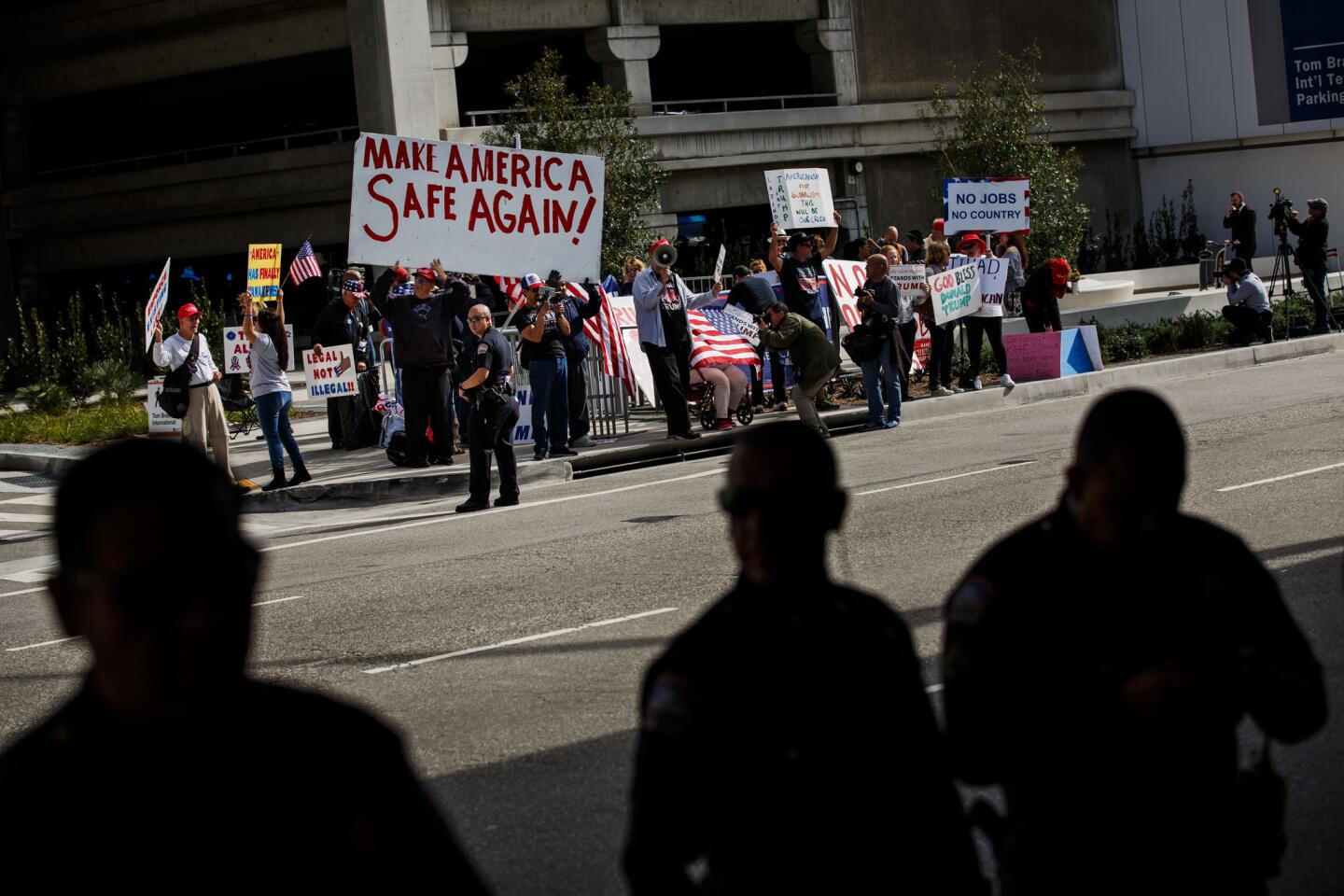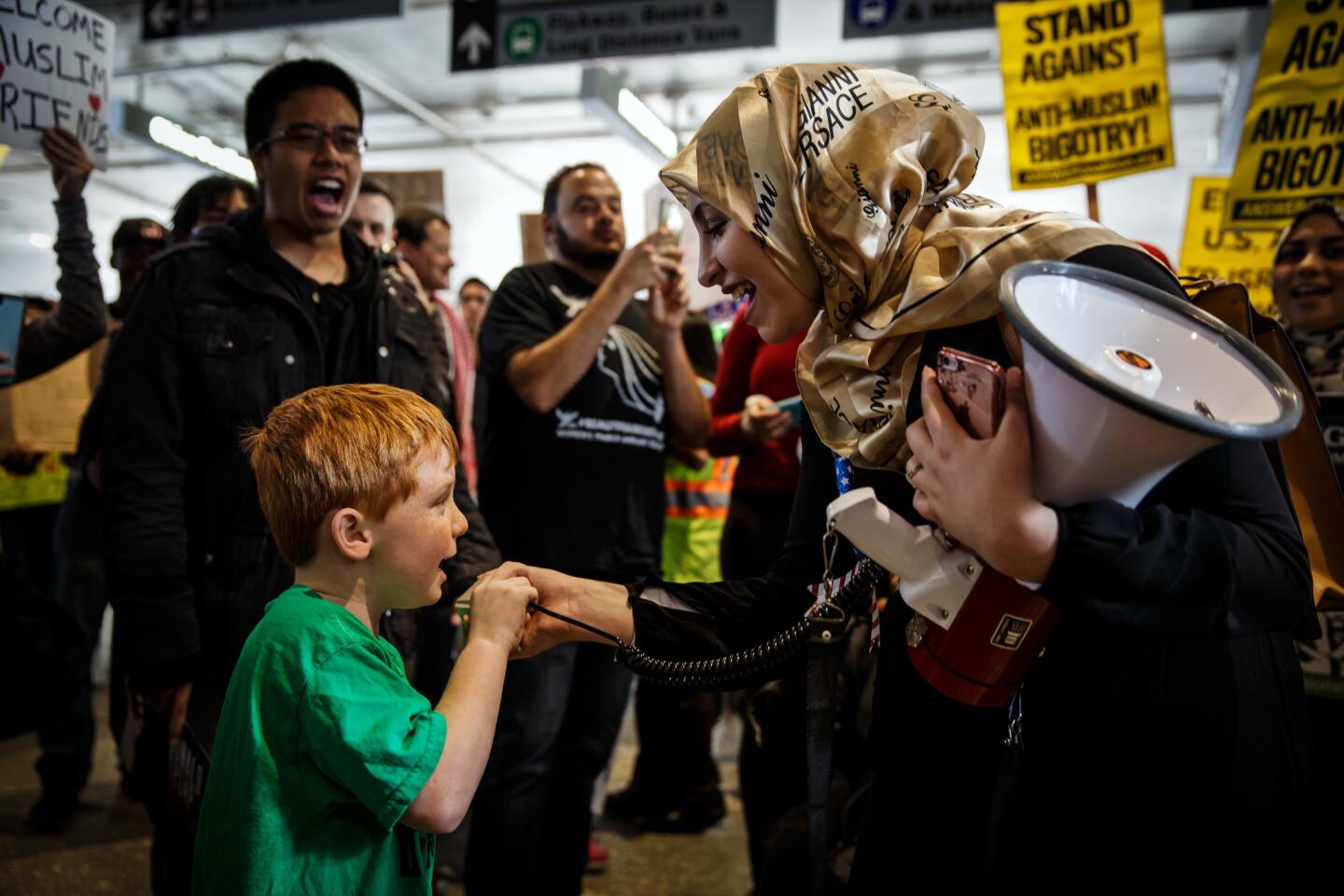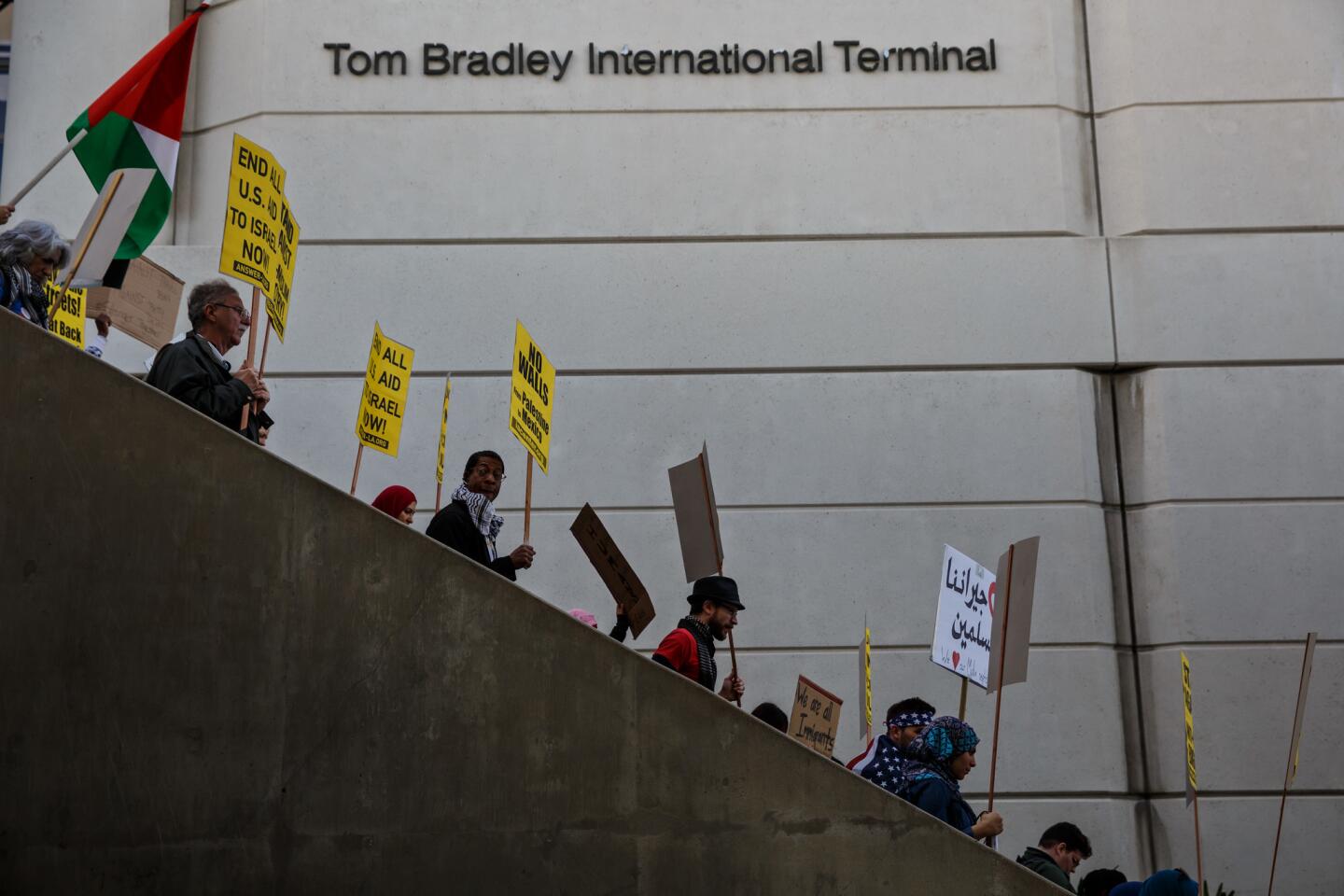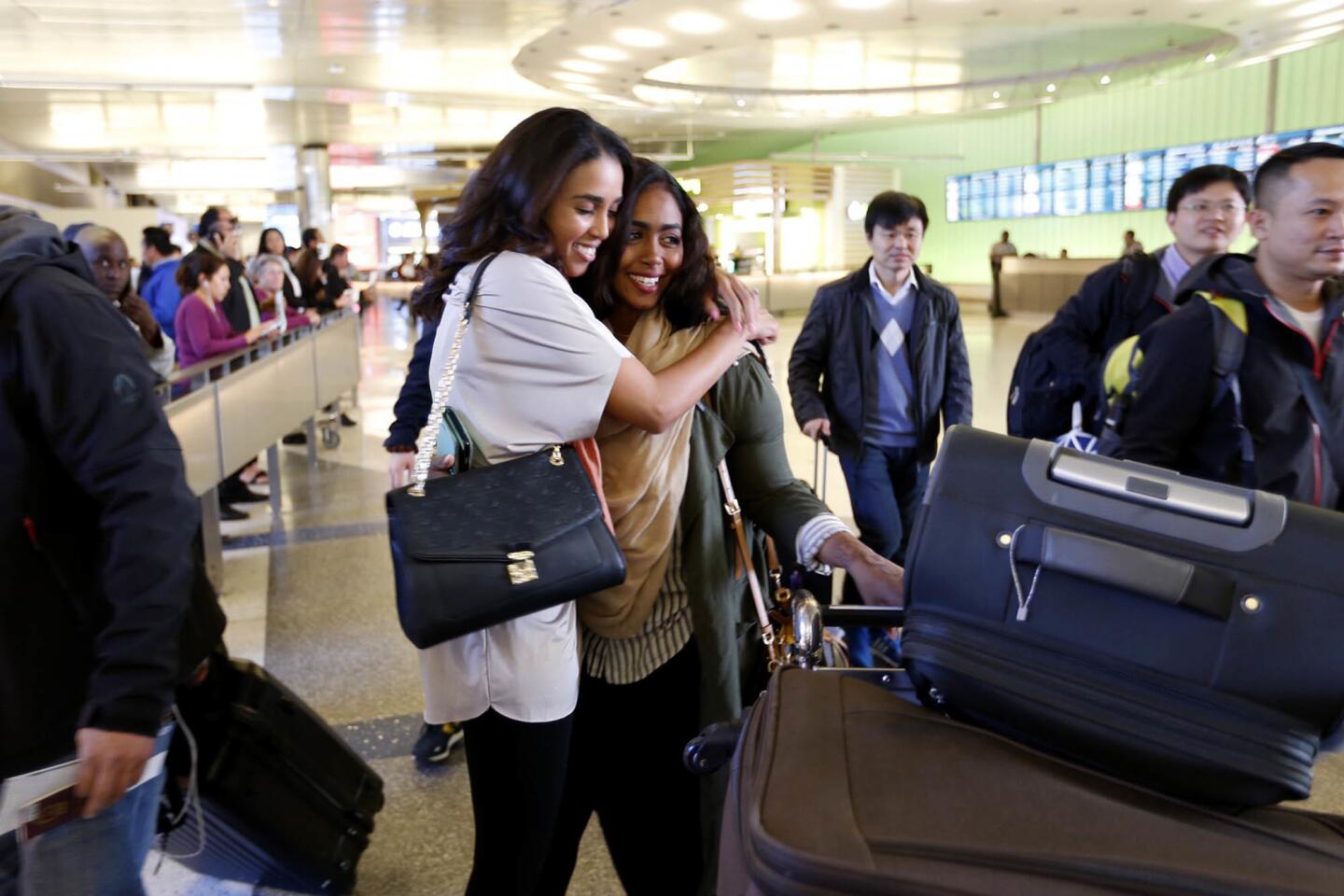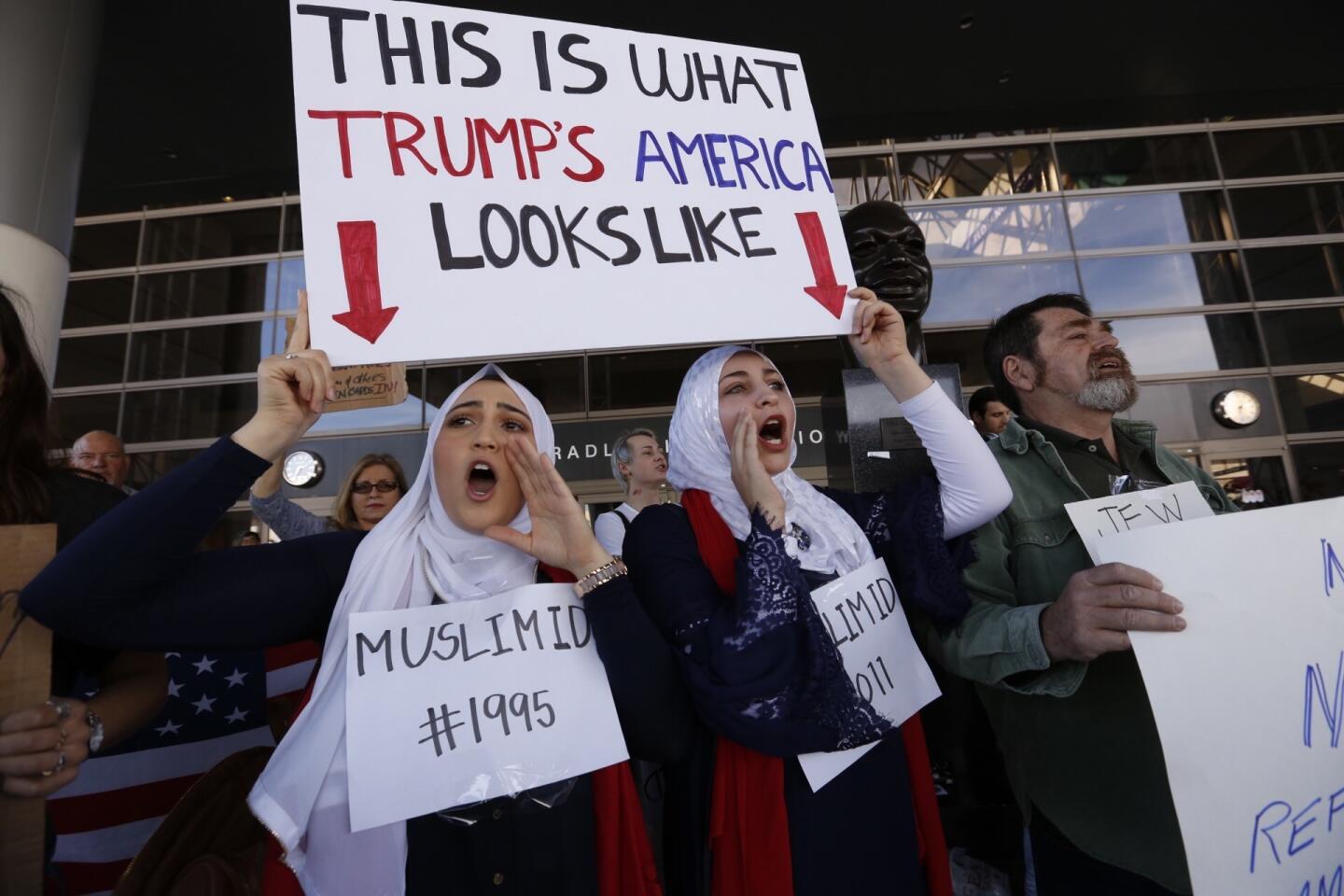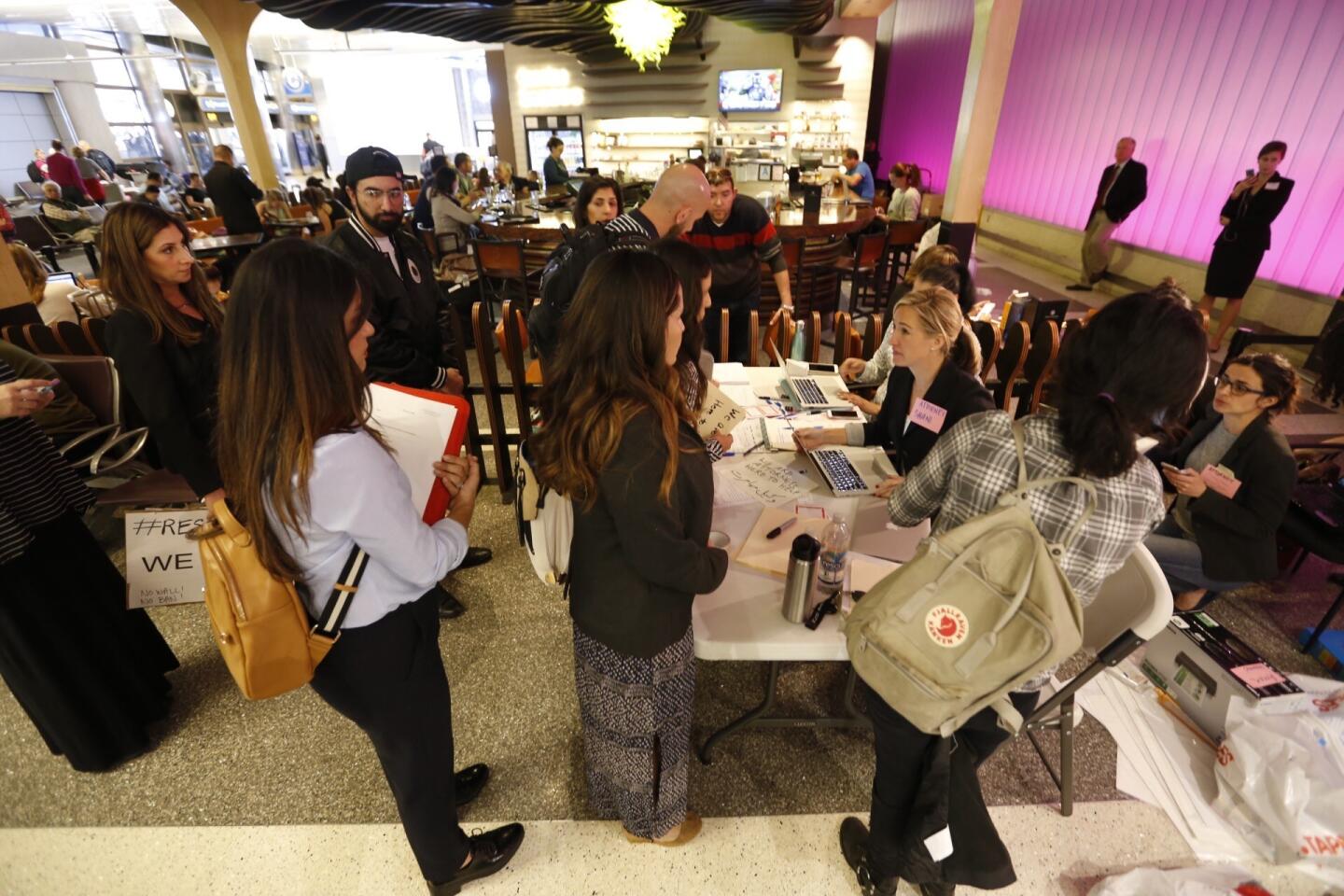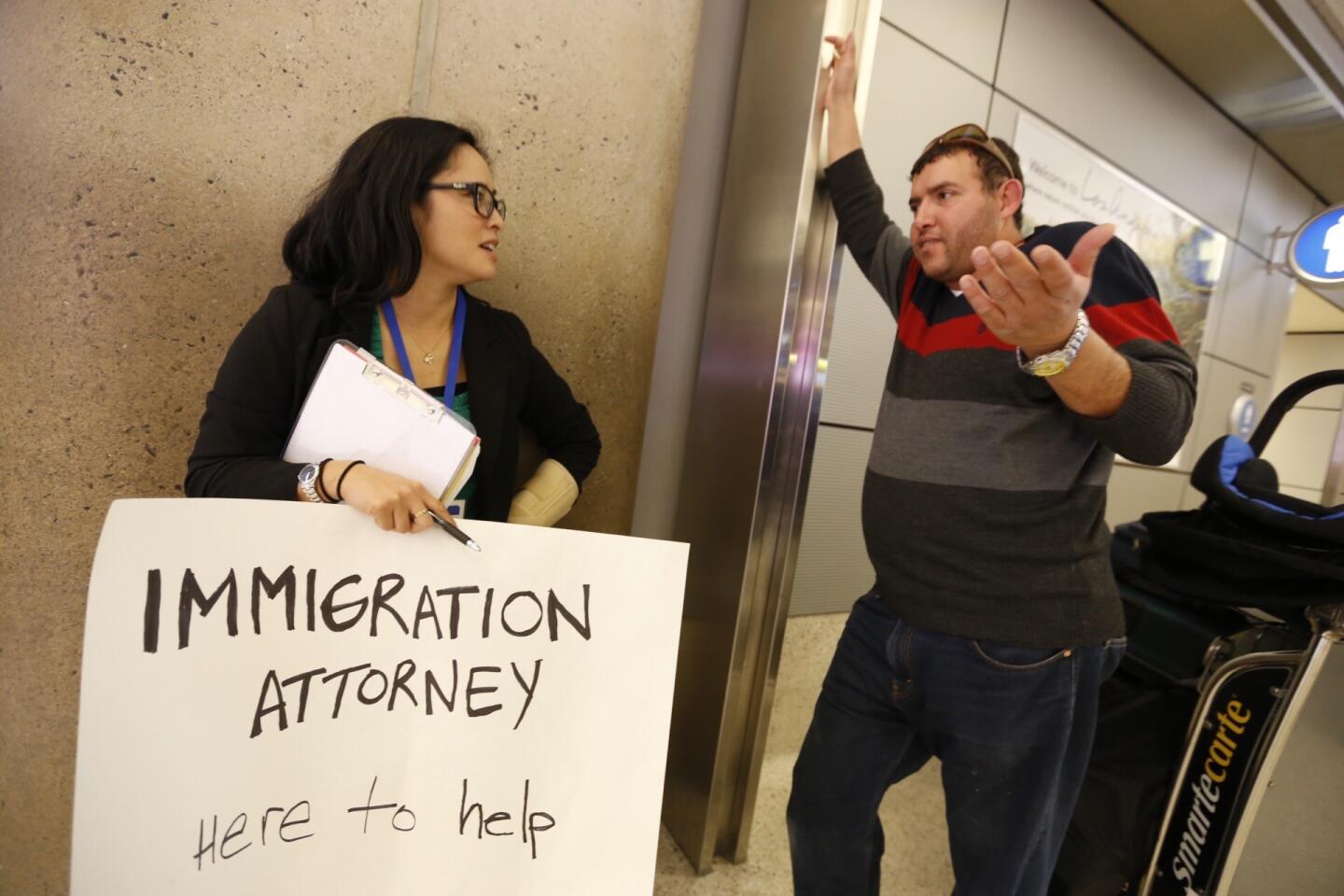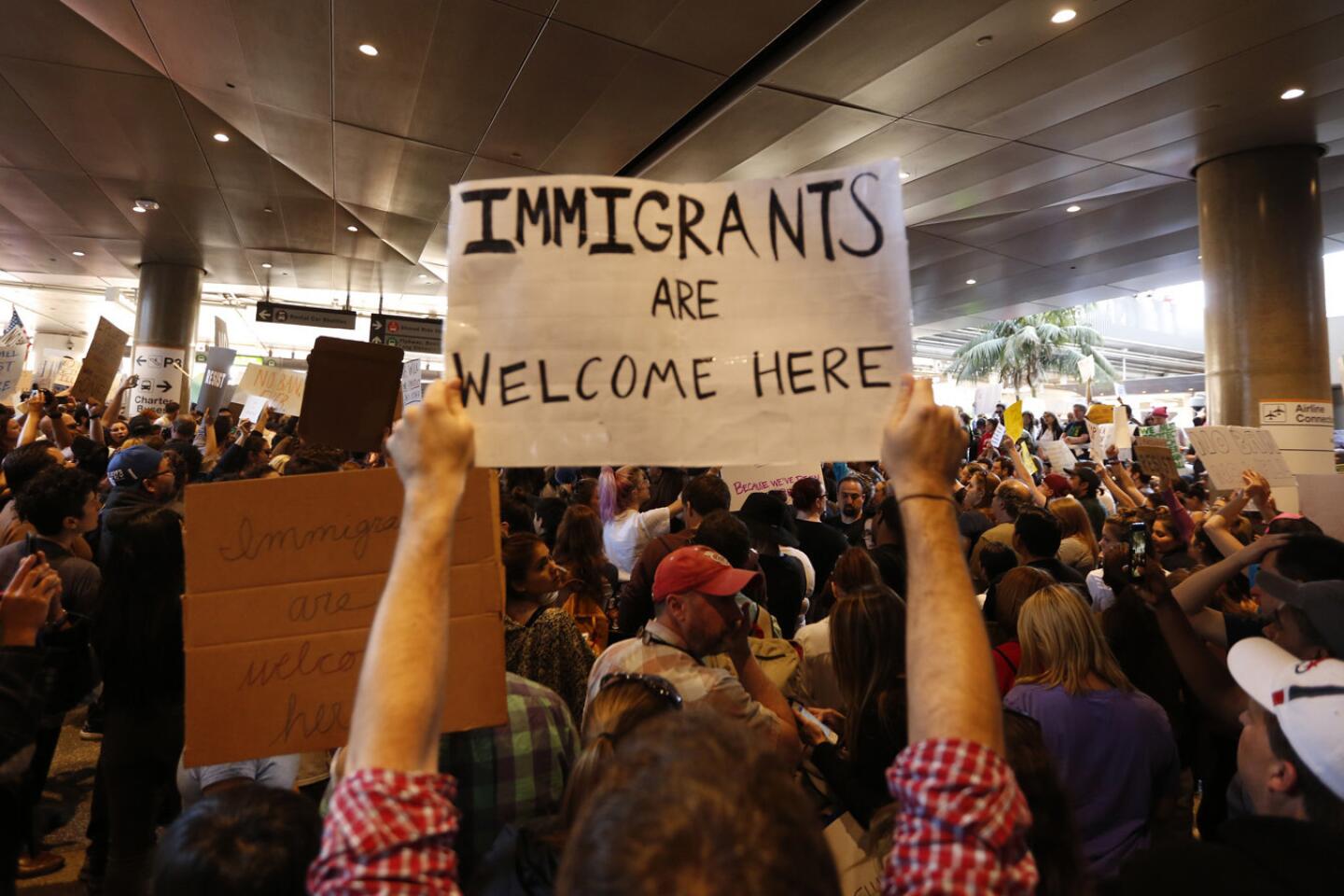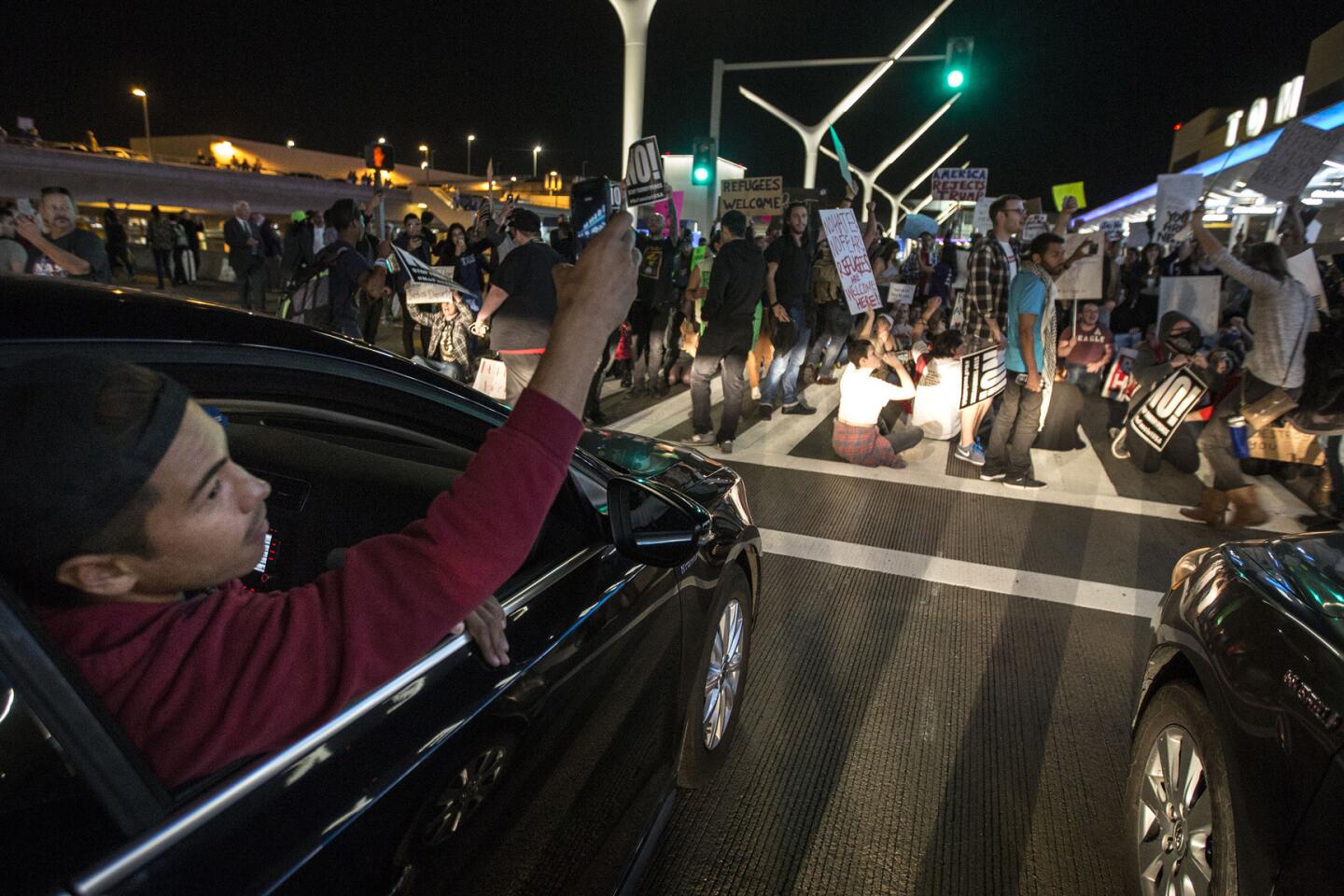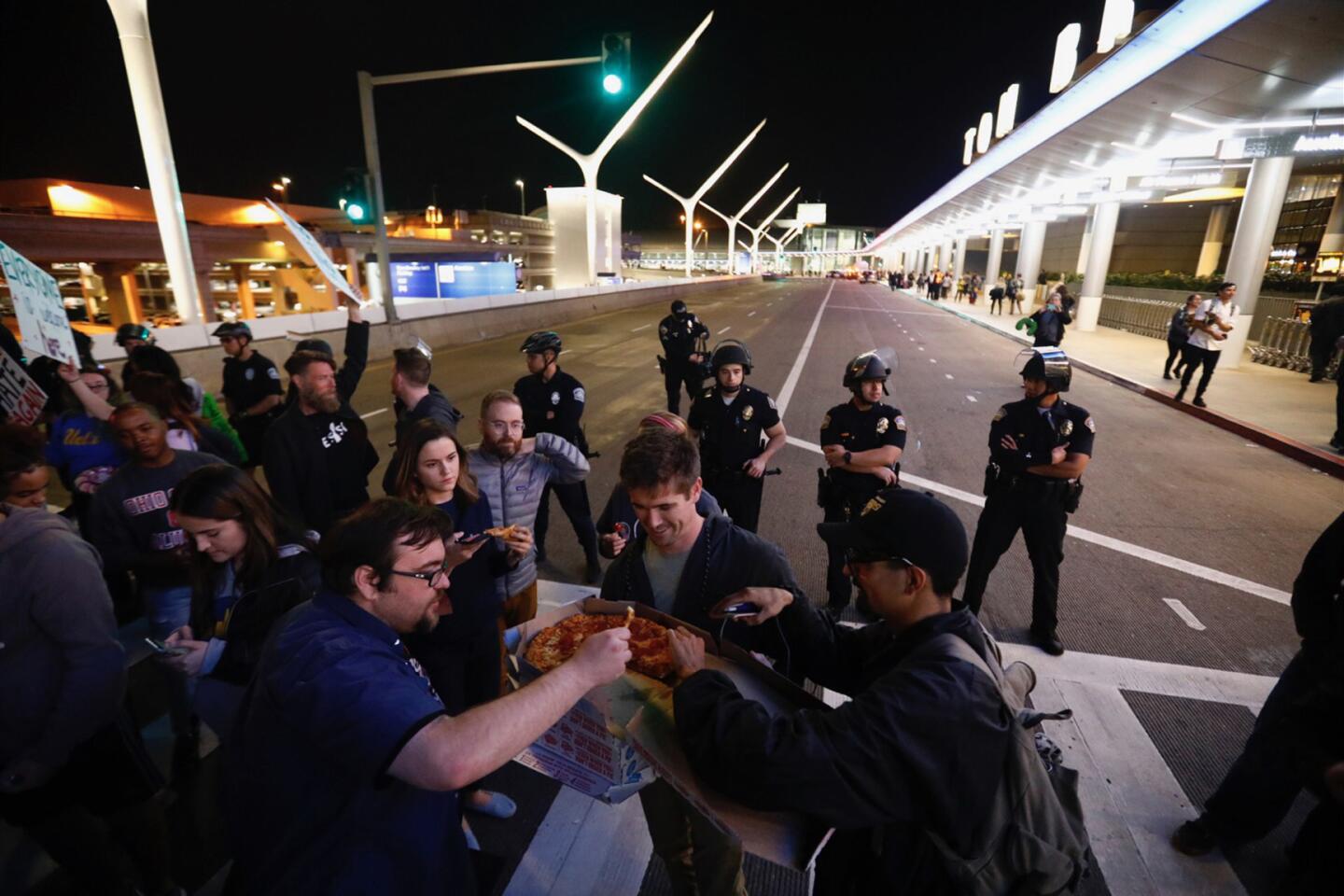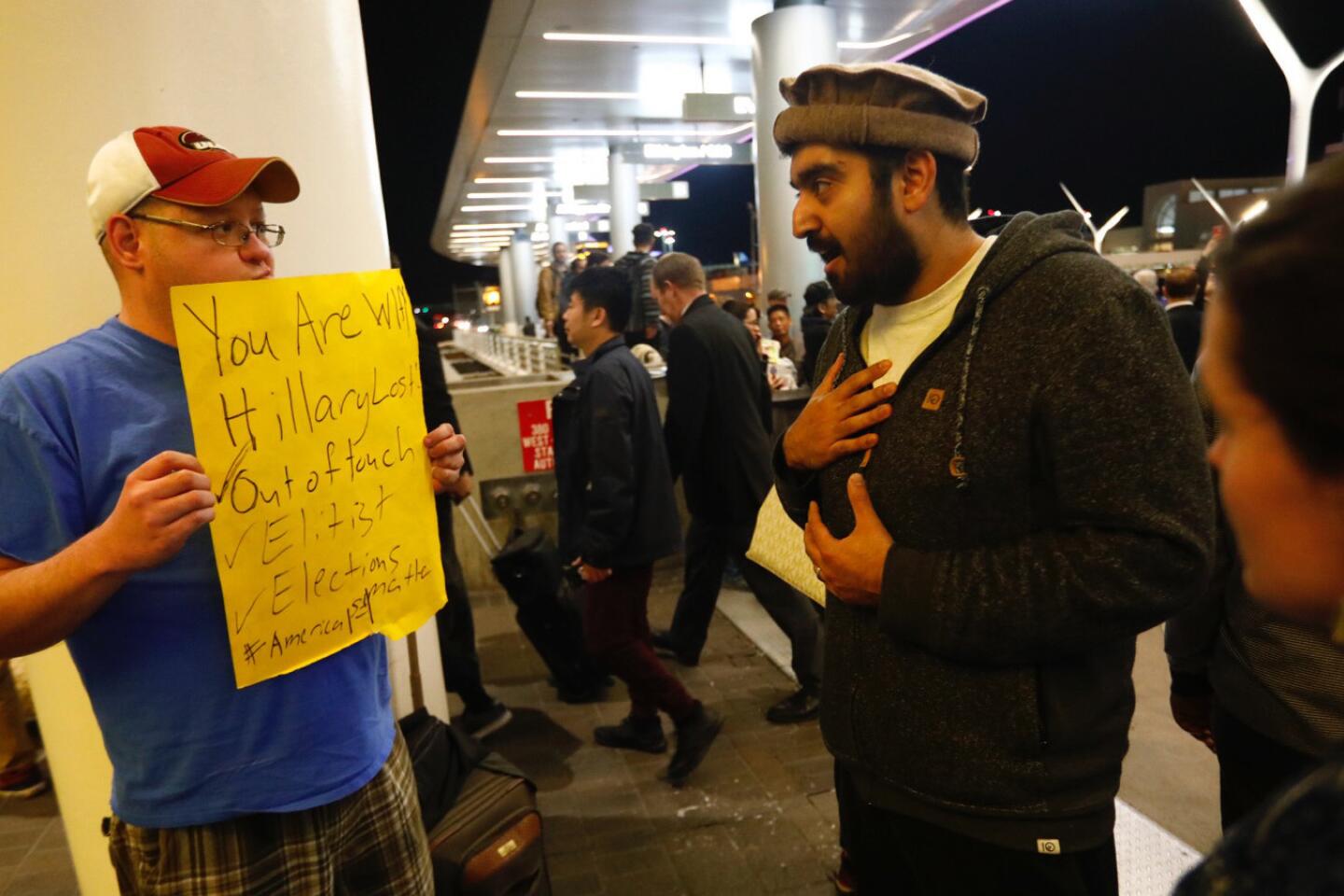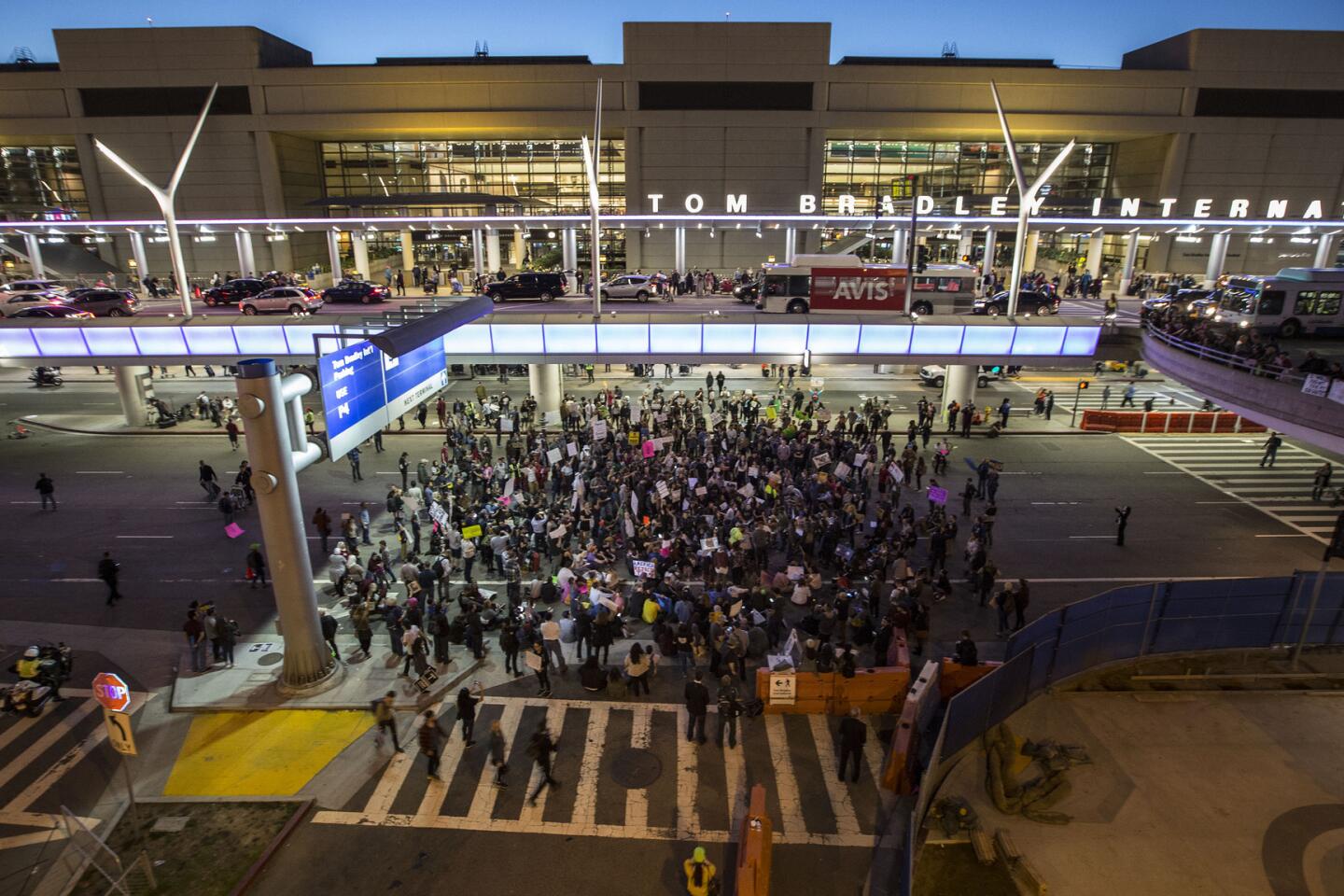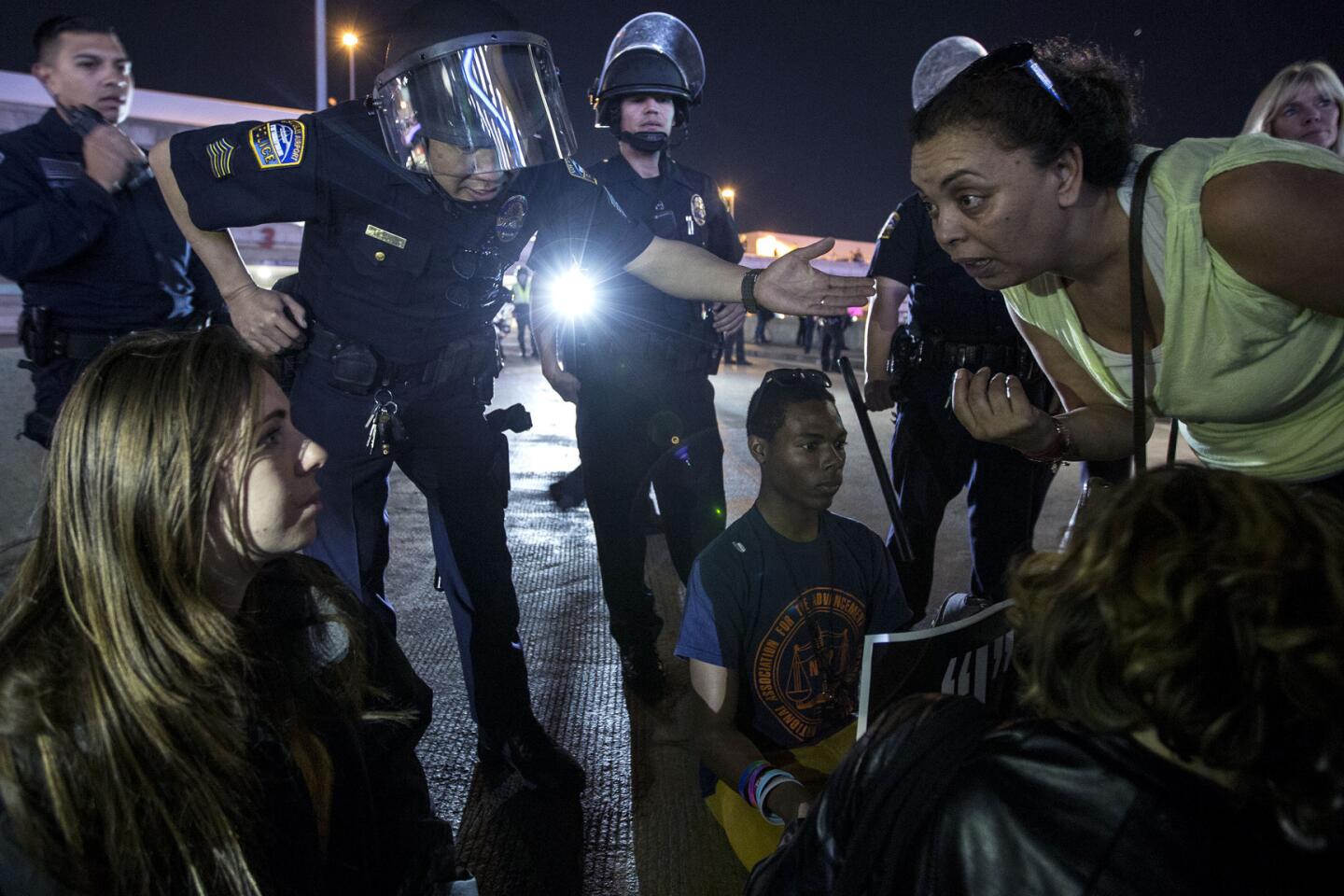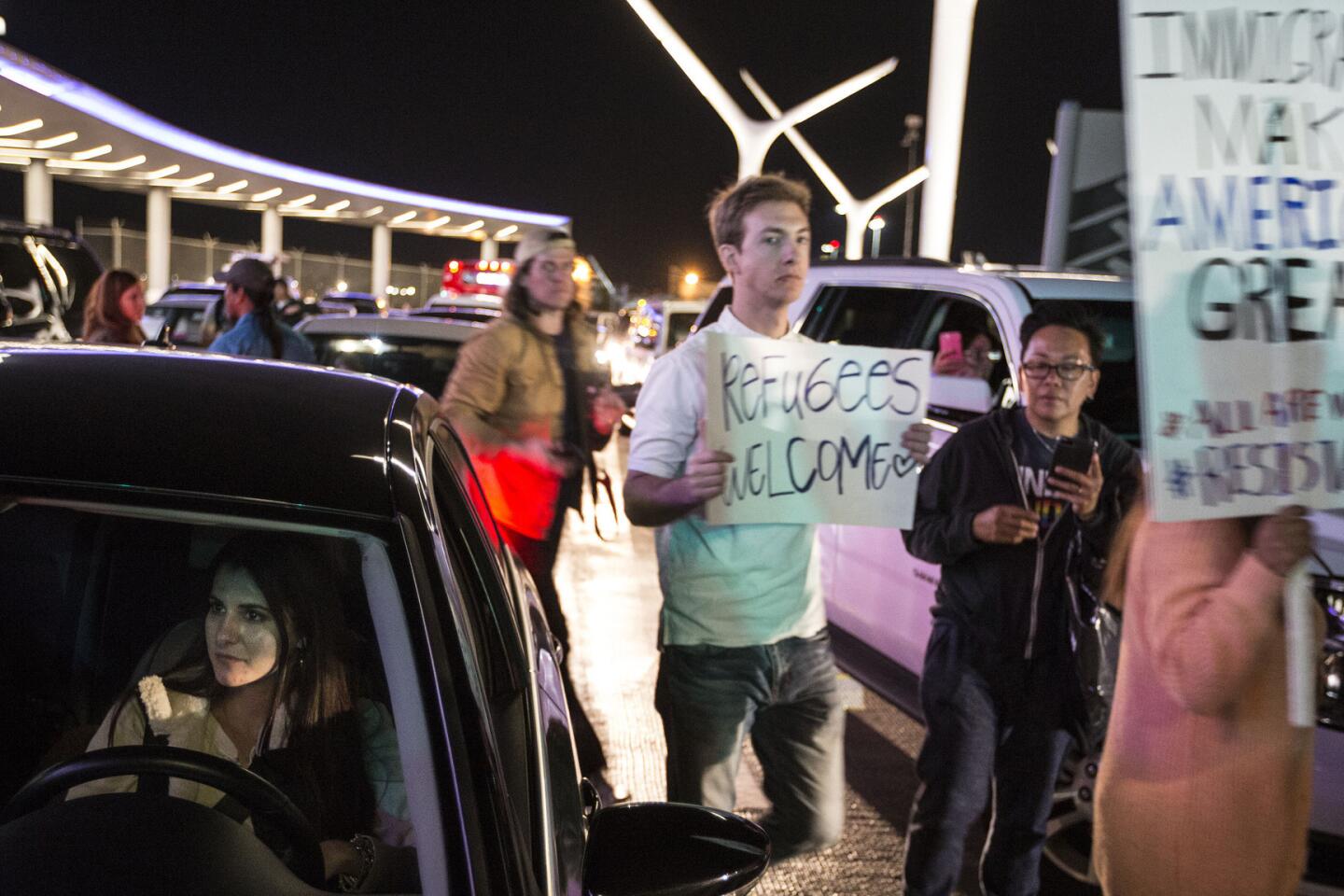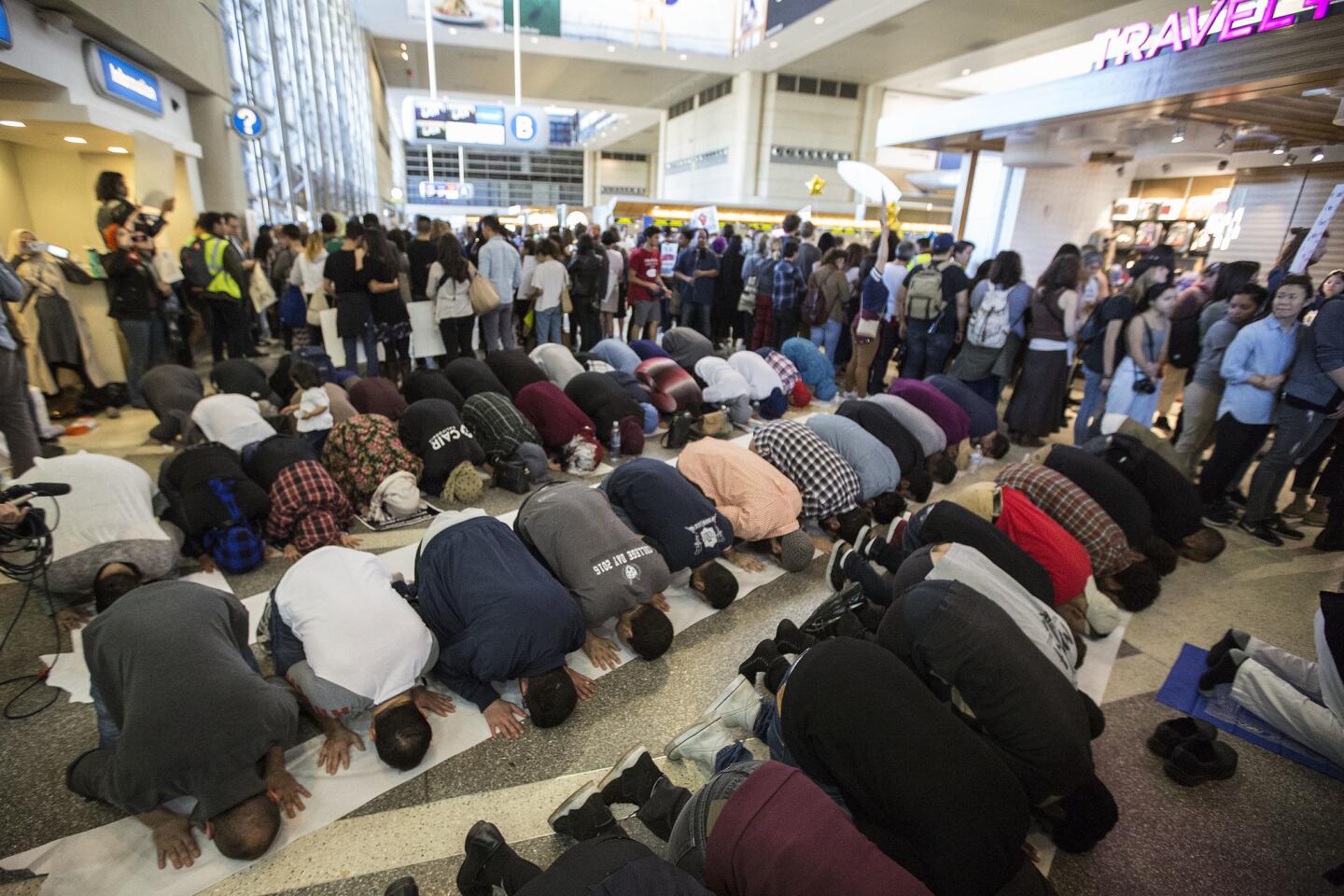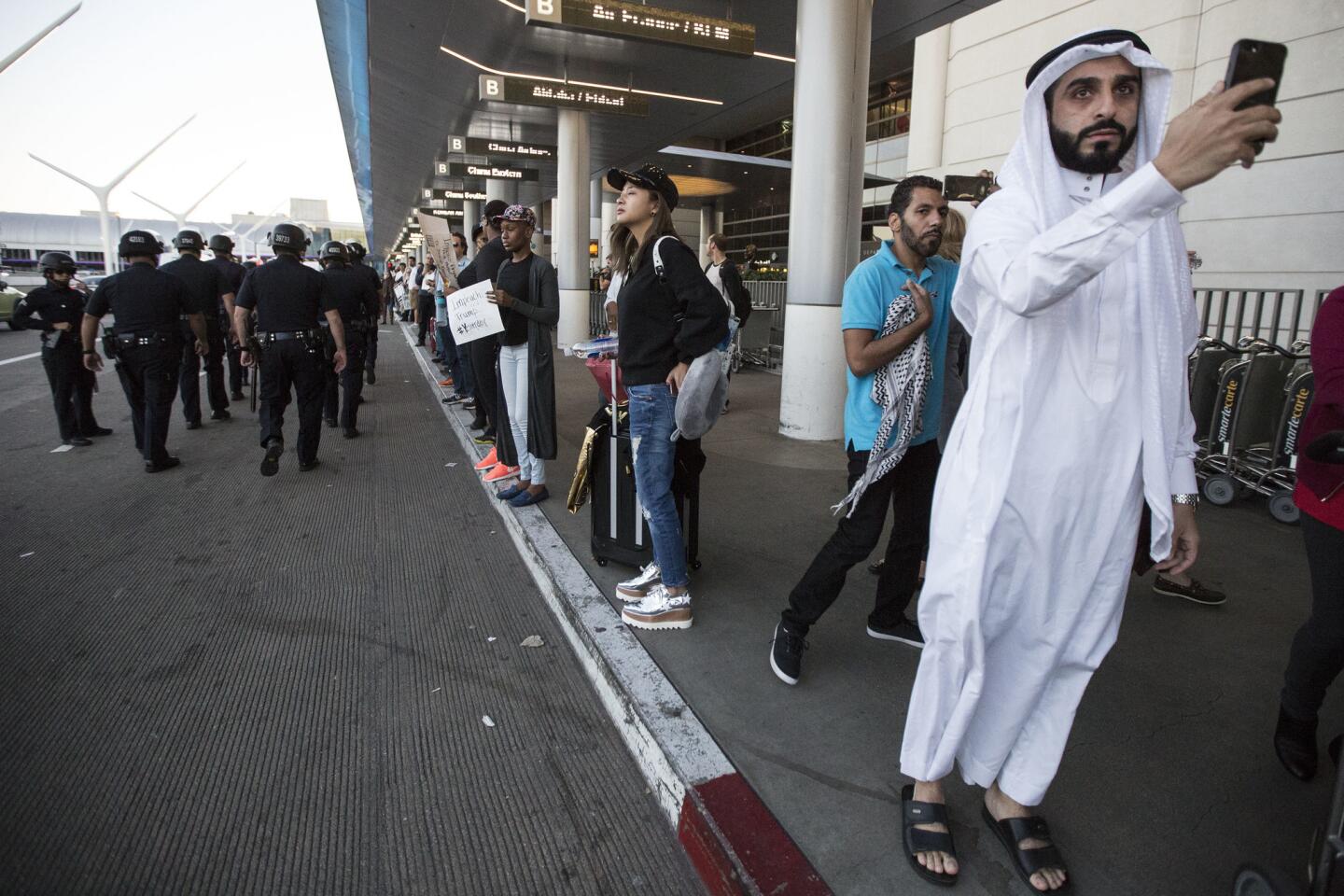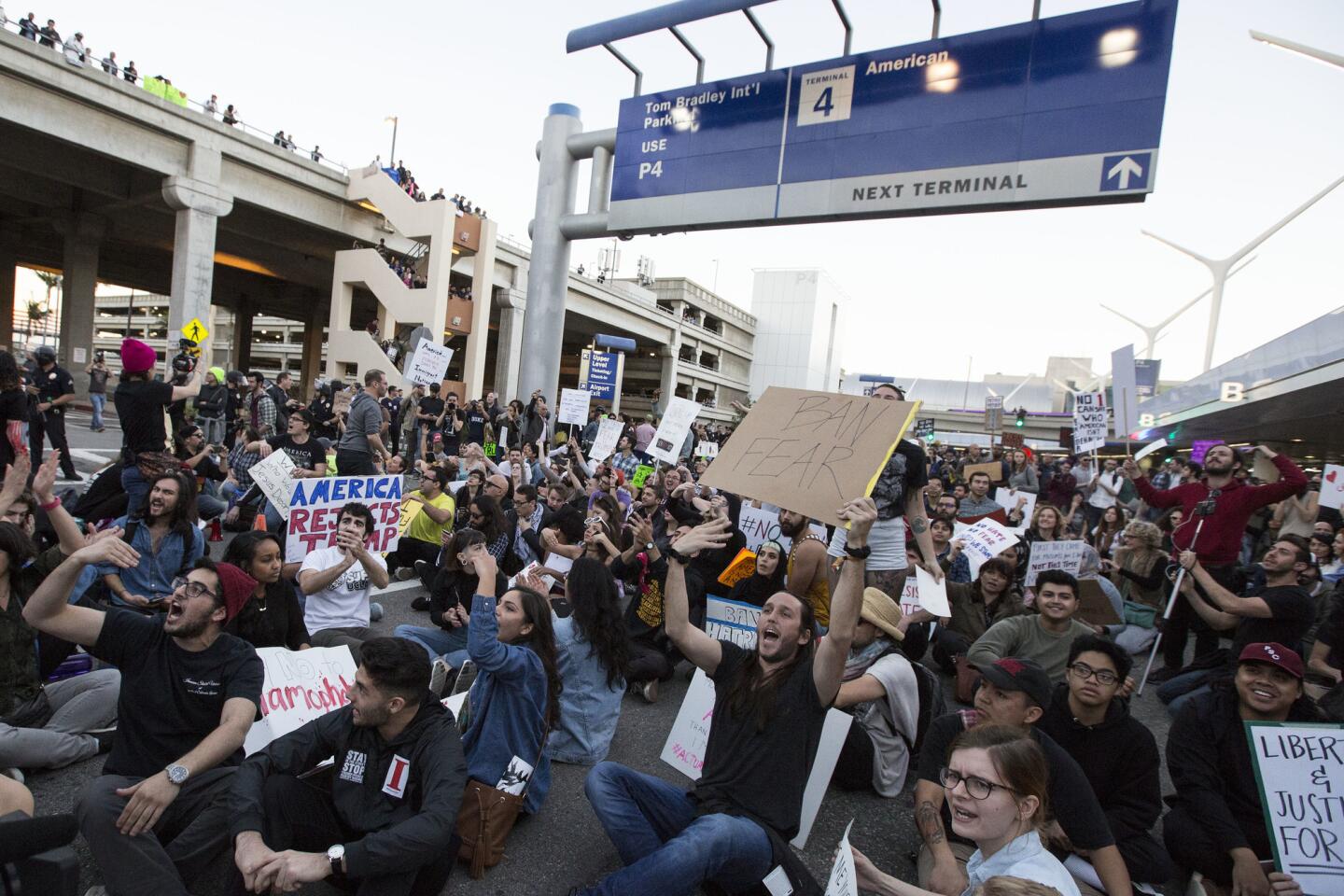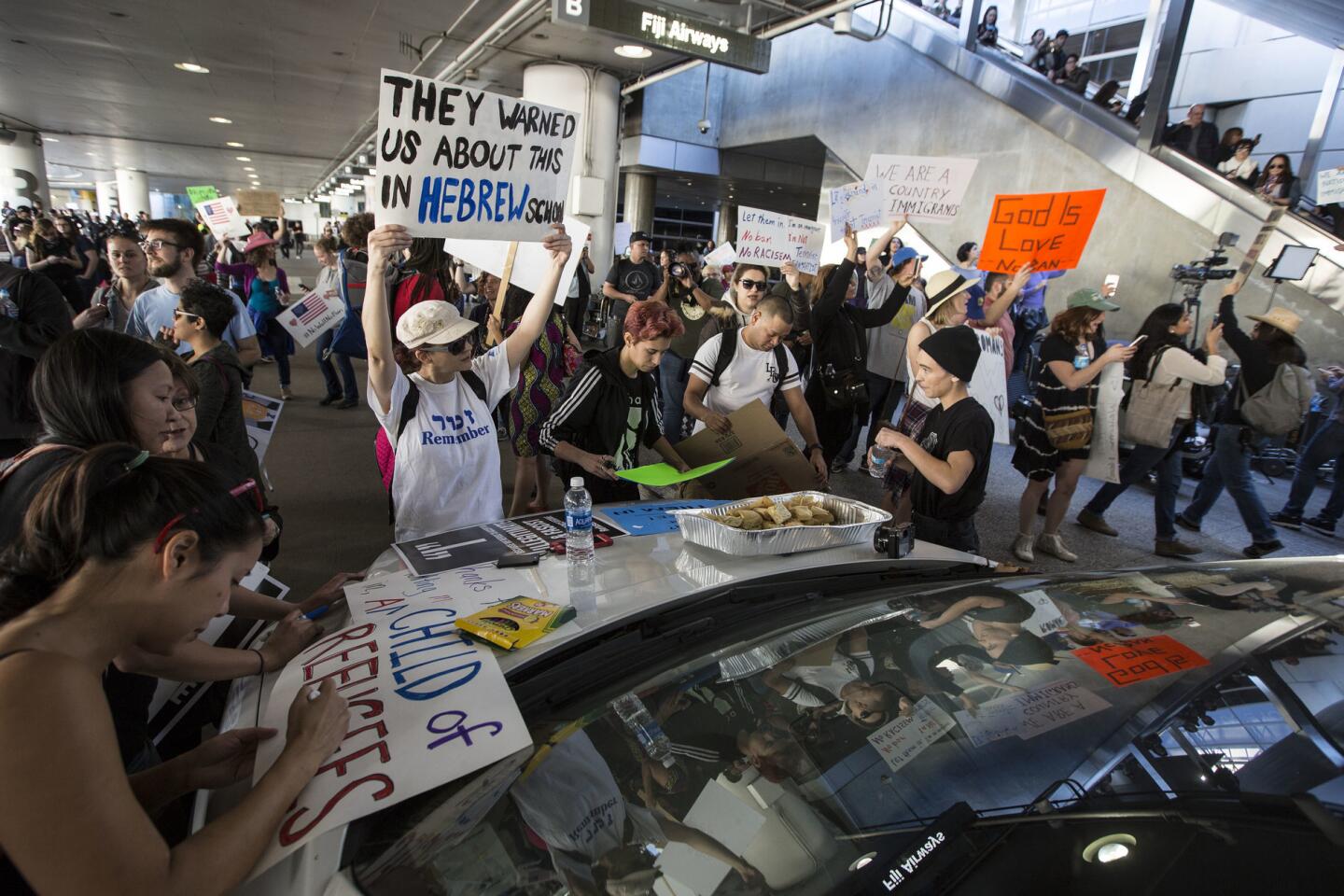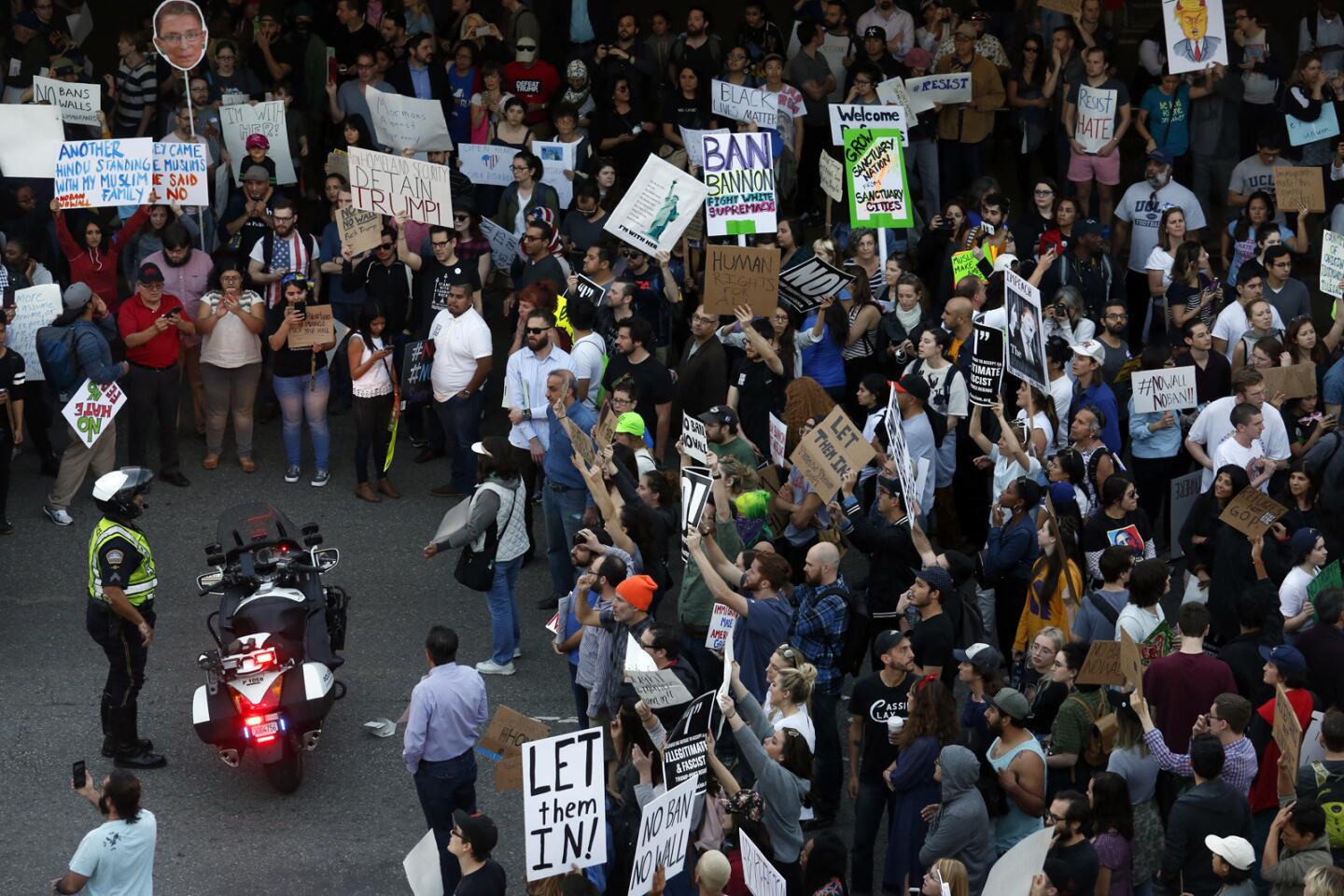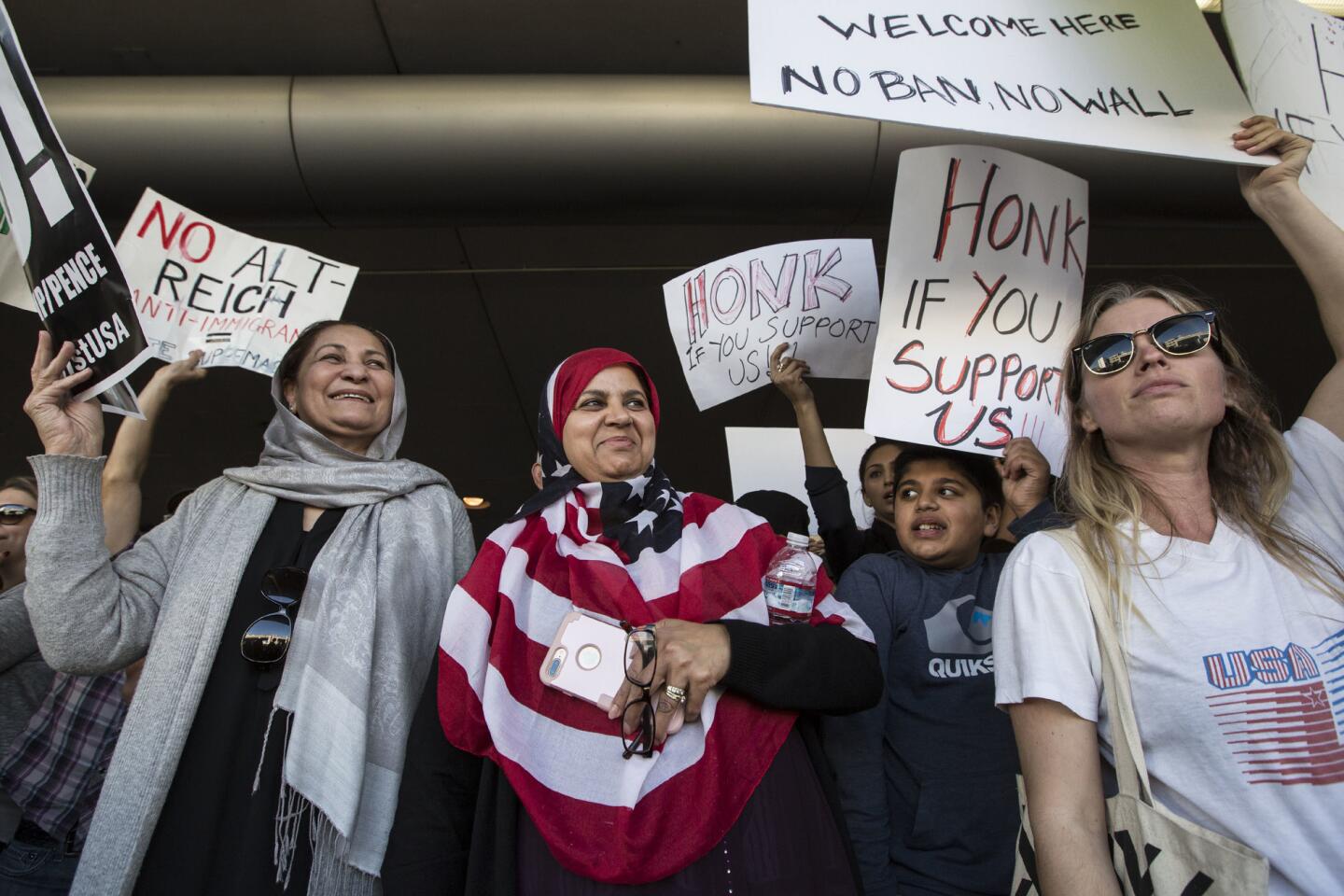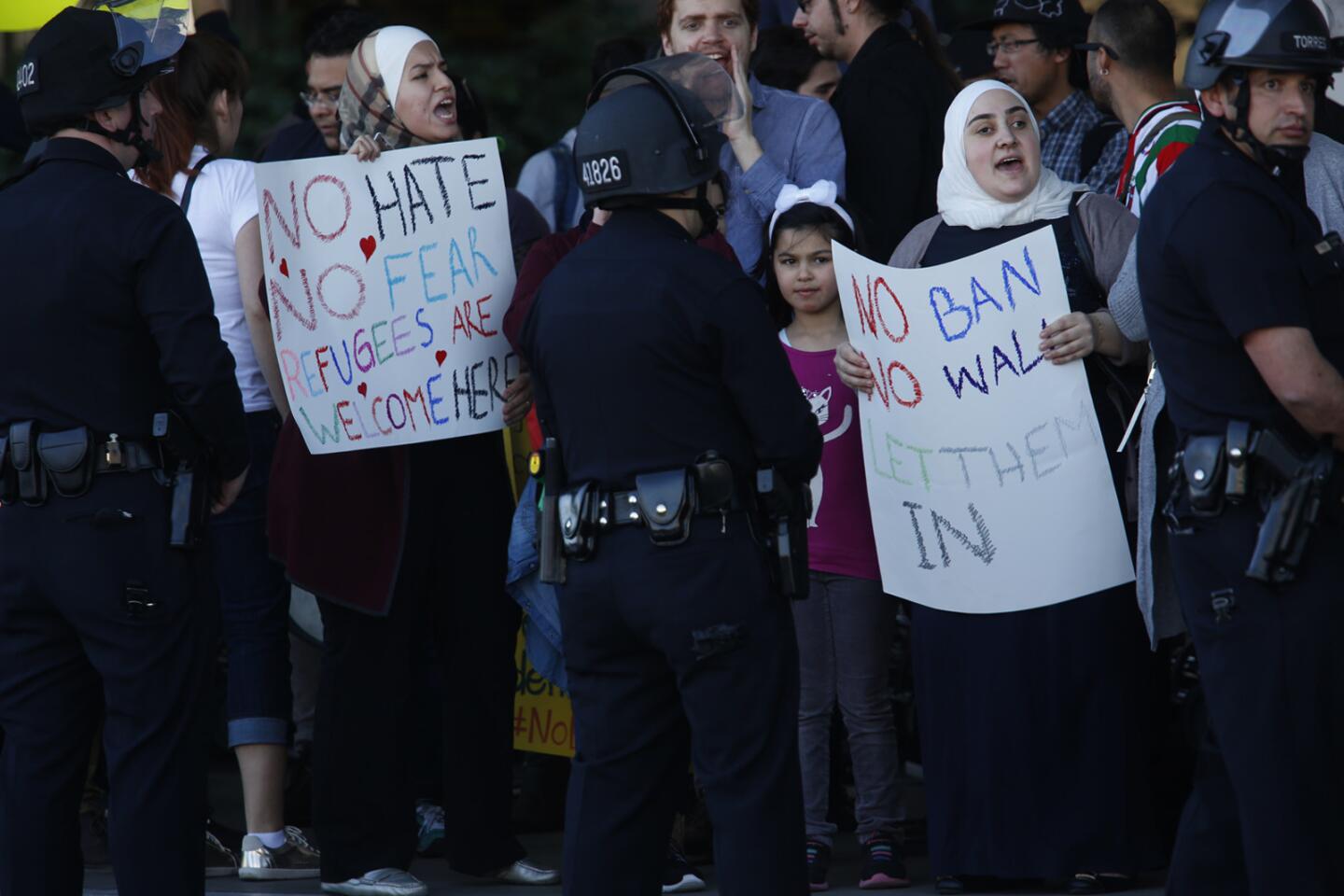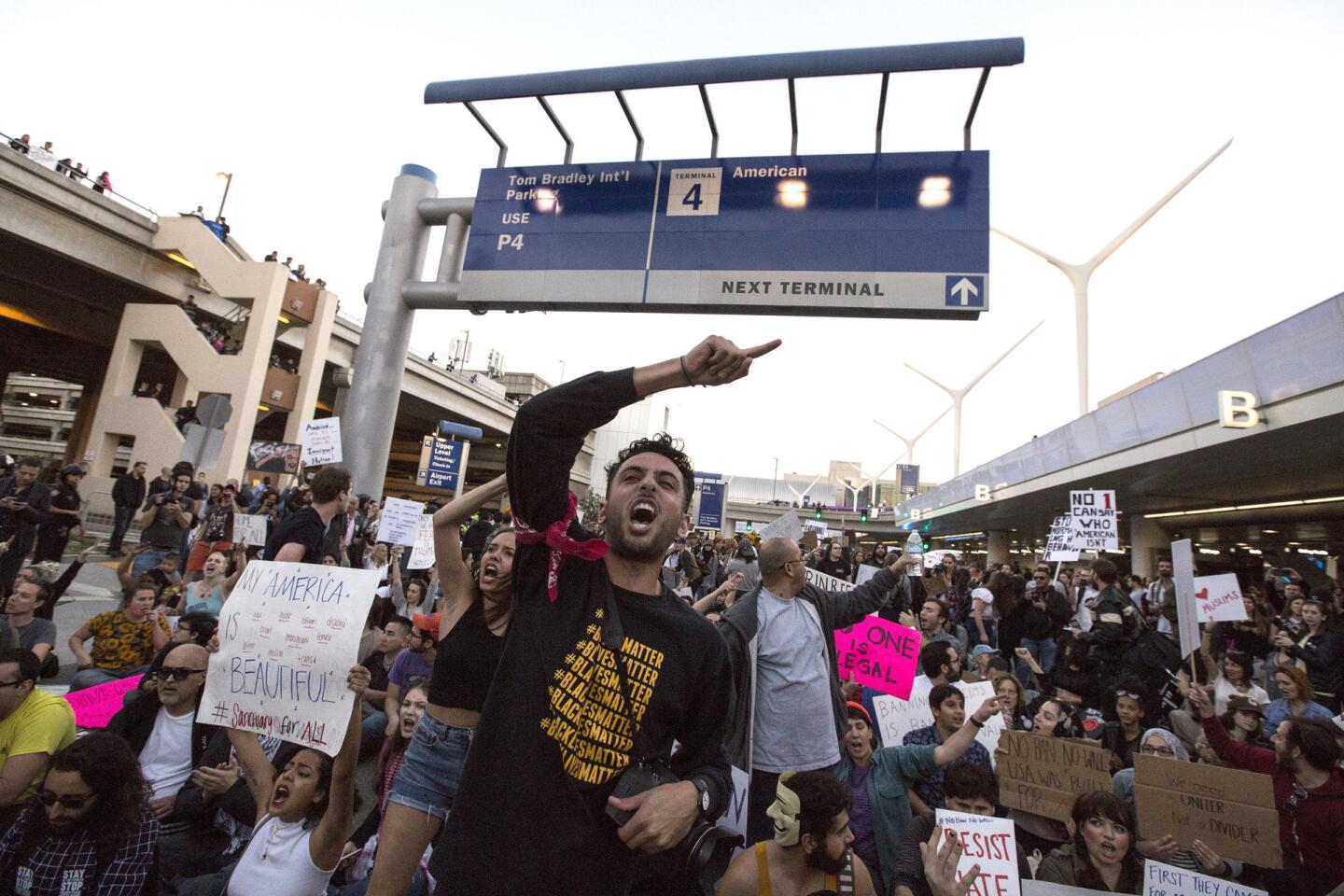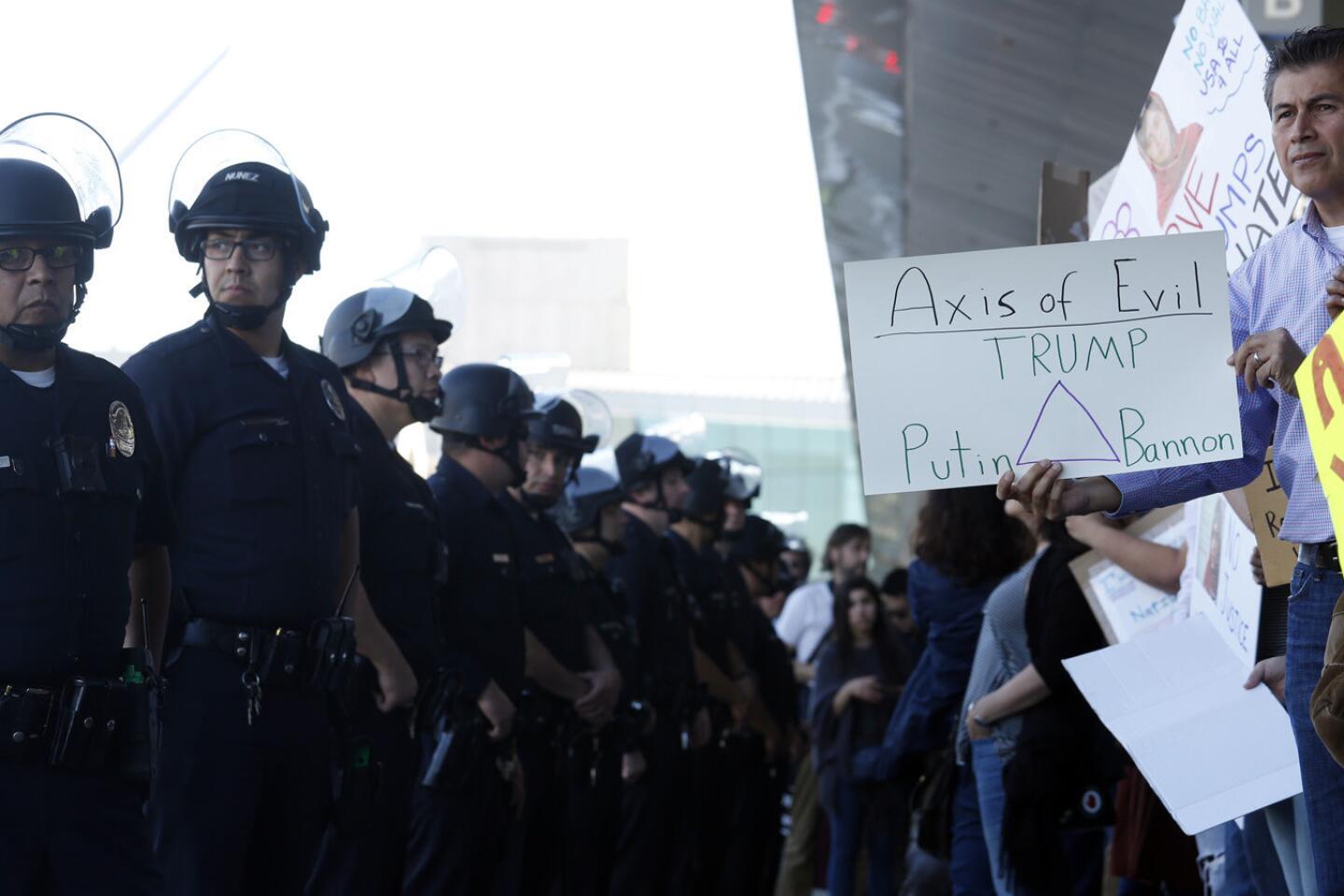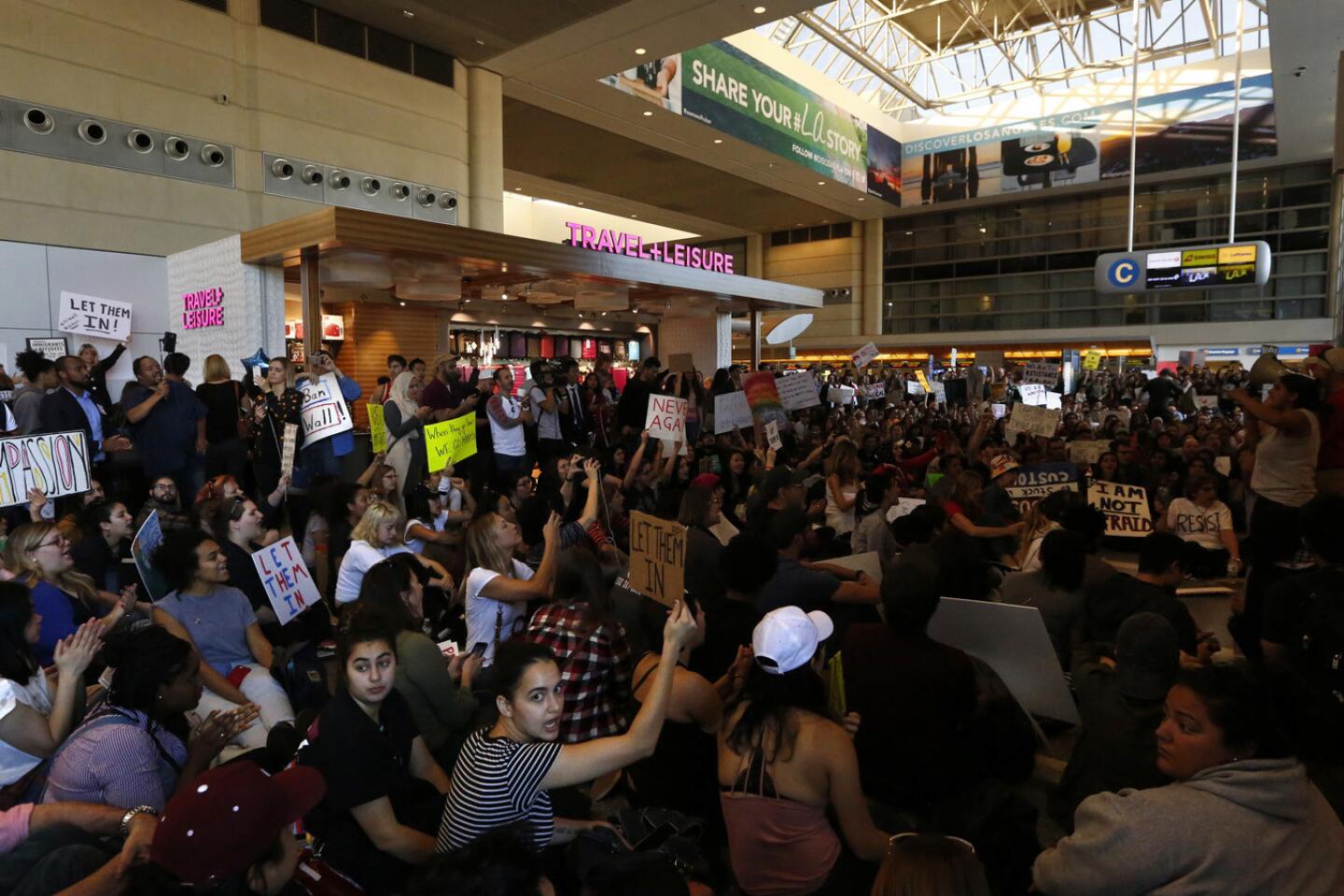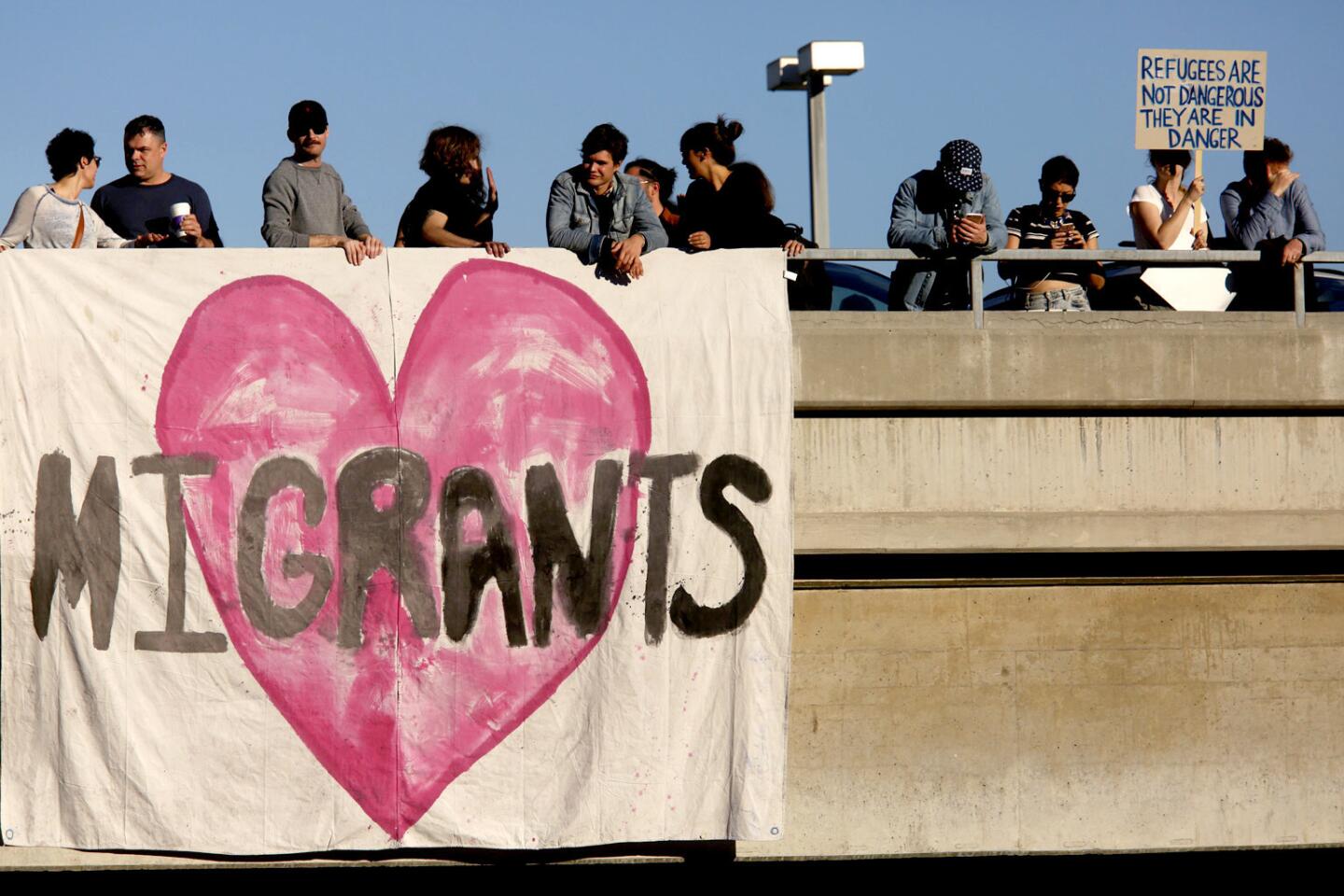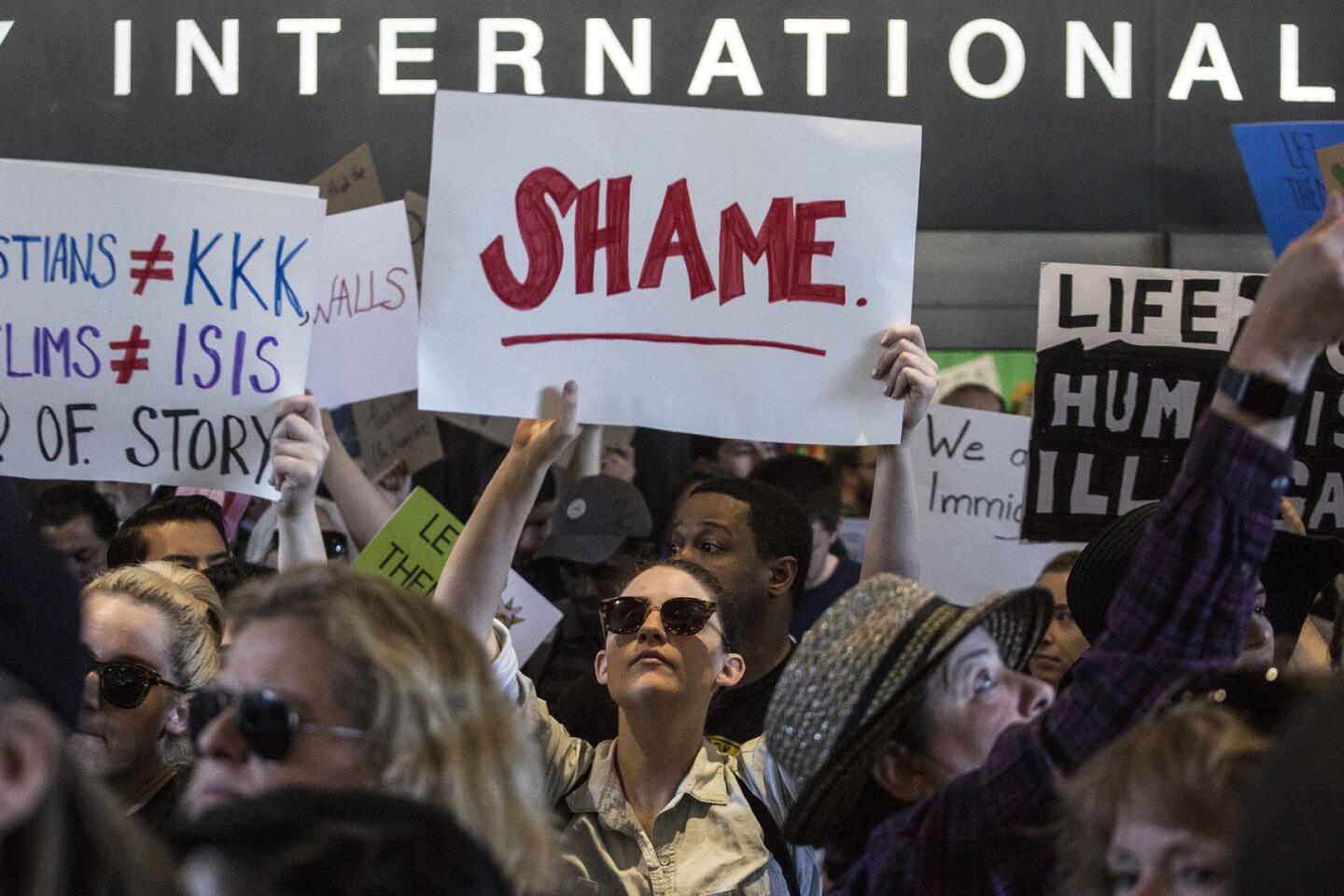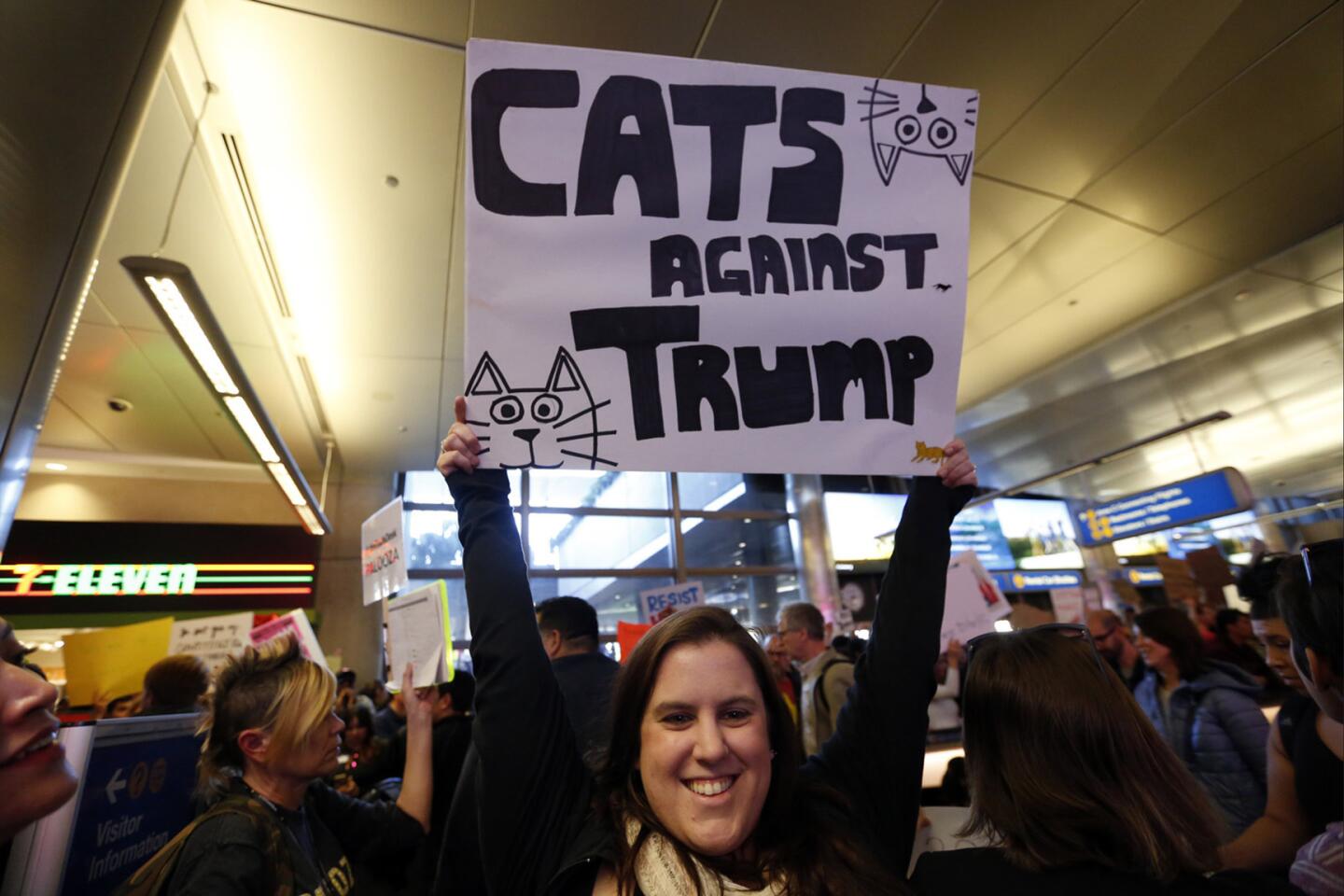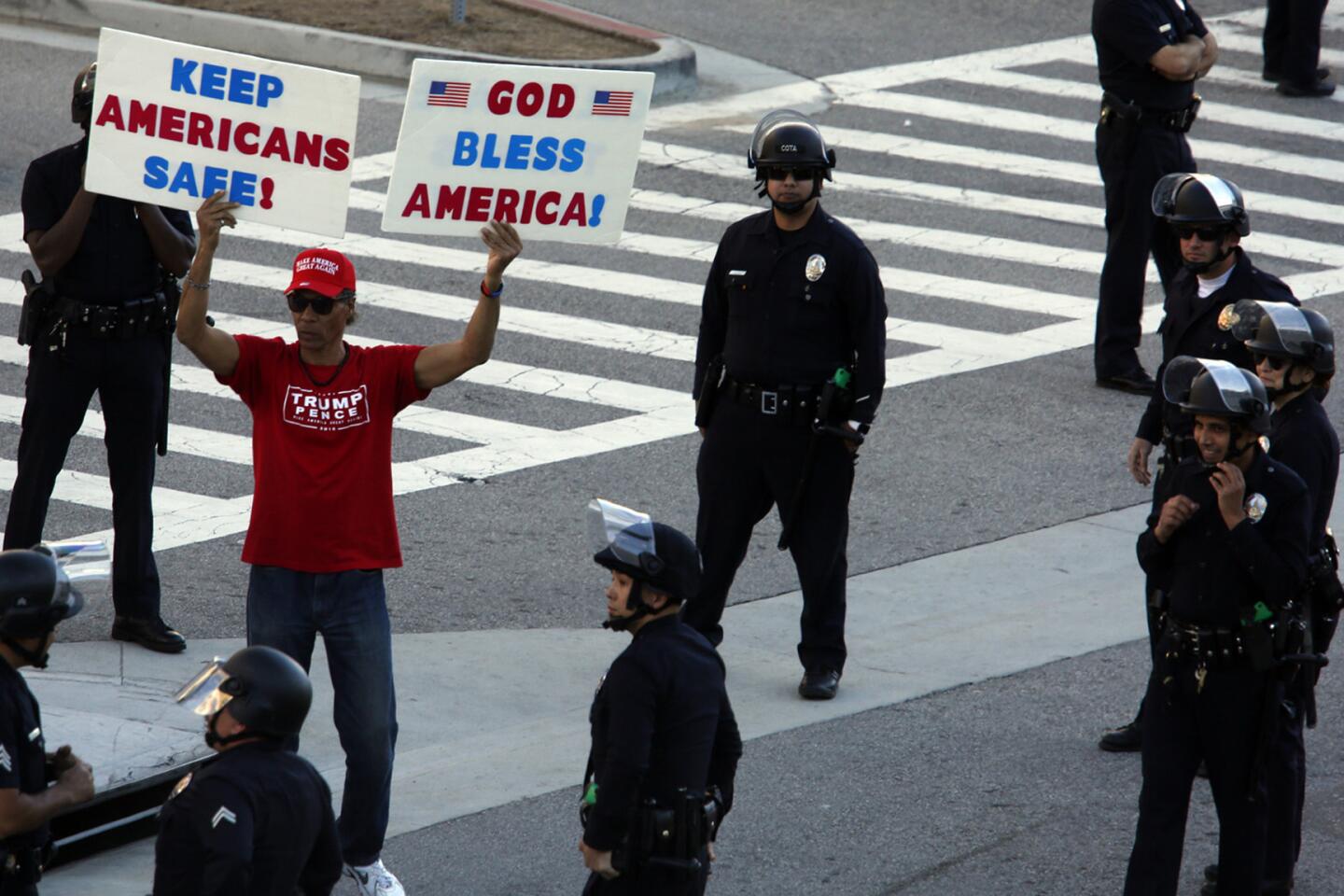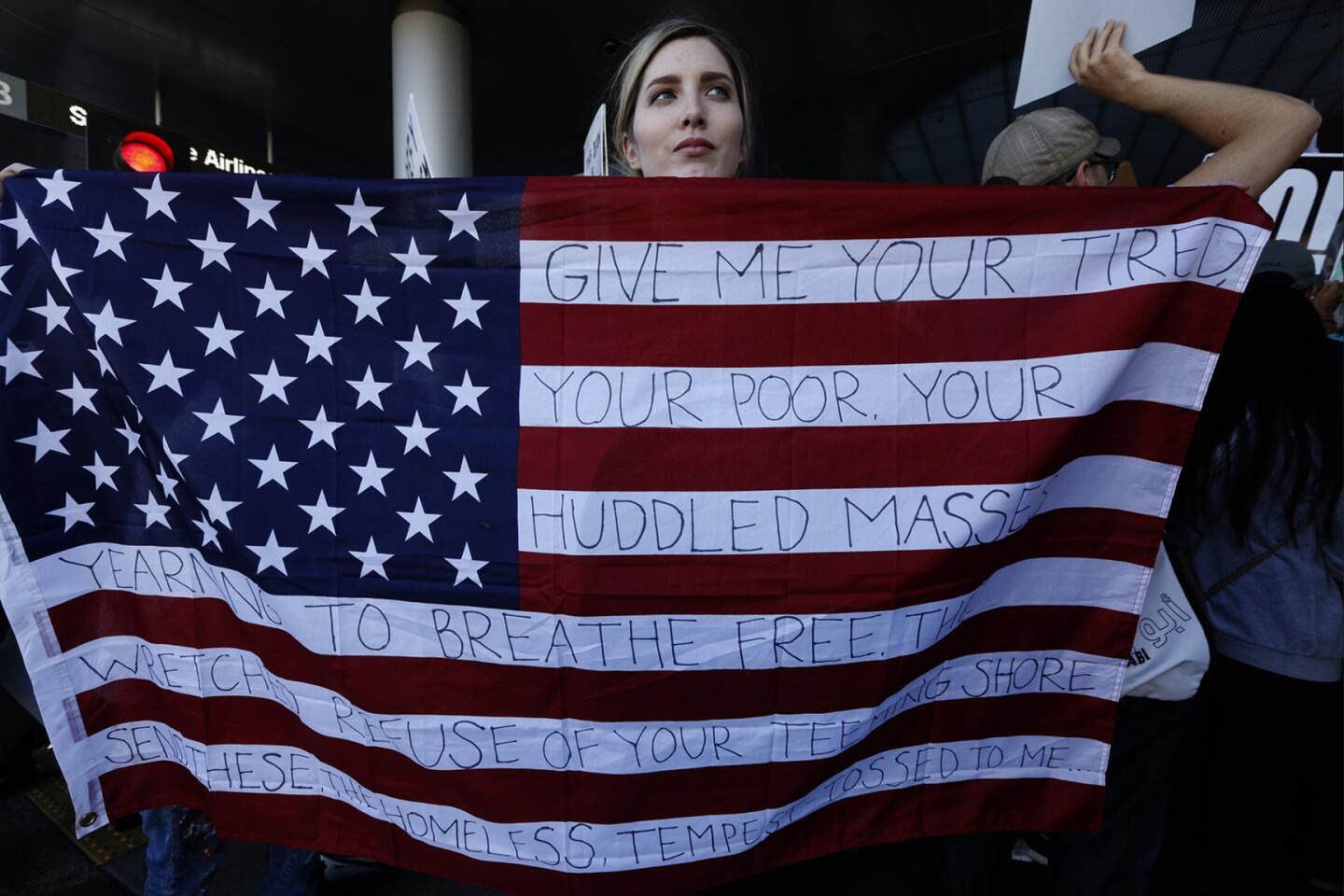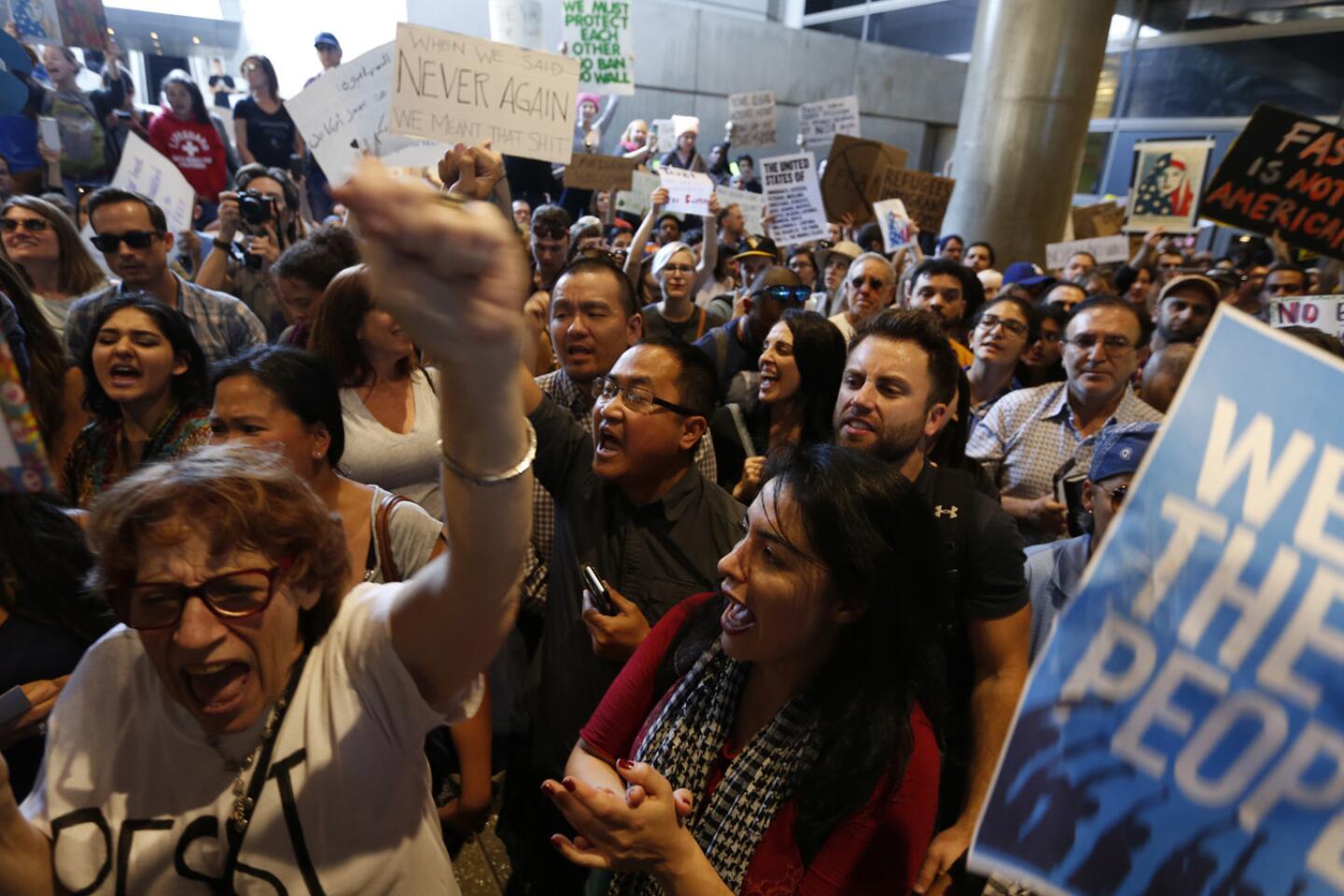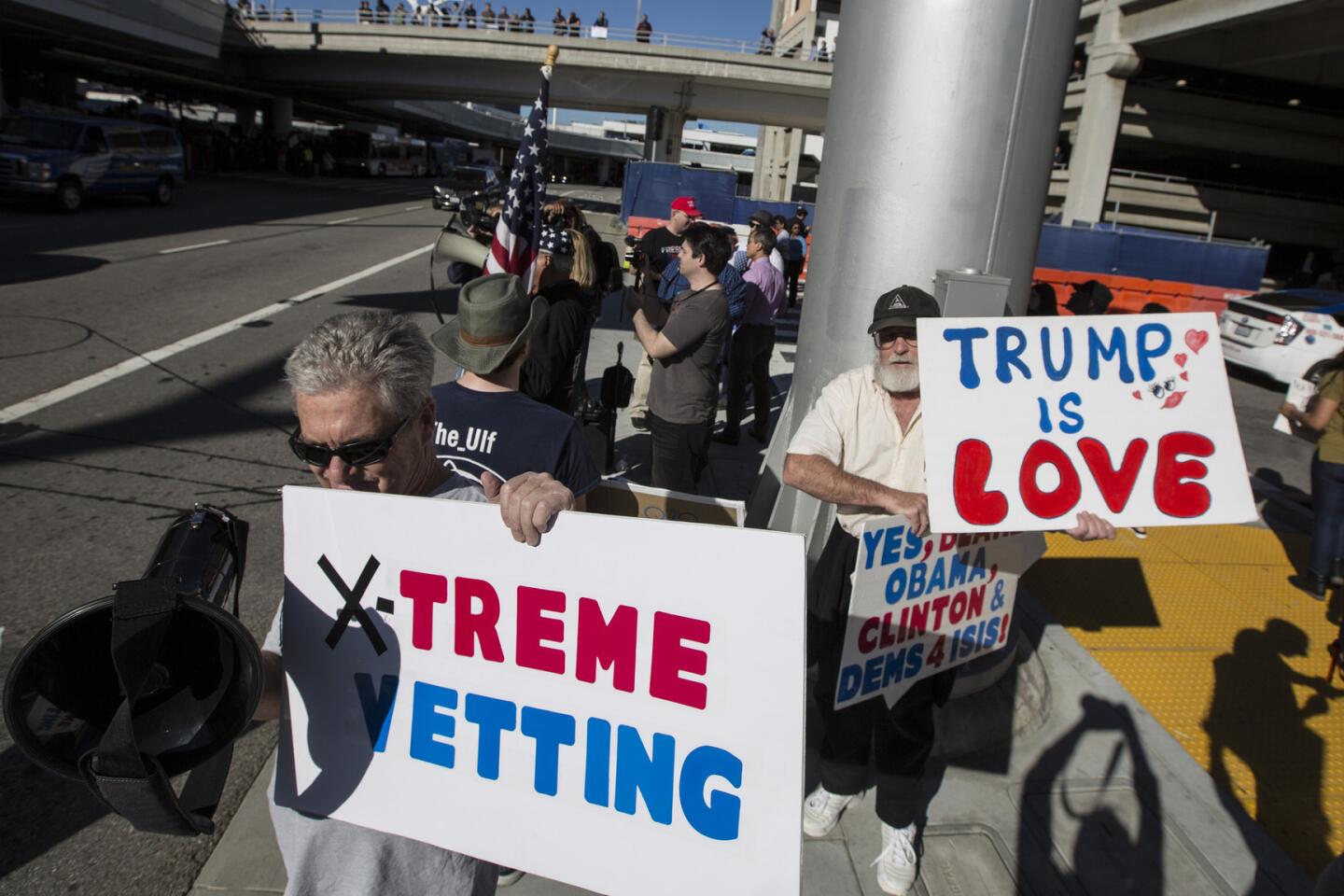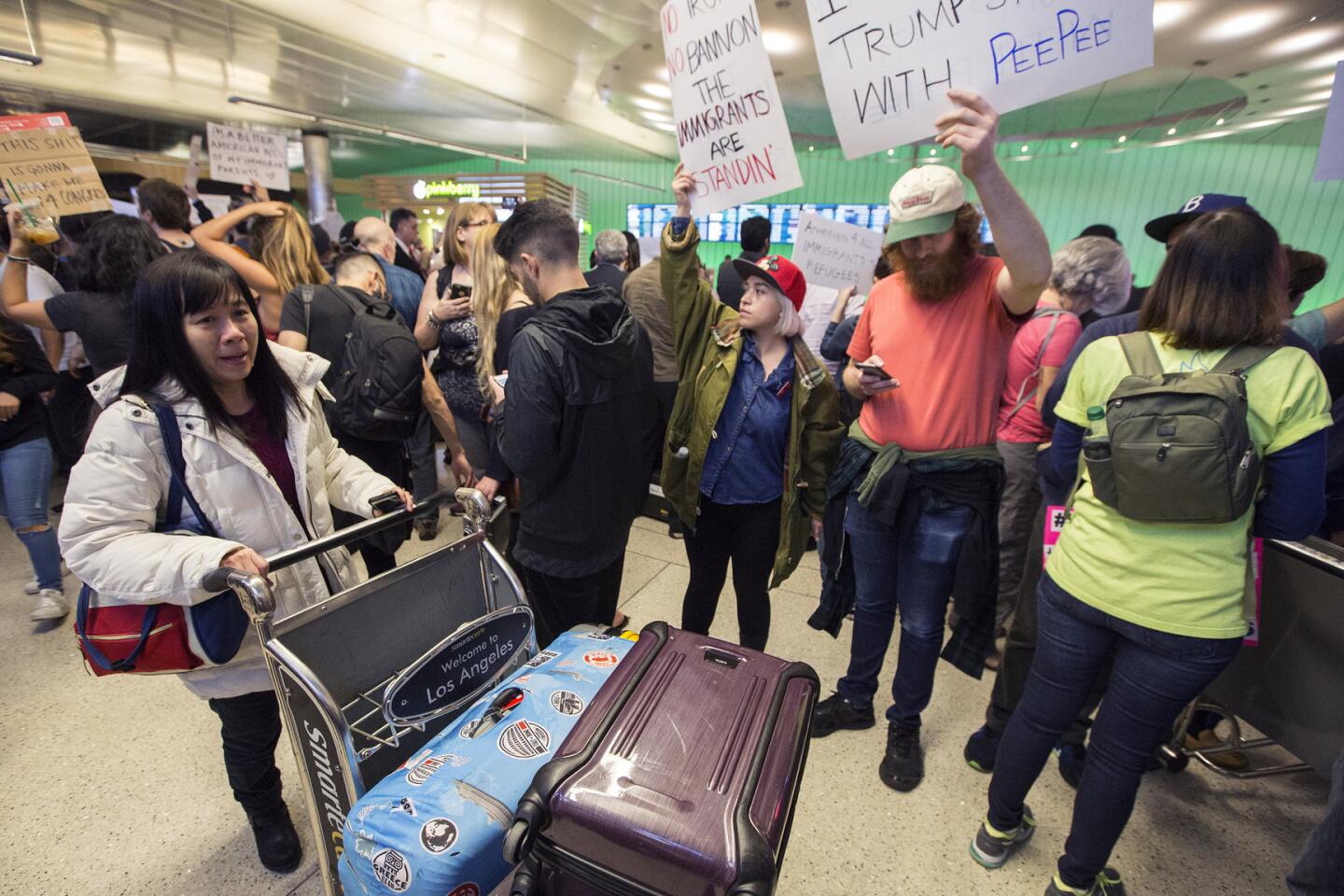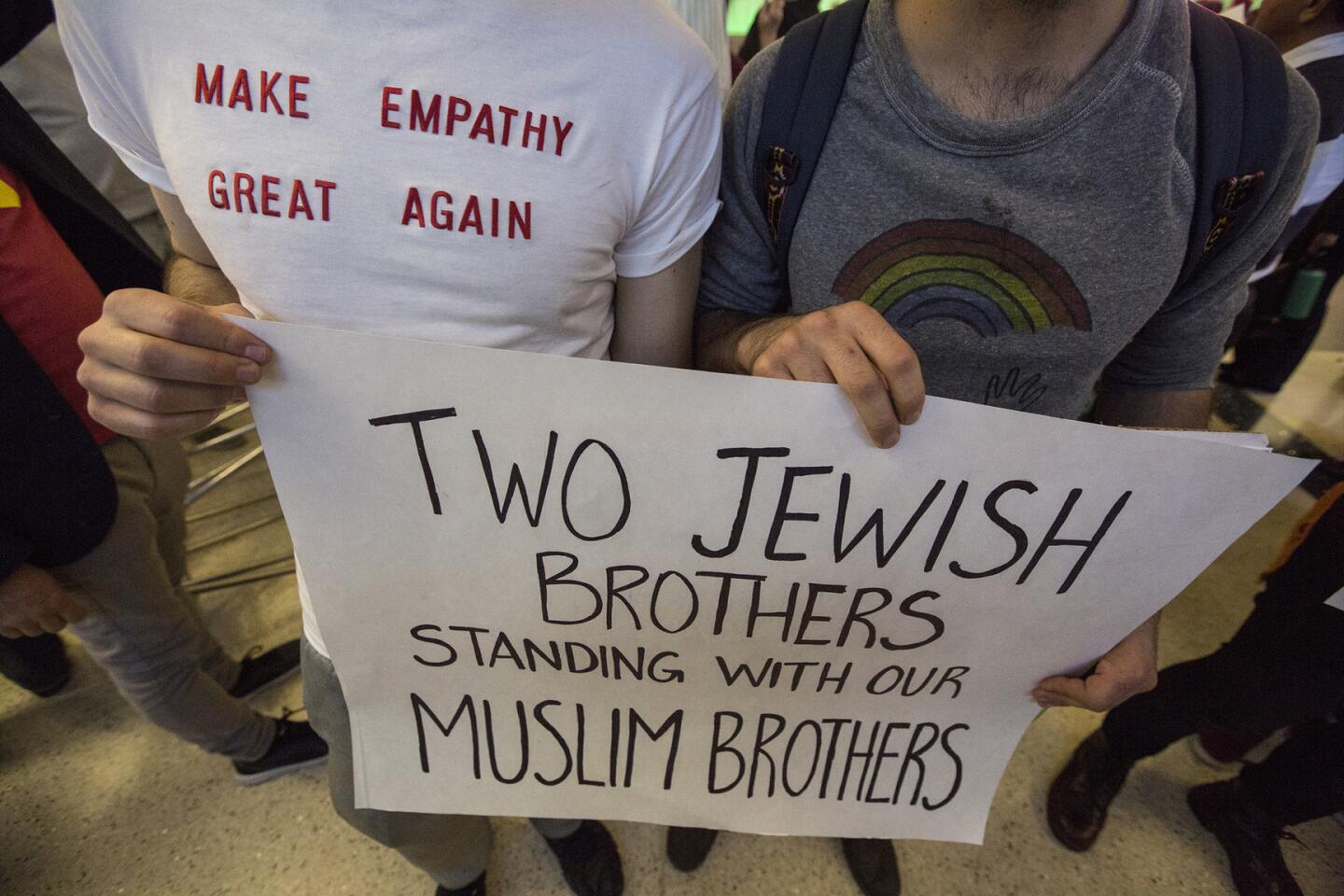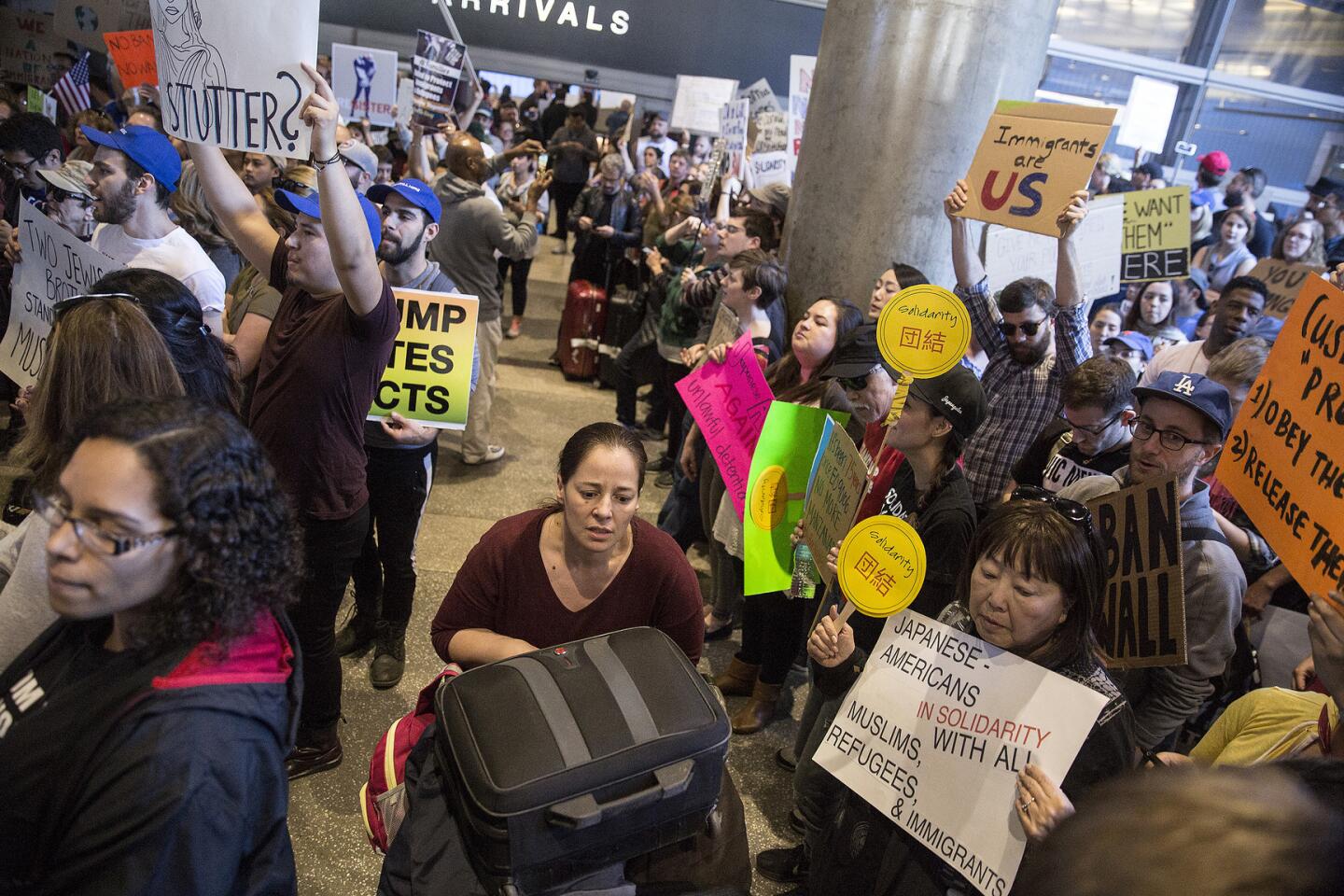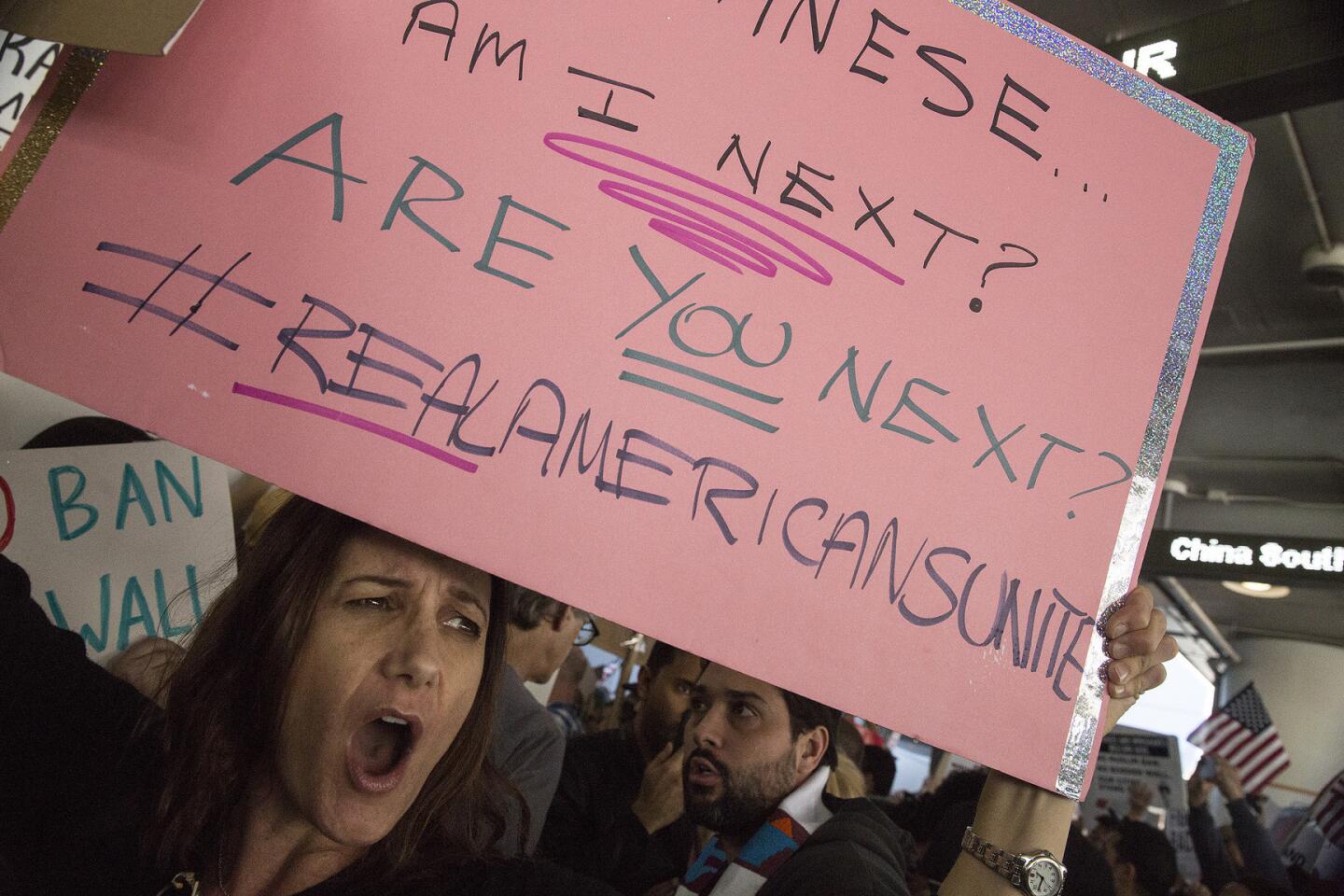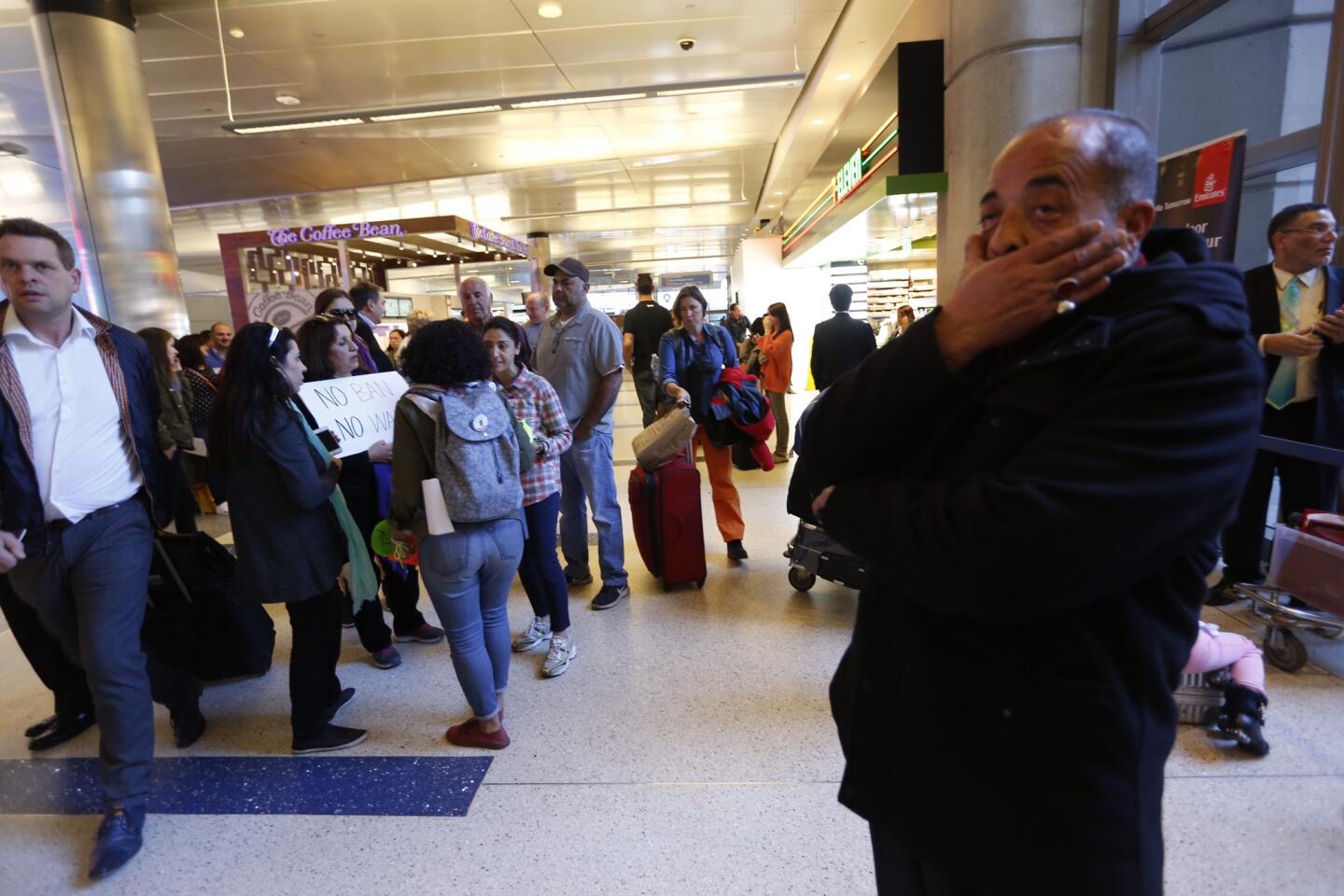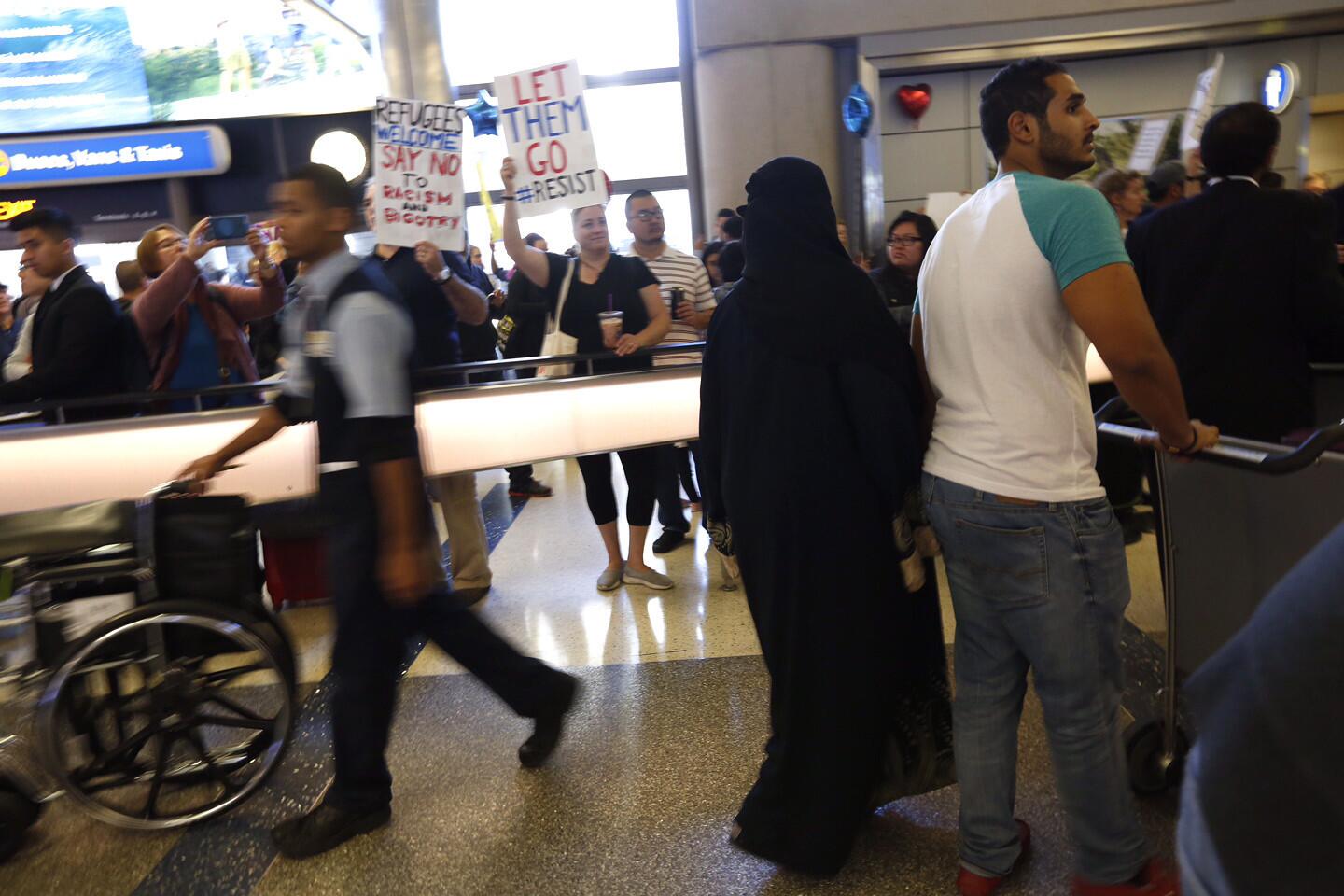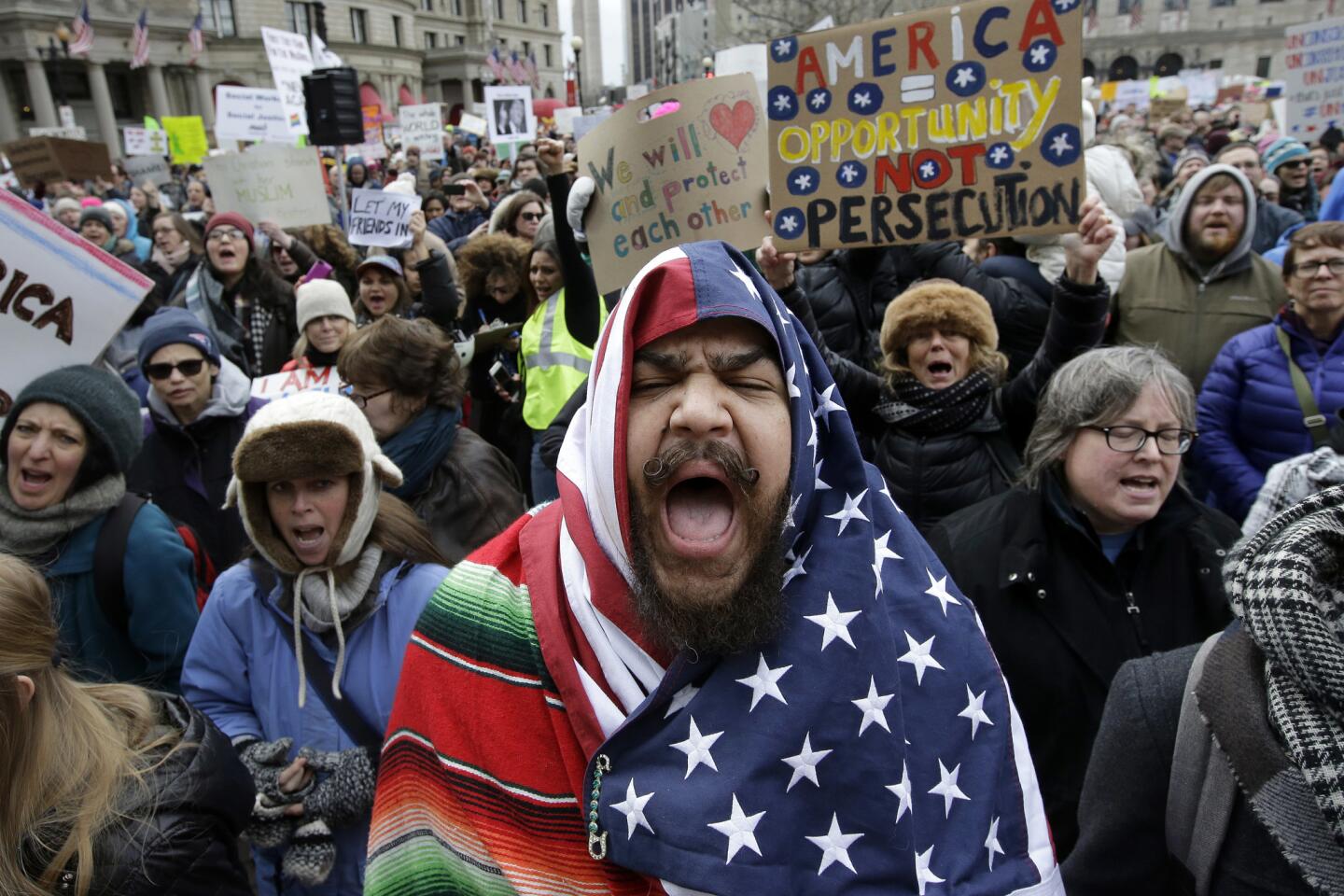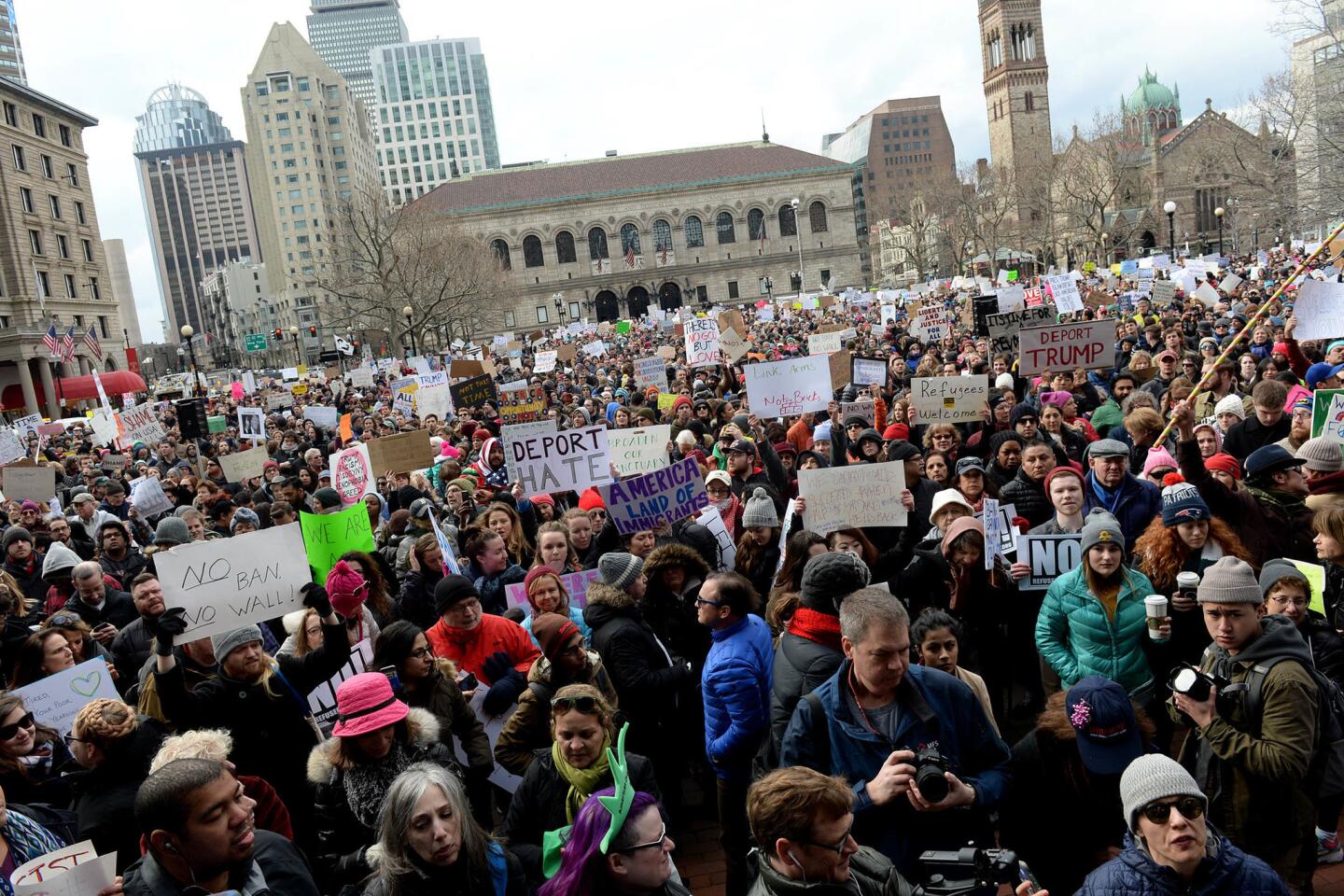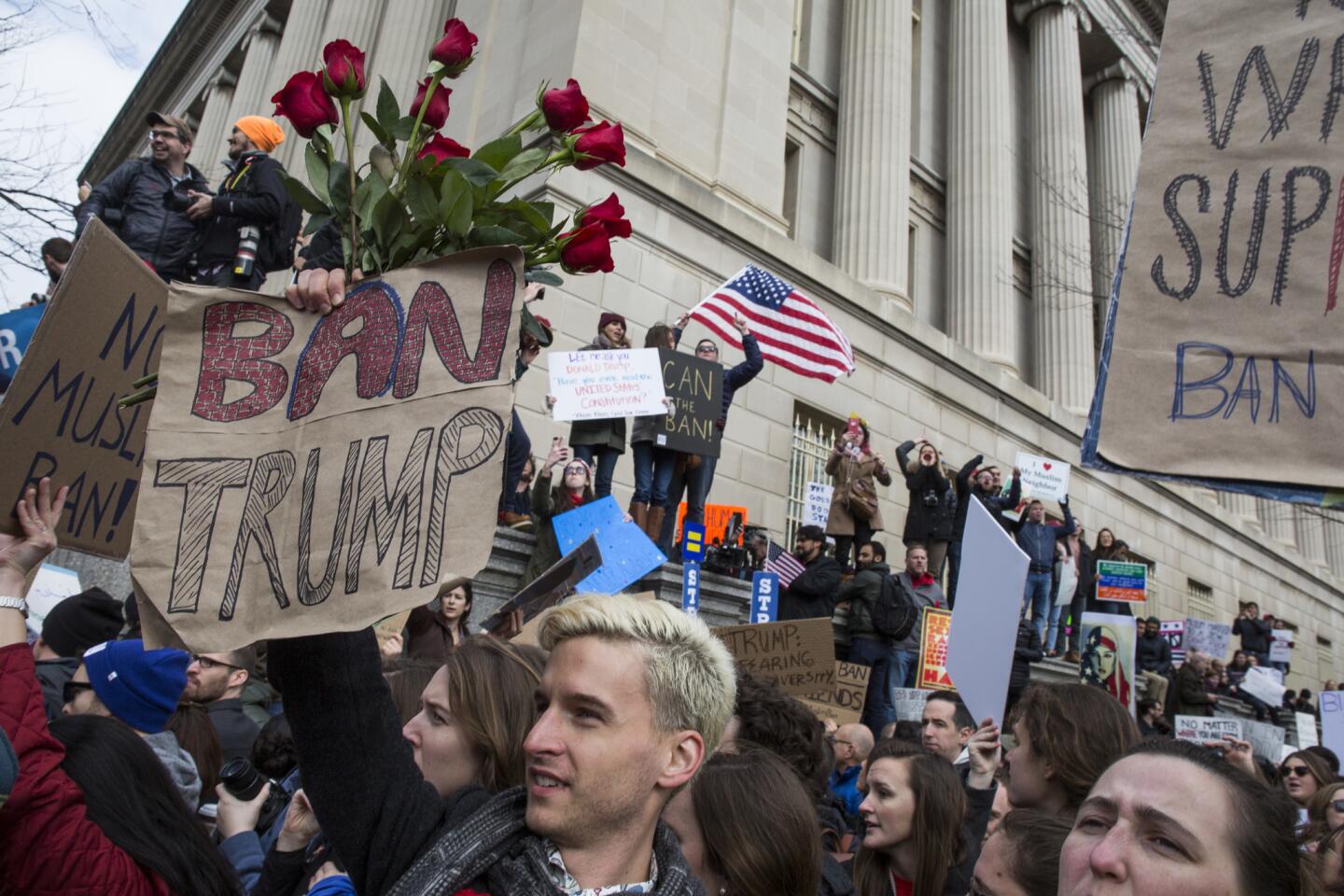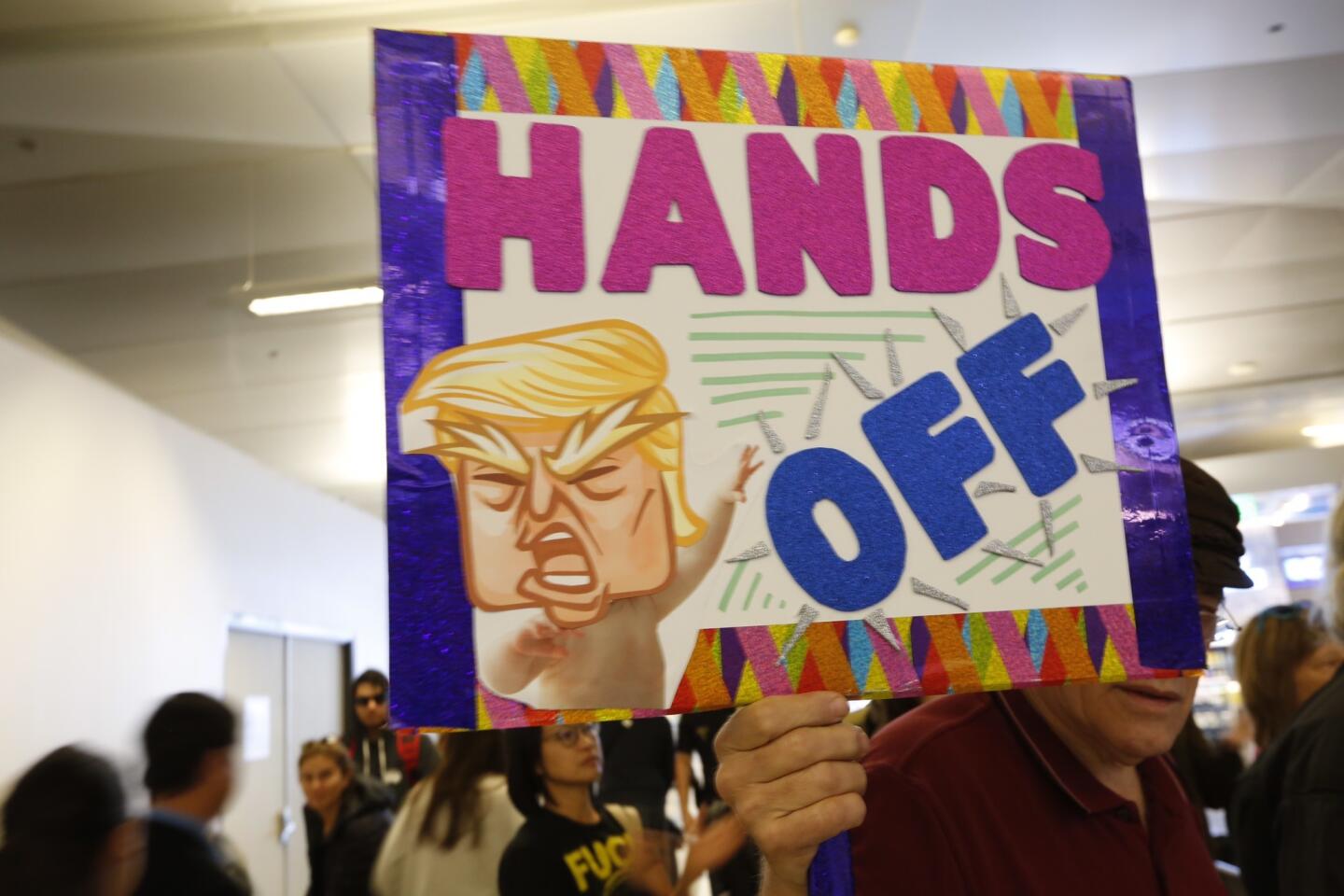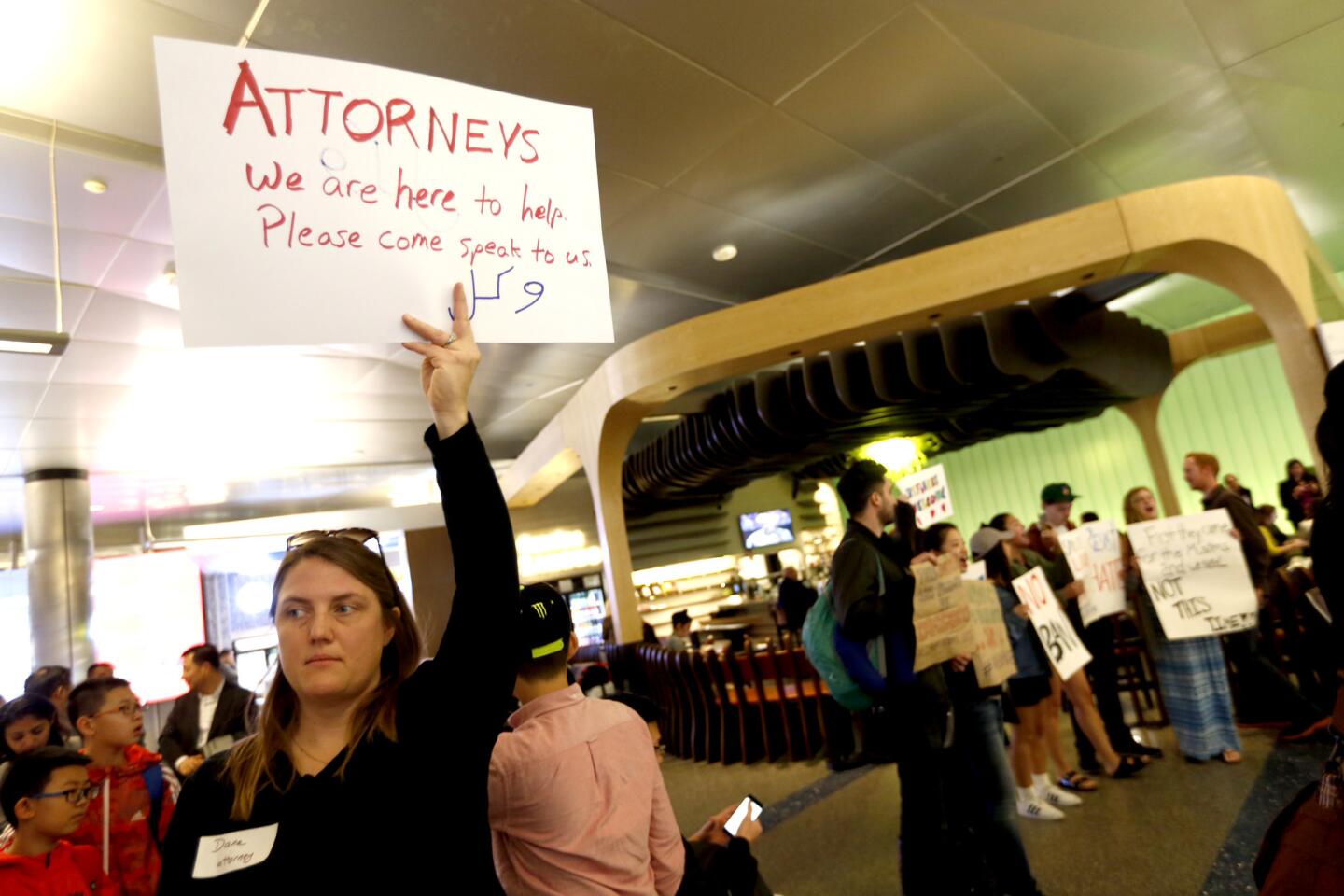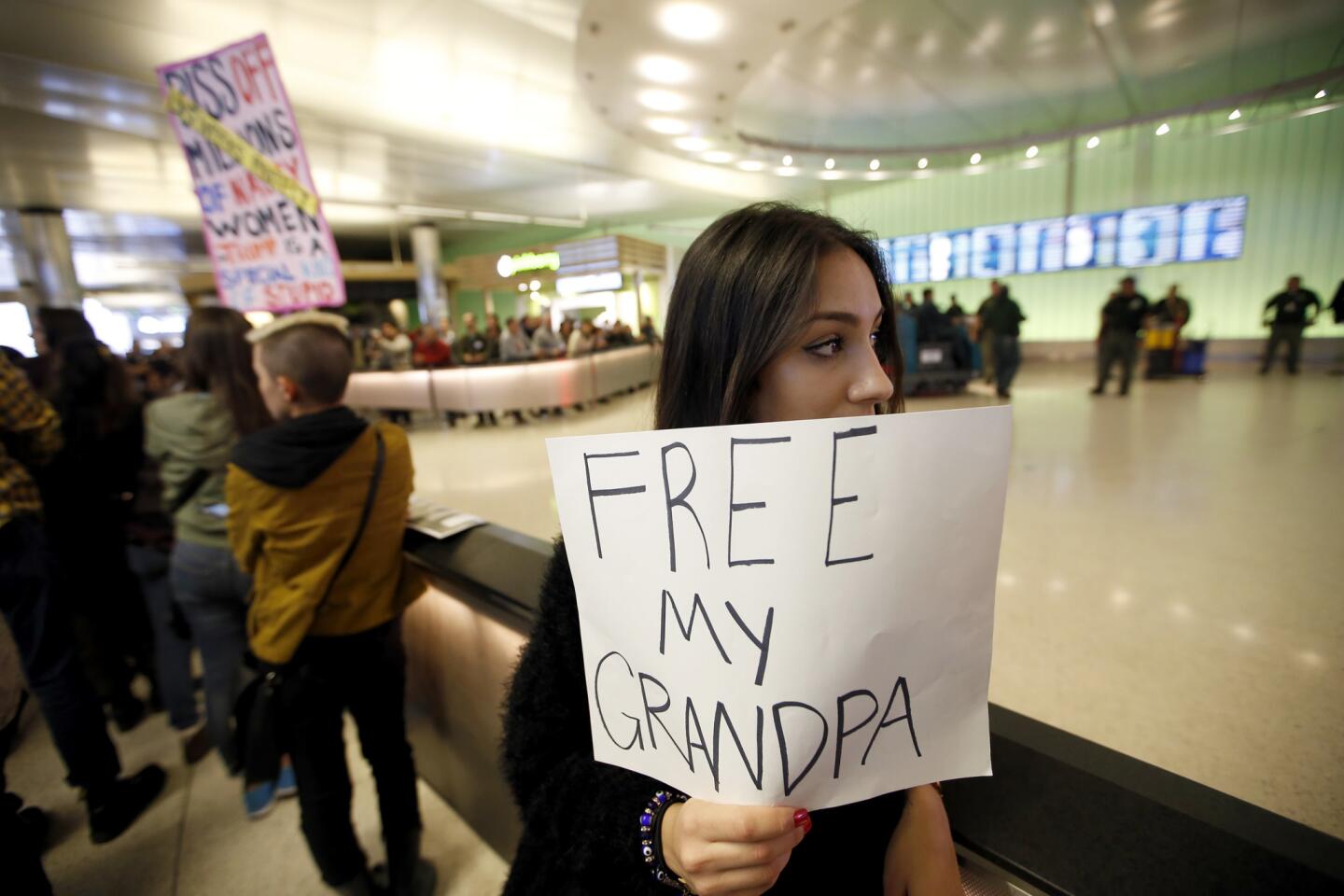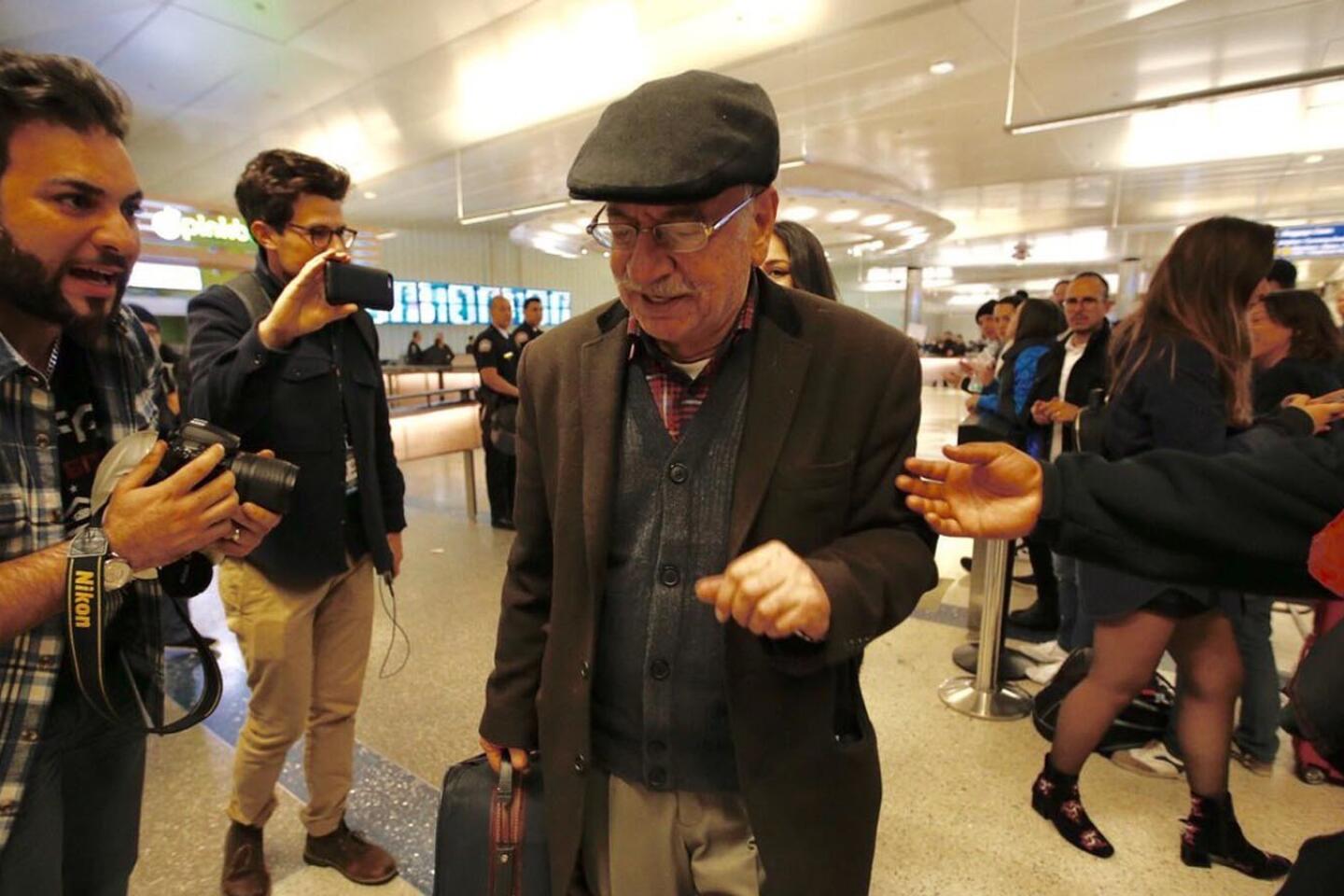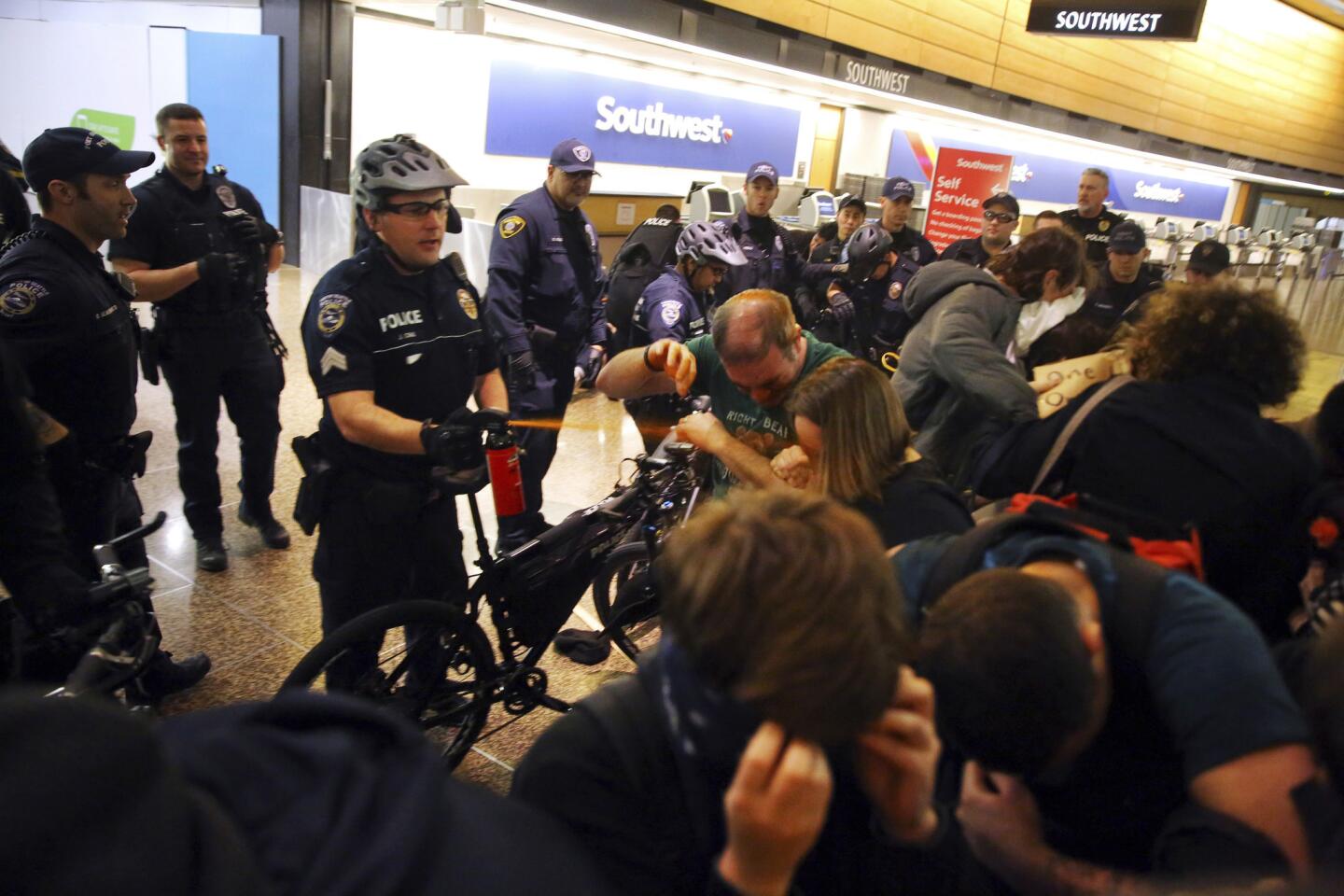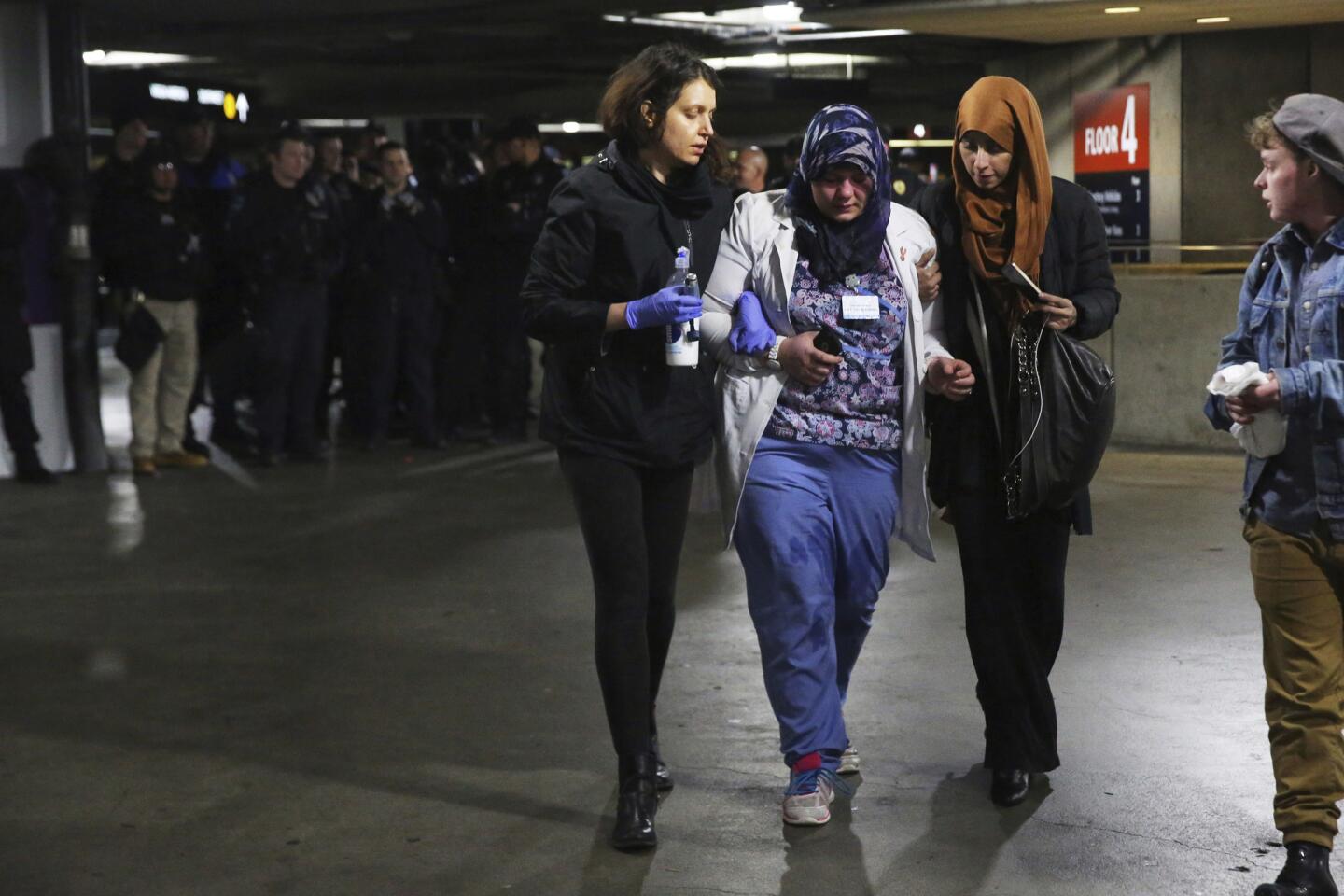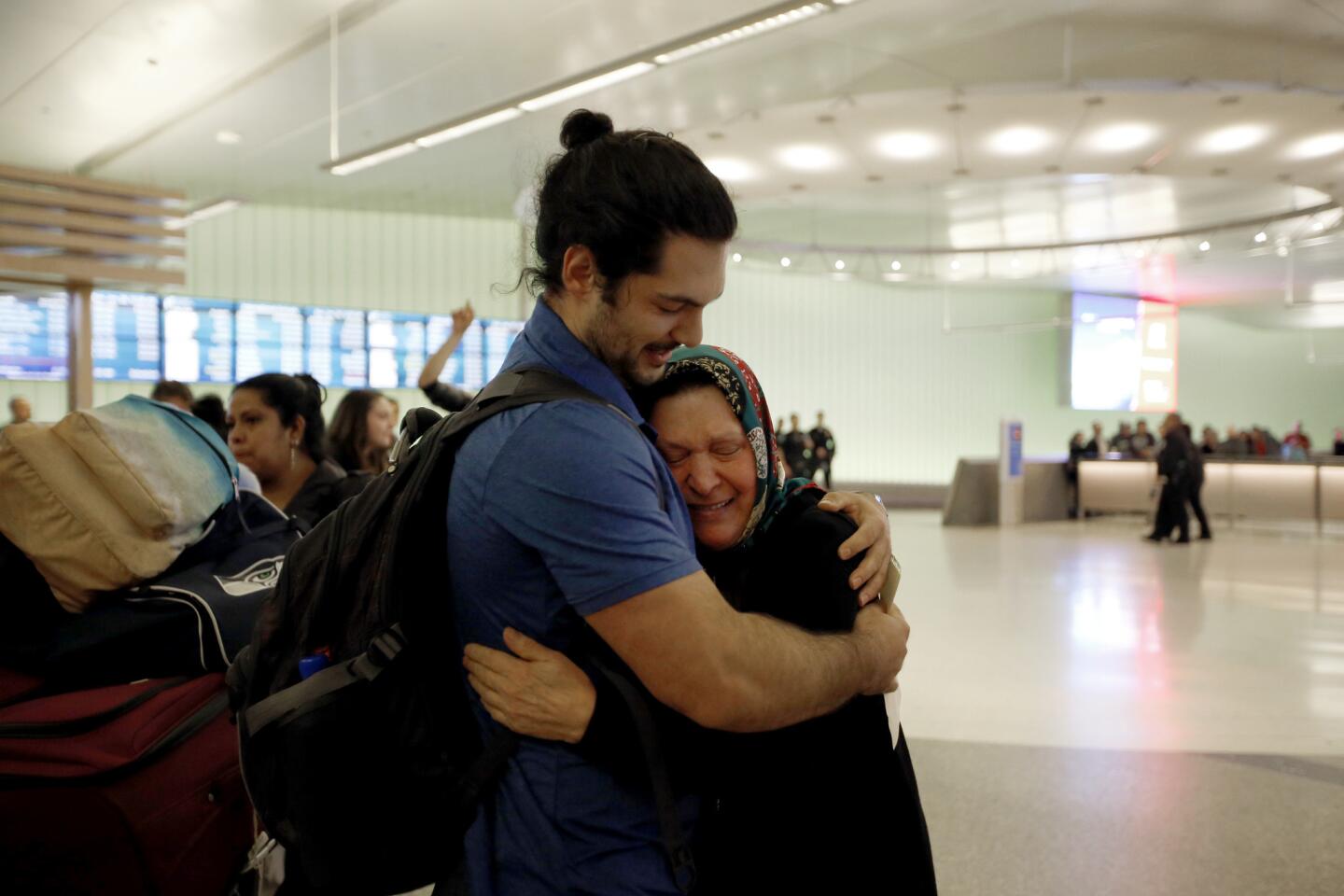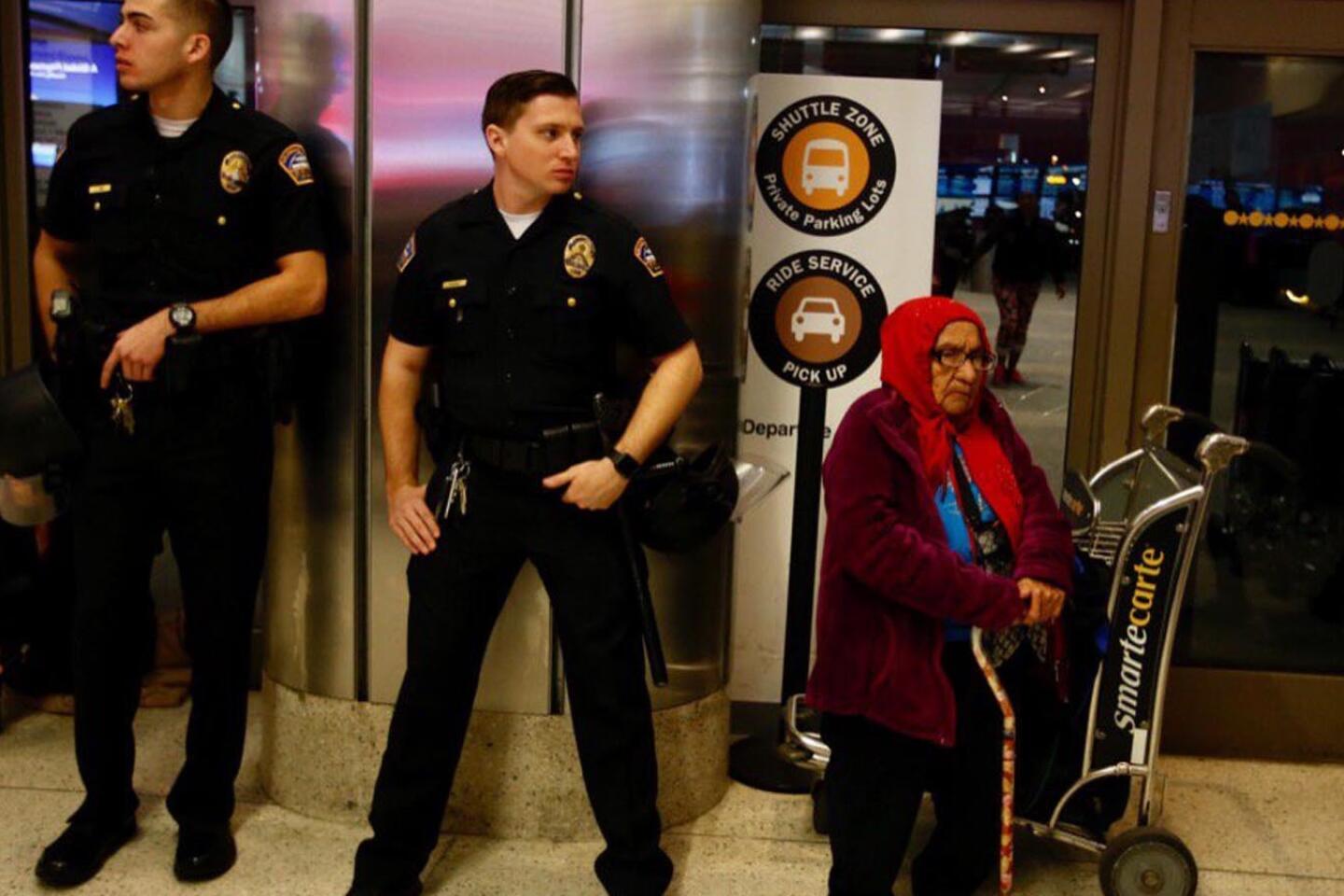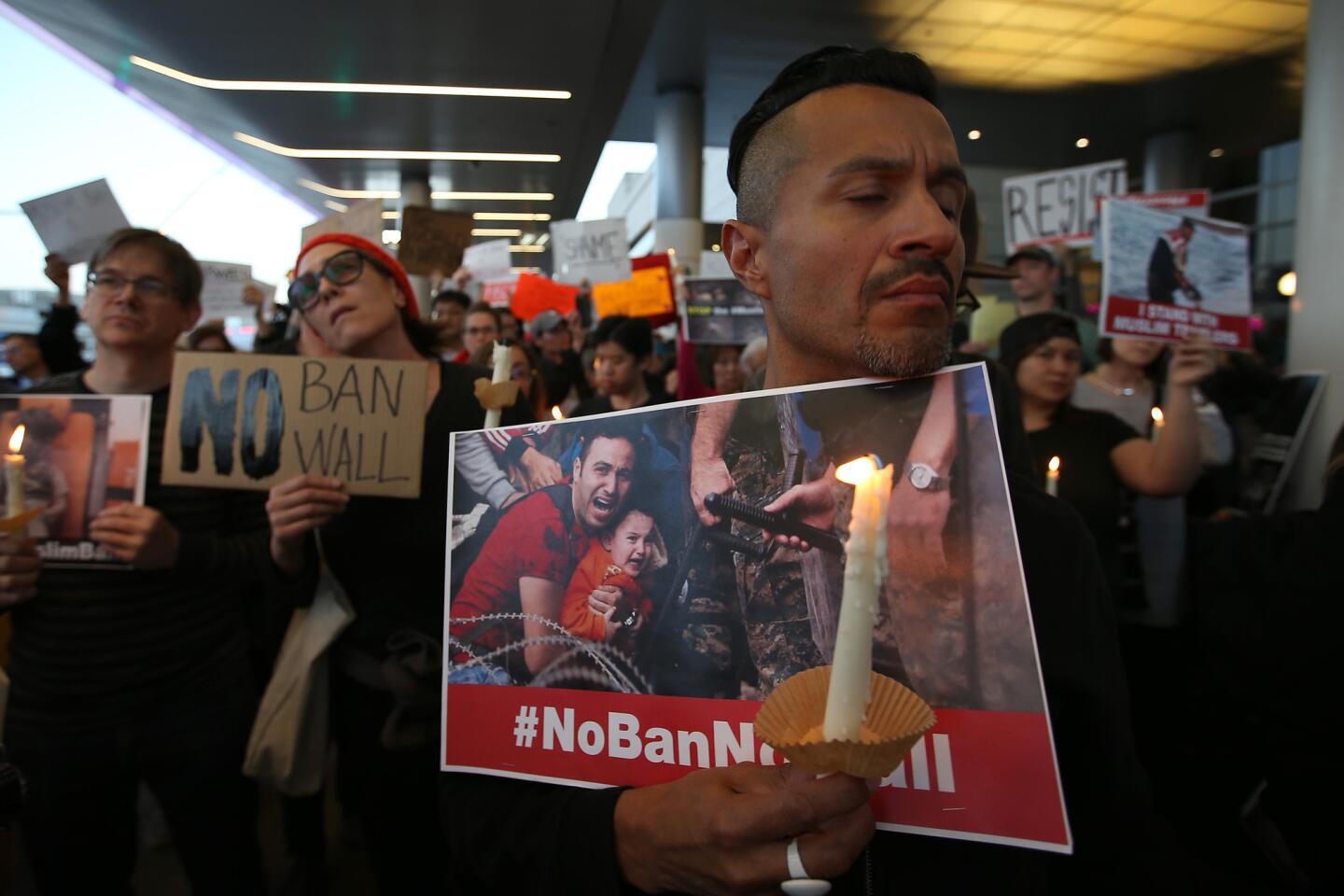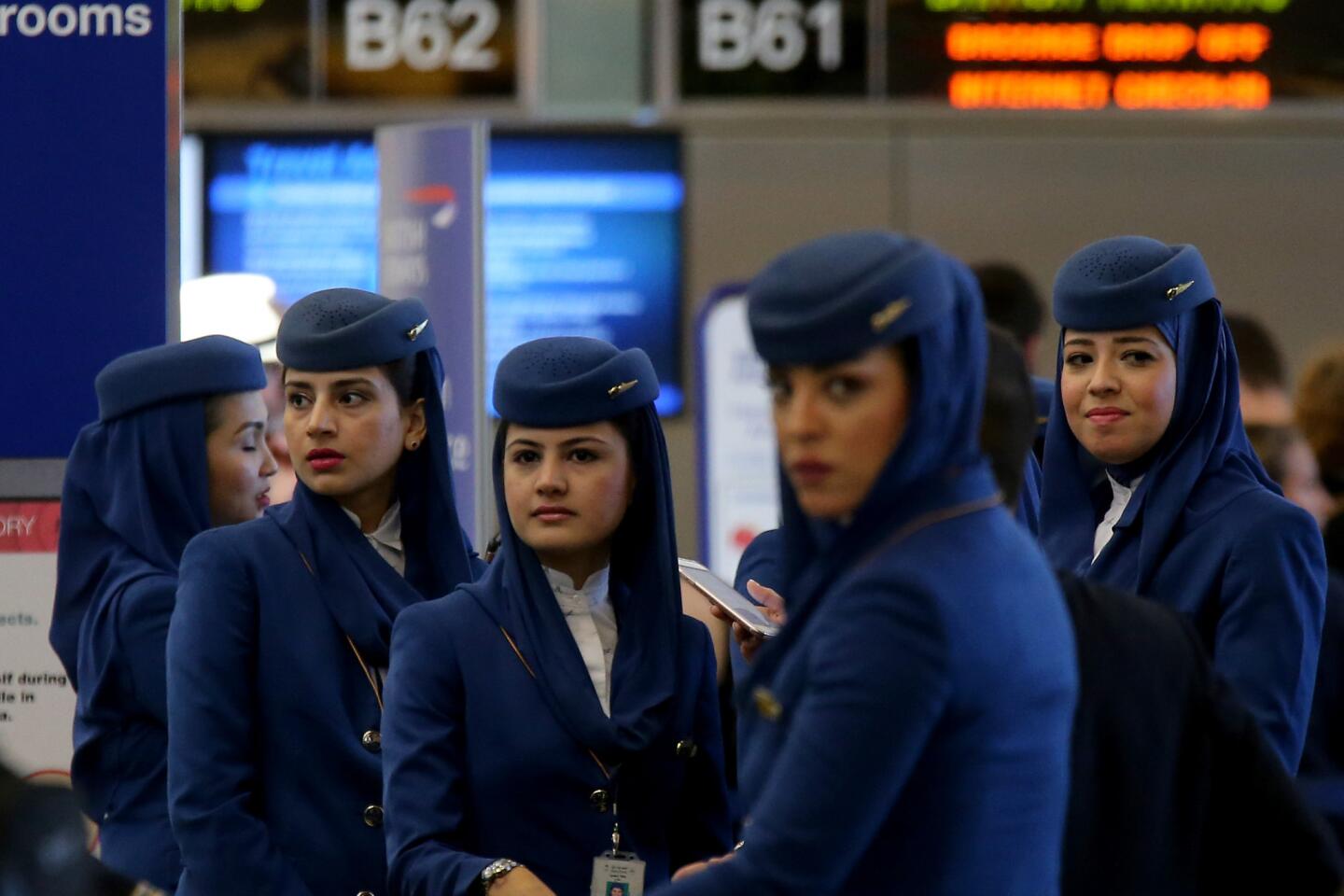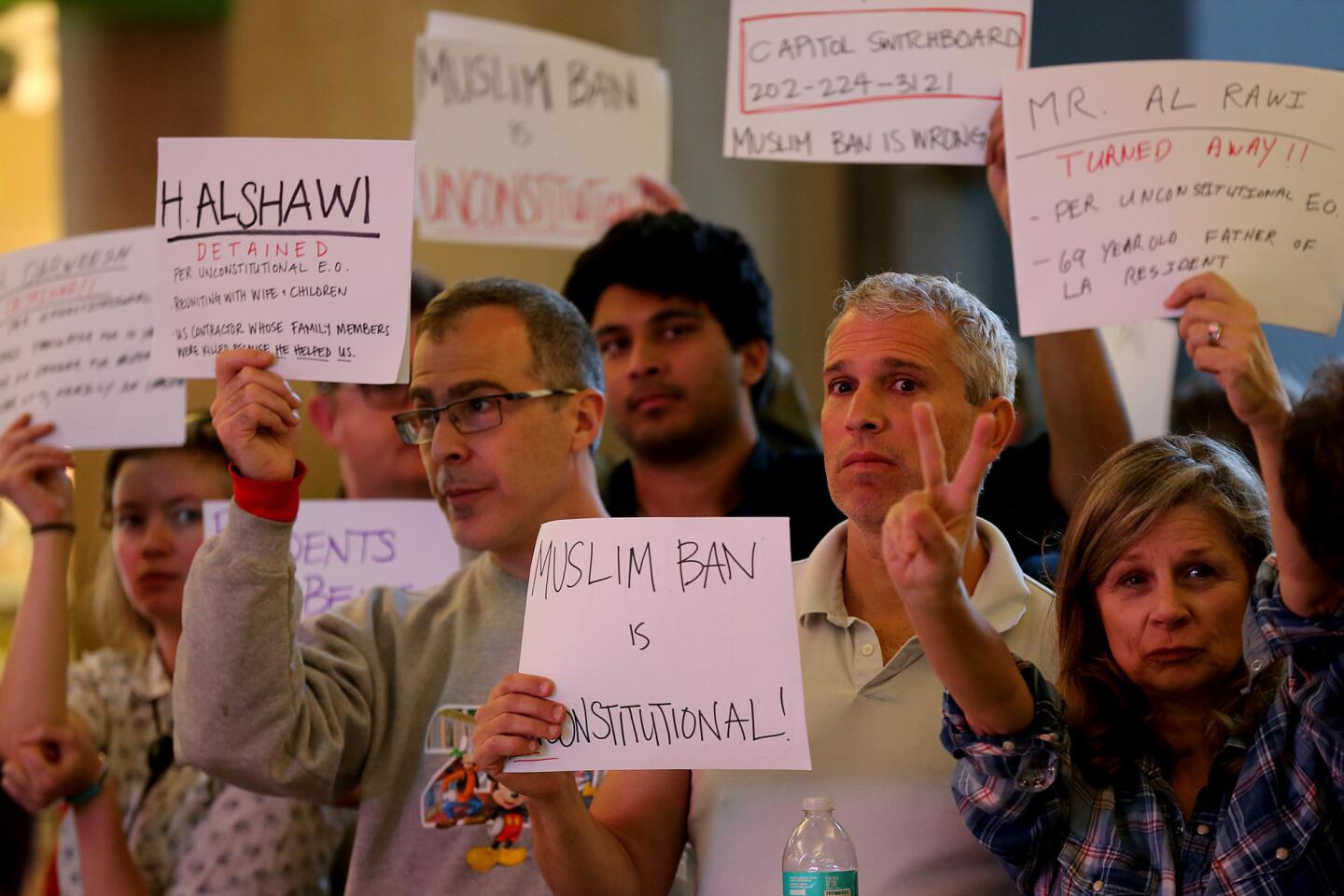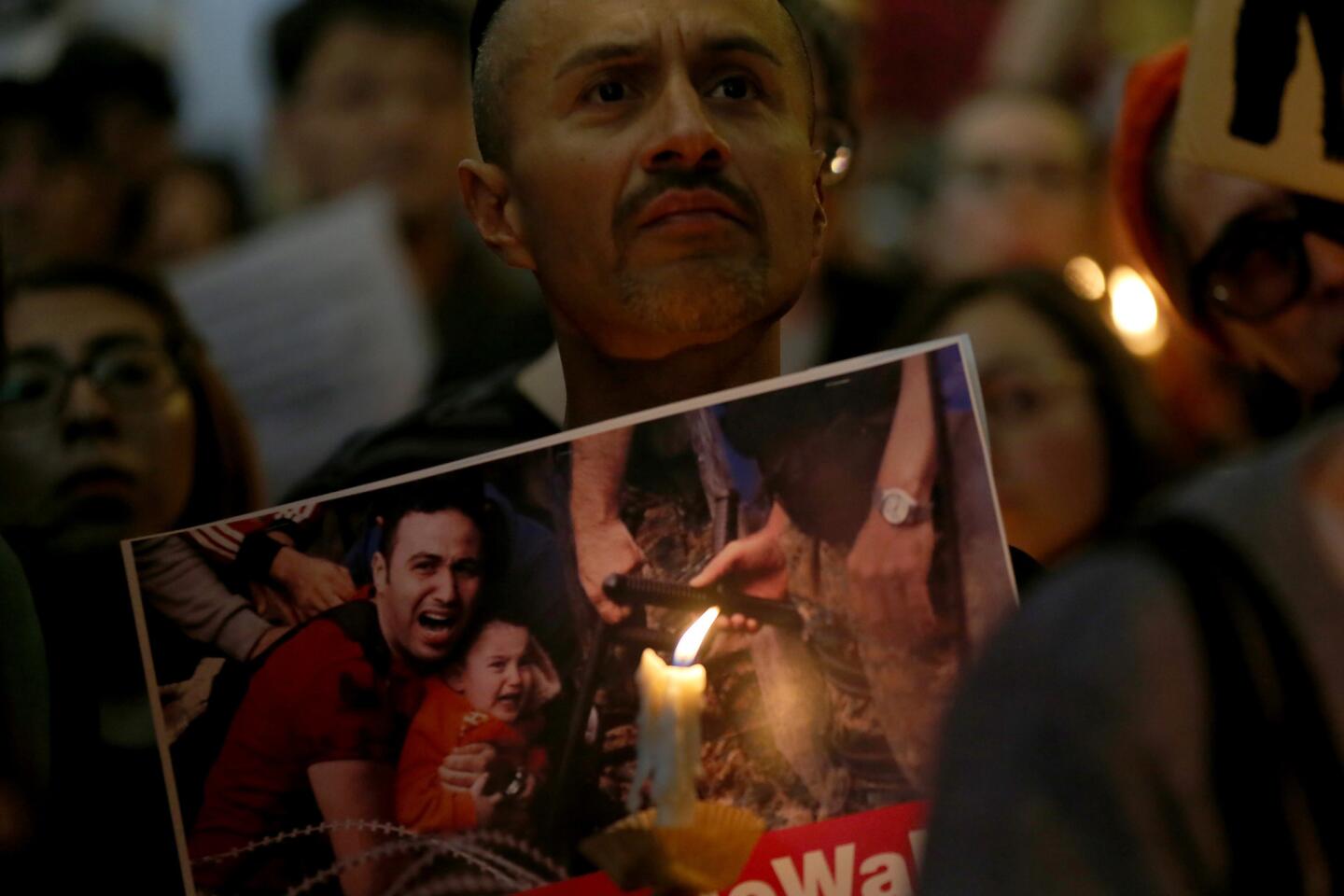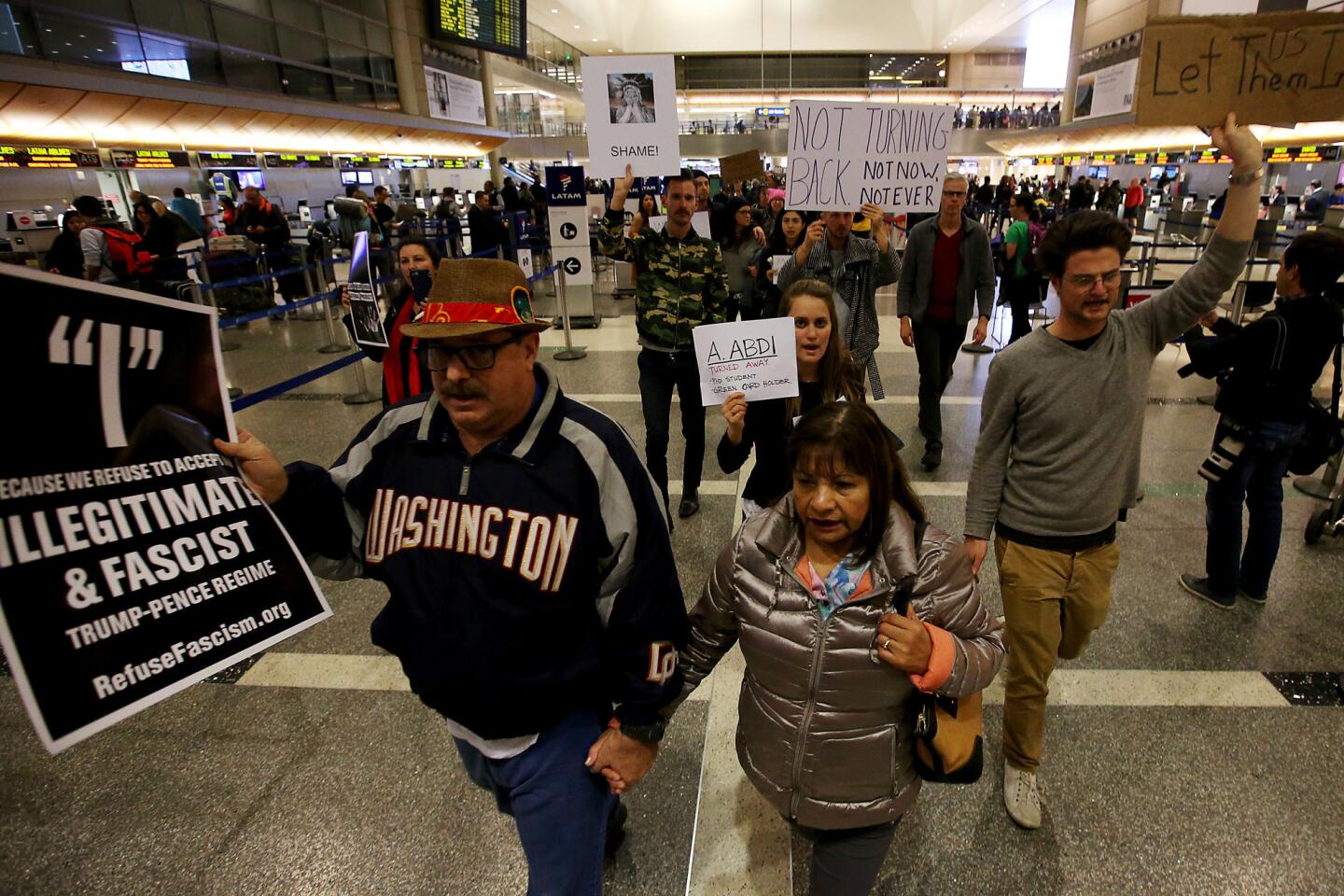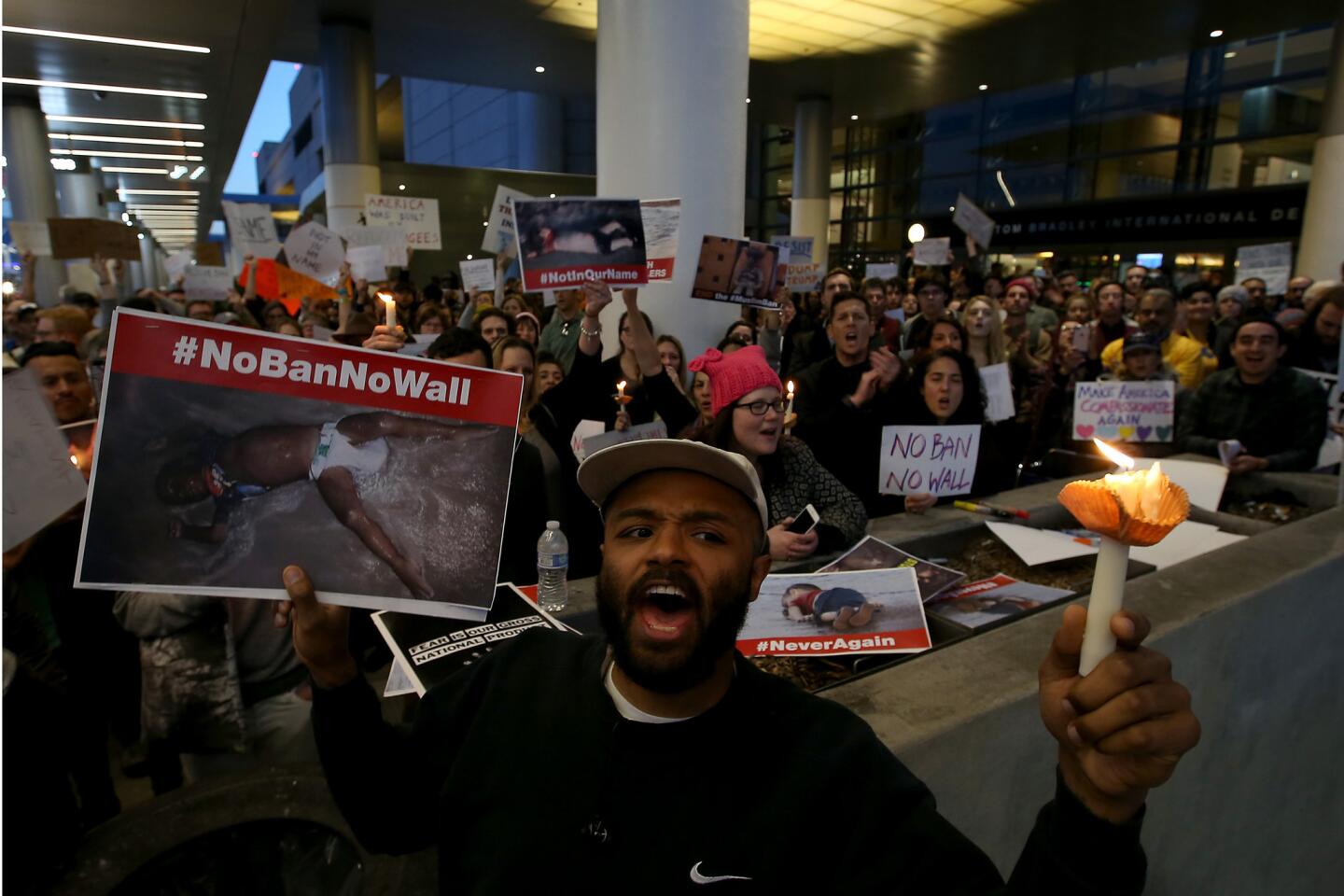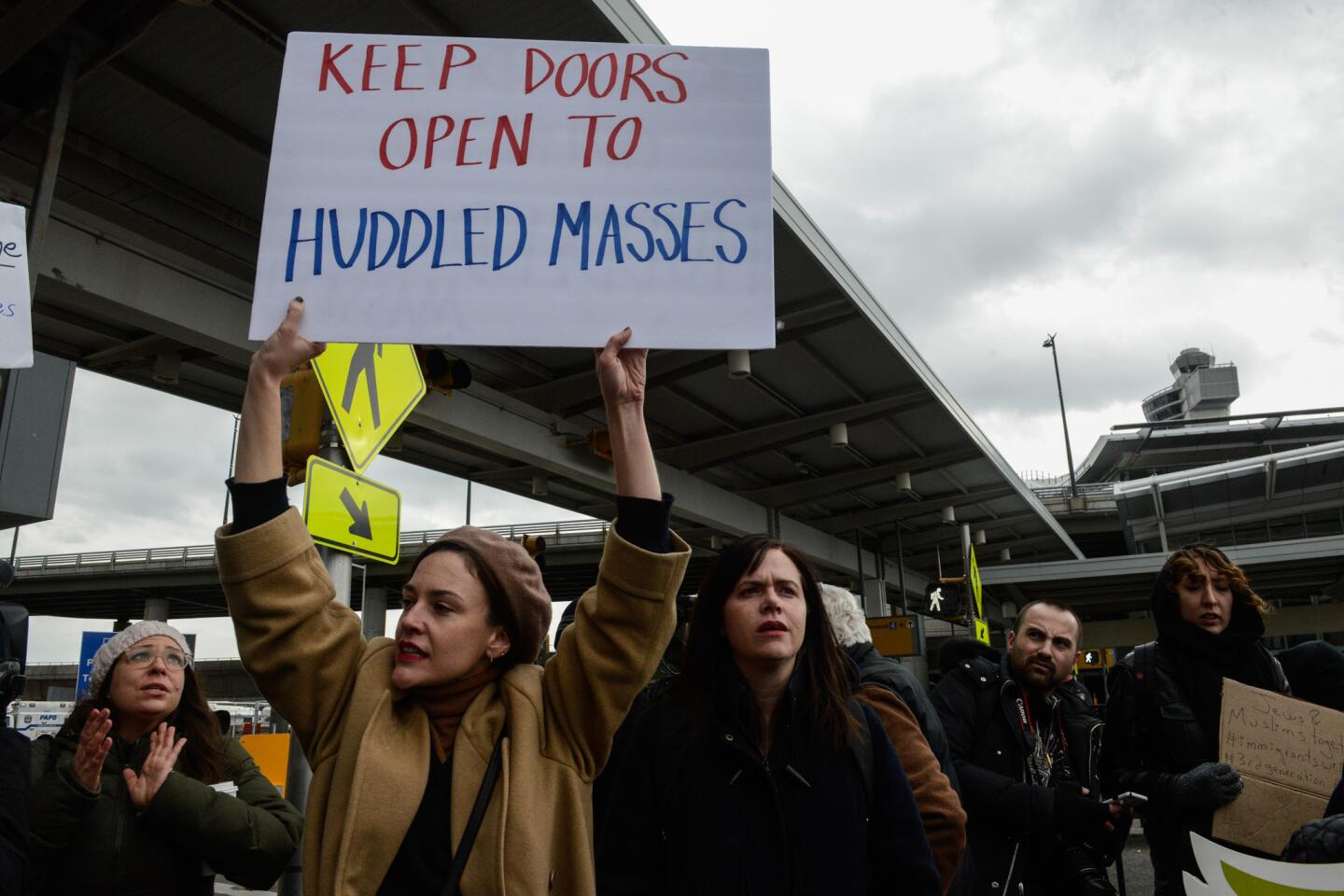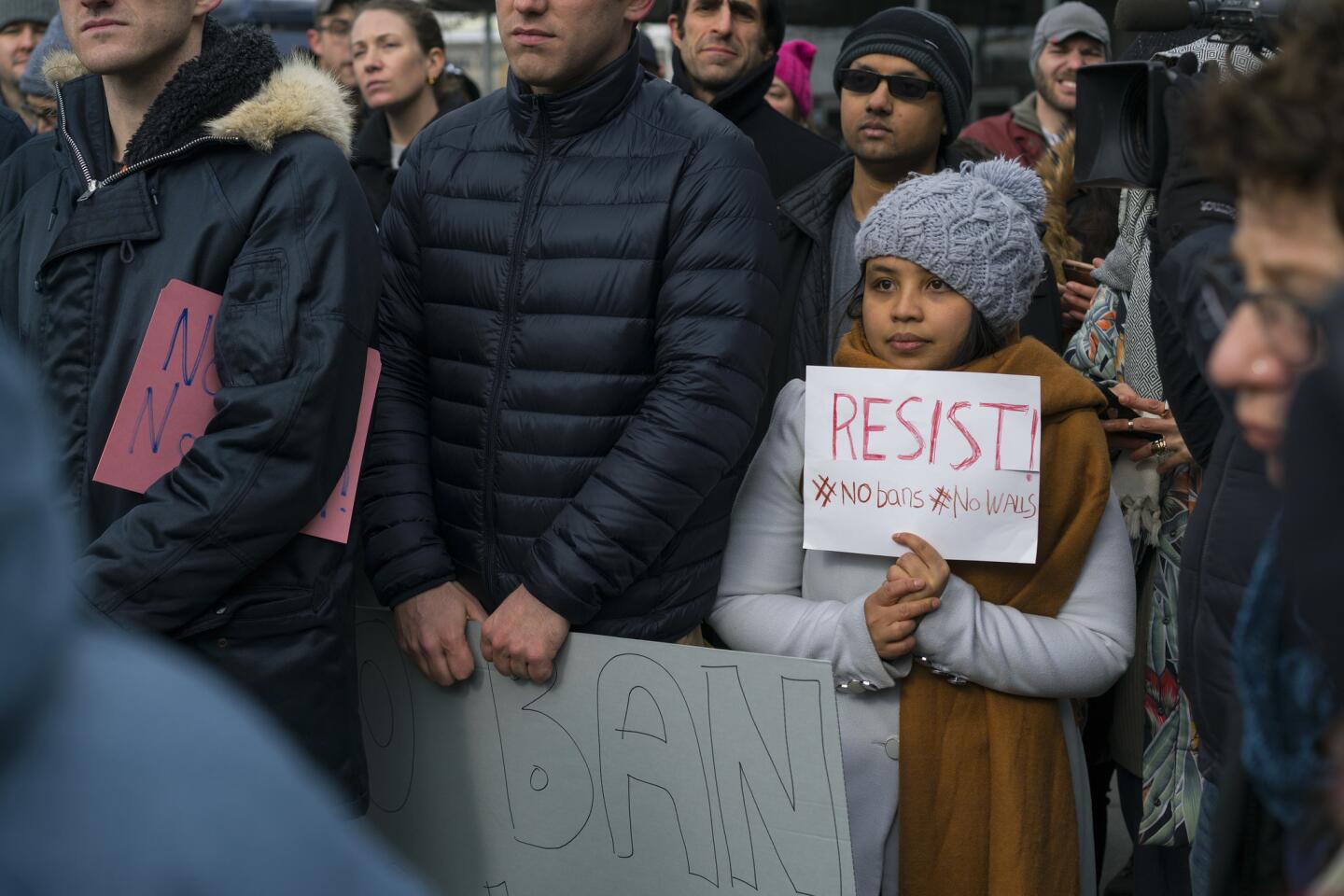Jeffrey Buchalter was reflooring his foyer in Chesapeake Beach, Md., and listening to MSNBC over the weekend when he heard the news: An Iraqi who had worked with American forces as an interpreter had been stopped from entering the U.S. under a new executive order on immigration from President Trump.
The story stopped him cold. Buchalter, an Army veteran who works as a law-enforcement instructor at the Department of Homeland Security, had served multiple tours of duty as a military policeman in Iraq, service that cost him dearly.
He was decorated for injuries sustained from gunfire and improvised explosive devices. Exams revealed he’d suffered herniated discs, traumatic brain injury and post-traumatic stress disorder, and he spent 2 ½ years at Walter Reed Army Medical Center trying to get right.
But he was still alive, and now the married father of two children. And he believes that’s thanks in part to the work of Iraqi interpreters who acted as guides during his work in their country. So he told his younger daughter and son they were going to take a trip: a two-hour drive to Dulles International Airport outside Washington, D.C., where, for the first time in his life, Buchalter would join a protest.
“This is not what we fought for, having been in Iraq and working with these interpreters,” Buchalter said in a phone interview Sunday. When he saw an Iraqi family emerge from detention, he presented them with something he hoped would convey America’s goodwill — a Purple Heart.
“Knowing their culture and how they view America, for me, it was a way to send a message to them: What they believe America was, it is,” Buchalter said. “It’s the greatest place in the world.”
Trump’s executive order Friday to block travelers from seven Muslim-majority nations triggered confusion, fear and anger around the nation as protesters and attorneys gathered at airports to try to force the release of at least dozens of travelers who had unexpectedly become detainees. Many of America’s veterans were among those frustrated by the order, inspired largely by the story of Iraqi interpreter Hameed Khalid Darweesh.
Darweesh, 53, was detained after arriving at John F. Kennedy International Airport in New York, despite holding a special immigrant visa granted to American military translators following a decade of what one U.S. official had deemed “faithful and valuable service to the United States” in Iraq, according to the American Civil Liberties Union.
Darweesh had worked for the U.S. as an interpreter, engineer and contractor from 2003 to 2013, continuing even as Iraqi colleagues were assassinated for their work supporting the American invasion. Now he wanted to immigrate to the U.S. It had taken Darweesh two years of interviews and security screenings to obtain the visa, but, for the moment, all that appeared to be suddenly worthless.
Veterans were infuriated by his story. “The idea that we would be detaining Iraqi interpreters who put their lives on the line to help troops like myself in Iraq is disgraceful,” wrote veteran Jon Soltz, chairman of an Iraq veterans’ political action committee, VoteVets. The group launched a petition calling on Trump to rescind the visa restrictions and to provide aid for U.S. military interpreters.
Those frustrated by Darweesh’s treatment included one of his former American colleagues in the 101st Airborne division, Brandon Friedman, who had met Darweesh as an infantry lieutenant when the division swept into Baghdad to drive out the forces of Iraqi autocrat Saddam Hussein.
“He was anti-Saddam and wanted to help us,” said Friedman, who would go on to work in the Obama administration, recalling how Darweesh accompanied platoons on dangerous missions. “The guy was absolutely fearless. Guys in our company would go out in all the body armor and everything, and he would go out in khakis and a baseball cap, at least in the beginning.”
Not only was Darweesh’s work essential for soldiers to navigate Iraqi communities, but when a car bomb detonated near the unit’s base, “He was wounded himself, and he pulled wounded soldiers to safety,” Friedman said. And now veterans who knew Darweesh were upset.
“If you could see all the Facebook posts from guys in the unit this week, everybody loved him. He was just such an integral part of the unit,” Friedman said. Many veterans were “absolutely” opposed to Trump’s blanket exclusion of military interpreters, “because if you’ve been over there, you know their importance,” said Friedman. He called the ban “deplorable” and said it gives interpreters less incentive to help U.S. troops in the future.
As public scrutiny grew Saturday, protesters and immigration attorneys massed at airports around the nation, and the American Civil Liberties Union filed a federal lawsuit against the Trump administration on Darweesh’s behalf.
Darweesh was freed earlier in the day, and his ACLU lawsuit later led to a late-night ruling from a federal judge in New York, who temporarily barred American officials from deporting arriving travelers who otherwise had legal travel documents.
But the executive order still makes life uncertain for other Muslims abroad who had assisted the American military and whose hopes for entry to the U.S. have dimmed.
Chase Millsap, a former Marine infantry officer who served multiple tours in Iraq, has been trying to help a former Iraqi soldier he served with to gain asylum in the U.S.
The Iraqi man, whose name Millsap asked be withheld for his safety, fled with his family to southern Turkey in 2014, after Islamic State militants reached the outskirts of Baghdad and began hunting for the soldier’s Shiite family, Millsap said.
The soldier, whom Millsap nicknamed “the Captain,” applied for refugee status through U.S. Citizenship and Immigration Services but has been waiting for a decision for nearly three years.
“This ban sets the clock back even further — at least 120 days, and after that who knows if they’re going to pick it back up,” said Millsap, now a writer and filmmaker in Los Angeles.
On Friday, after Trump signed the order, Millsap called his friend in Turkey and broke the news. The Iraqi man, who has a wife and two children, and also supports his sister and her three kids, had been taking English classes in anticipation of being allowed to immigrate to the U.S.
“For me, it was a punch to the gut,” Millsap said. “I had to tell him we’ve left him behind and we’re not going to step up and do the right thing, at least right now. “For him, it was really sad. I could tell the frustration in his voice.”
Millsap said he had been heartened by the ad hoc coalition of lawyers, human rights advocates and veterans from all branches of the military that was speaking up on behalf of Iraqis and others affected by Trump’s ban.
“This is very apolitical,” Millsap said. “These are people who served directly alongside of us. For us, it’s very simple to say we need to help them. A lot of these guys are directly under threat and going underground. Let’s make sure they have a path to safety.”
1/62
Supporters of President Trump rally in favor of his immigration ban executive order Saturday at Tom Bradley International Terminal at LAX.
(Luis Sinco / Los Angeles Times) 2/62
Protesters rallying against the first travel ban signed by President Trump march around Los Angeles International Airport in February. (Luis Sinco / Los Angeles Times)
3/62
Trump supporters gather at Tom Bradley International Terminal at LAX.
(Luis Sinco / Los Angeles Times) 4/62
Muhaned El Hindi protests the immigration ban Saturday during a rally at Tom Bradley International Terminal at LAX.
(Luis Sinco / Los Angeles Times) 5/62
Mathew Woods, a supporter of President Trump, voices support for an immigration ban during a rally at Tom Bradley International Terminal at LAX.
(Luis Sinco / Los Angeles Times) 6/62
Passengers stand in the doorway of a baggage claim area to take pictures and video of marchers protesting the immigration ban of President Trump at LAX on Saturday.
(Luis Sinco / Los Angeles Times) 7/62
Supporters of President Trump’s travel ban stand across the street from the #NoBanNoWall protesters at LAX on Saturday.
(Marcus Yam / Los Angeles Times) 8/62
Cooper Chvotkin, 6, gets a turn to voice his opinion on the megaphone with other protesters at LAX on Saturday.
(Marcus Yam / Los Angeles Times) 9/62
Protesters march through the Tom Bradley International terminal at LAX on Saturday to protest President Trump’s travel ban.
(Marcus Yam / Los Angeles Times) 10/62
Abeer Abdelrahman, left, hugs her sister Areej Ali at the Tom Bradley International Terminal at LAX on Monday after Ali, who has a green card, was able to come through the arrivals area with the help of an attorney after being detained and questioned. (Al Seib / Los Angeles Times)
11/62
Noor Hindi, left, and Sham Najjar, right, join the protest at the Tom Bradley International Terminal at Los Angeles International Airport on Monday.
(Al Seib / Los Angeles Times) 12/62
Attorney’s crowd a small table at the Tom Bradley International Terminal at LAX on Monday to assist travelers who require help due to President Trump’s travel restrictions.
(Al Seib / Los Angeles Times) 13/62
Immigration Attorney Monica Glicken, left, listens to Mohamed, right, as she tries to find travelers to help at the Tom Bradley International Terminal at LAX on Monday to assist travelers who require help due to President Trump’s travel restrictions.
(Al Seib / Los Angeles Times) 14/62
Hundreds of people protested President Trump’s original travel ban at LAX in January. (Genaro Molina / Los Angeles Times)
15/62
Protesters block traffic at LAX, stranding motorists at the Tom Bradley International Terminal.
(Brian van der Brug / Los Angeles Times) 16/62
Demonstrators take a pizza break while blocking traffic on the upper level of the Tom Bradley International Terminal while police monitor the rally.
(Patrick T. Fallon / For The Times) 17/62
A pro-Trump supporter argues with protesters about the president’s travel ban at the Tom Bradley International Terminal at LAX.
(Patrick T. Fallon / For The Times) 18/62
Hundreds sit in on the arrival level of LAX’s Tom Bradley International Terminal, blocking traffic to protest President Trump’s immigration order.
(Brian van der Brug / Los Angeles Times) 19/62
Airport police plead with protesters to get off the pavement in order to let stranded motorists exit.
(Brian van der Brug / Los Angeles Times) 20/62
Protesters block traffic, stranding motorists at the Tom Bradley International Terminal of LAX.
(Brian van der Brug / Los Angeles Times) 21/62
Muslims pray as hundreds stand in support on the departure level of the Tom Bradley International Terminal during a protest against President Trump’s immigration order. (Brian van der Brug / Los Angeles Times)
22/62
Police position themselves as a man takes photos on the on the departure level of the Tom Bradley International Terminal during protests to President Donald Trump’s new immigration order.
(Brian van der Brug / Los Angeles Times) 23/62
Hundreds block traffic on the arrival level of the Tom Bradley International Terminal to protest President Trump’s immigration order.
(Brian van der Brug / Los Angeles Times) 24/62
People gather at the Tom Bradley International Terminal to protest against President Trump’s immigration order.
(Brian van der Brug / Los Angeles Times) 25/62
A police officer watches protesters at the lower deck of the Tom Bradley International Terminal at LAX.
(Genaro Molina / Los Angeles Times) 26/62
People gather at the Tom Bradley International Terminal to protest President Trump’s immigration order.
(Brian van der Brug / Los Angeles Times) 27/62
Assmaa Kalm, left, and Rosanna Sounbl, right, protest President Trump’s travel ban at Los Angeles International Airport on Jan. 29, 2017. (Genaro Molina / Los Angeles Times)
28/62
Hundreds block traffic on the arrival level of the Tom Bradley International Terminal to protest President Trump’s immigration order.
(Brian van der Brug / Los Angeles Times) 29/62
Police keep an eye on people who continue to protest at the Tom Bradley International Terminal at LAX.
(Genaro Molina / Los Angeles Times) 30/62
Hundreds take part in an impromptu sit-in at the Tom Bradley International Terminal at LAX.
(Genaro Molina / Los Angeles Times) 31/62
People hang a banner in support of immigrants on a parking structure across the street from the Tom Bradley International Terminal at LAX. (Genaro Molina / Los Angeles Times)
32/62
Meg Heatherly, 27, of Los Angeles holds a “Shame” sign during a protest at the Tom Bradley International Terminal at LAX on Jan. 29, 2017. (Brian van der Brug / Los Angeles Times)
33/62
Attorney Lisa Smith joins people at LAX who continue to protest President Trump’s travel ban.
(Genaro Molina / Los Angeles Times) 34/62
A lone supporter of President Trump and Vice President Pence is protected by police while a large group of people continue to protest President Donald Trump’s travel ban at the Tom Bradley International Terminal at LAX.
(Genaro Molina / Los Angeles Times) 35/62
Chella, from Sherman Oaks, holds the U.S. flag with words from the tablet on the Statue of Liberty.
(Genaro Molina / Los Angeles Times) 36/62
Hundreds of people gather at Los Angeles International Airport to continue protesting President Trump’s travel ban.
(Genaro Molina / Los Angeles Times) 37/62
Donald Trump supporters hold signs across the road from protesters at Tom Bradley International Terminal.
(Brian van der Brug / Los Angeles Times) 38/62
A traveler tries to get by protesters at the Tom Bradley International Terminal.
(Brian van der Brug / Los Angeles Times) 39/62
Brothers Adam, left, and Noah Reich show their support of immigrants as they join opponents of Donald Trump’s new immigration order at the Tom Bradley International Terminal.
(Brian van der Brug / Los Angeles Times) 40/62
A traveler tries to get by protesters at Tom Bradley International Terminal.
(Brian van der Brug / Los Angeles Times) 41/62
A protester holds up sign at the Tom Bradley International Terminal.
(Brian van der Brug / Los Angeles Times) 42/62
Hassan Al Garaawi, of San Diego, right, looks for his mother-in-law Gish Alsaeedi who has been detained at the Tom Bradley International Terminal at LAX on Sunday.
(Genaro Molina / Los Angeles TImes) 43/62
Passengers arrive at LAX as protests continue Sunday over President Trump’s travel ban.
(Genaro Molina / Los Angeles TImes) 44/62
Izzy Berdan, of Boston wears an American flag as he chants slogans with other demonstrators Sunday during a rally against President Trump’s order that restricts travel to the U.S. by people from seven majority-Muslim nations.
(Steven Senne / Associated Press) 45/62
People gather in Boston’s Copley Square to protest the travel ban enacted by President Trump.
(Darren McCollester / Getty Images) 46/62
Demonstrators gather Sunday near the White House to protest President Donald Trump’s travel ban.
(Zach Gibson / Getty Images) 47/62
People continue to protest President Trump’s travel ban on Sunday at Los Angeles International Airport.
(Genaro Molina / Los Angeles TImes) 48/62
Attorney Dana Clausen waits on Sunday to help at the Tom Bradley International Terminal at LAX as people continue to protest President Trump’s executive order that led to travelers from several majority-Muslim countries being detained upon arrival.
(Genaro Molina / Los Angeles Times) 49/62
Kamryn Taghizadeh, 18, holds up a sign Saturday night as she waits for grandfather Reza Taghizadeh, 78, a minimalist painter who was detained as he arrived at Tom Bradley International Terminal from Iran. The artist and green-card holder was later released.
(Francine Orr / Los Angeles Times) 50/62
Reza Taghizadeh, 78, an artist from Iran who holds a U.S. green card, is released after being detained at Tom Bradley International Terminal.
(Francine Orr / Los Angeles Times) 51/62
Seattle police use pepper spray and push the last group of protesters out of a Seattle-Tacoma International Airport terminal after giving a final dispersal order at about 2 a.m Sunday.
(Genna Martin / Associated Press) 52/62
Saffiya Hrahsheh, center, is helped away from police by Liz Bates, left, and others after being pepper sprayed by officers breaking up protests early Sunday at Seattle-Tacoma International Airport.
(Genna Martin / Associated Press) 53/62
Siavosh Naji-Talakar greets his grandmother, Marzieh Moosavizadeh, 75, at LAX’s Tom Bradley International Terminal. She was detained upon arriving from Iran.
(Francine Orr / Los Angeles Times) 54/62
People arrive and LAPD officers stand by at Tom Bradley International Airport at LAX as the protest continues peacefully.
(Francine Orr / Los Angeles Times) 55/62
Protesters gather at Tom Bradley International Terminal at LAX to oppose President Trump’s refugee ban.
(Luis Sinco / Los Angeles Times) 56/62
Saudia Airlines flight attendants wait to pass through a securioty checkpoint at the Tom Bradley International Terminal at LAX on Saturday.
(Luis Sinco / Los Angeles Times) 57/62
Protesters rally against Trump’s refugee crackdown at at Tom Bradley International Terminal at LAX on Saturday.
(Luis Sinco / Los Angeles Times) 58/62
Protesters gather at Tom Bradley International Terminal at LAX to speak out against President Trump’s refugee policy Saturday.
(Luis Sinco / Los Angeles Times) 59/62
Protesters march through Tom Bradley International Terminal to voice opposition to President Trump’s refugee policy.
(Luis Sinco / Los Angeles Times) 60/62
Protesters rally against the new immigration order at Tom Bradley International Terminal at LAX.
(Luis Sinco / Los Angeles Times) 61/62
Protesters hold signs during a protest against Trump’s immigration executive order at John F. Kennedy International Airport in New York City.
(Stephanie Keith / Getty Images) 62/62
Protesters assemble at John F. Kennedy International Airport after two Iraqis were detained while trying to enter the country.
(Craig Ruttle / Associated Press) [email protected] | @mattdpearce
[email protected] | @sbengali
ALSO
Protesters block LAX traffic, face off with police as they rally against Trump’s travel ban
Travel ban is the clearest sign yet of Trump advisors’ intent to reshape the country
Live updates: White House seems to back down on part of new vetting policy
How L.A.’s Iranian American community is reacting to President Trump’s travel ban

